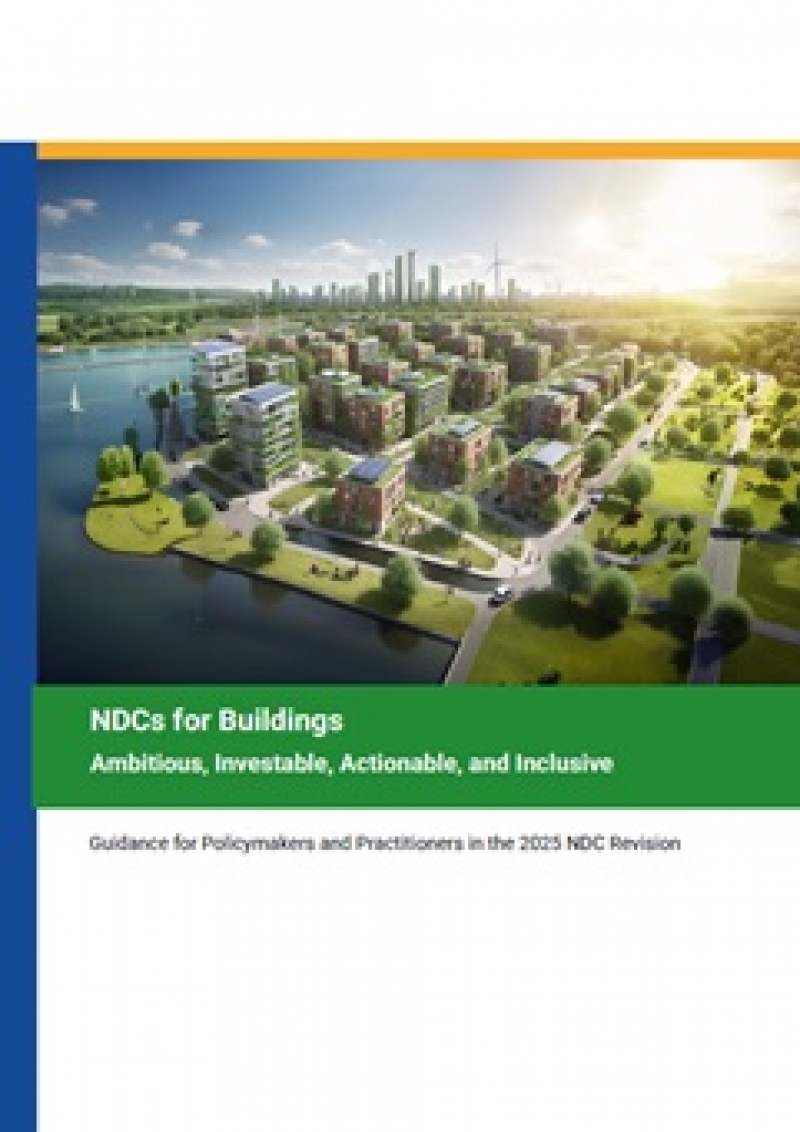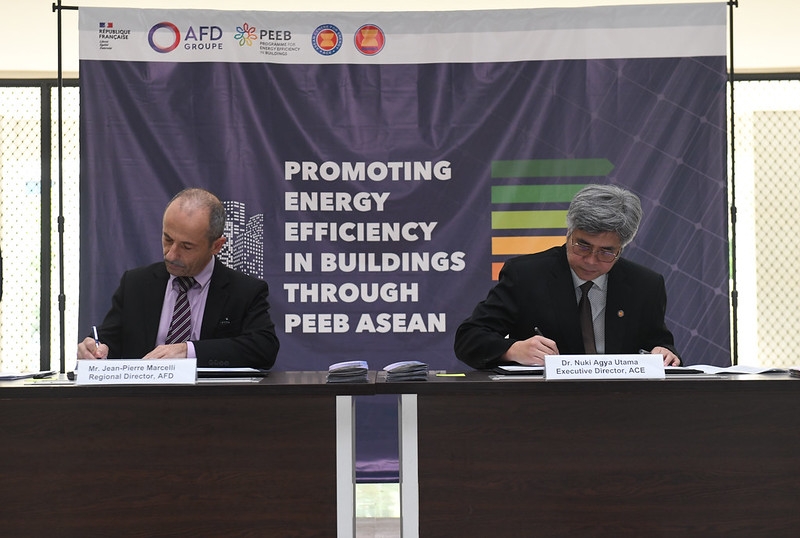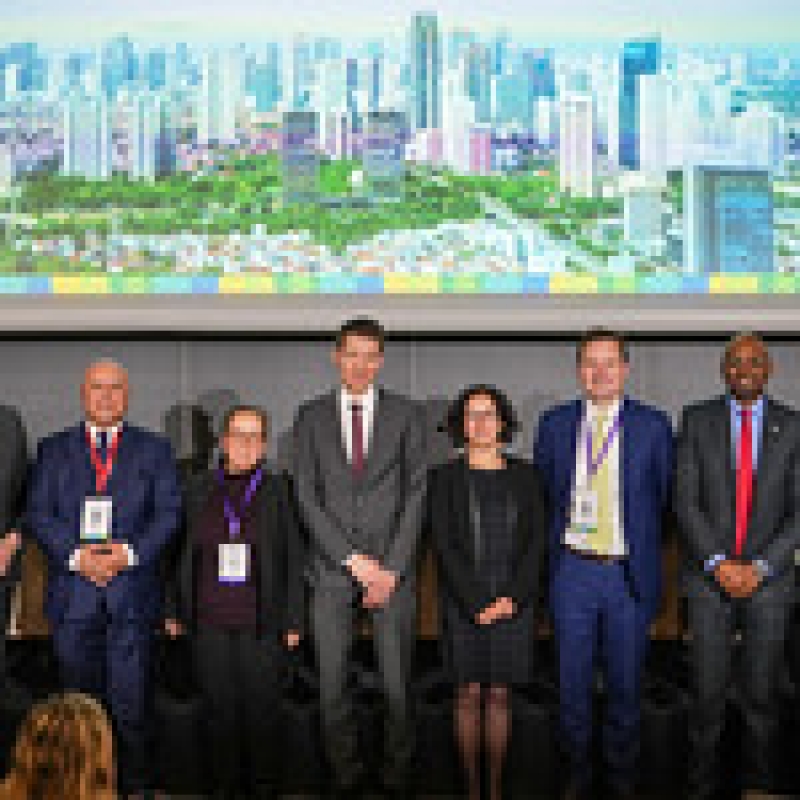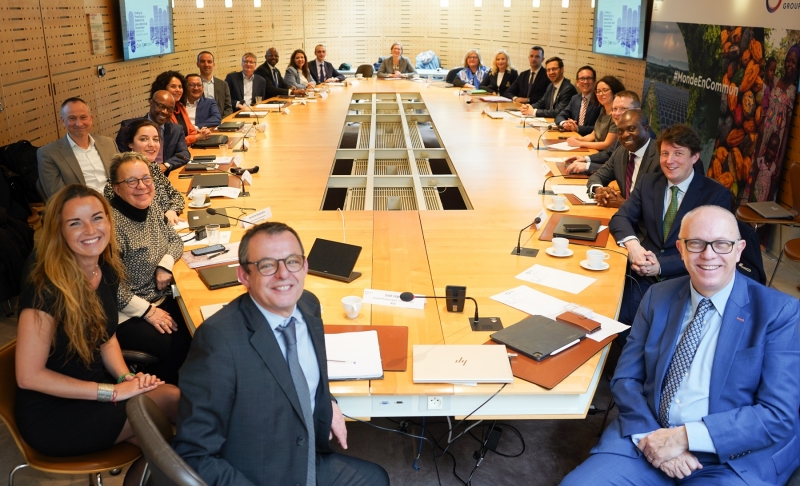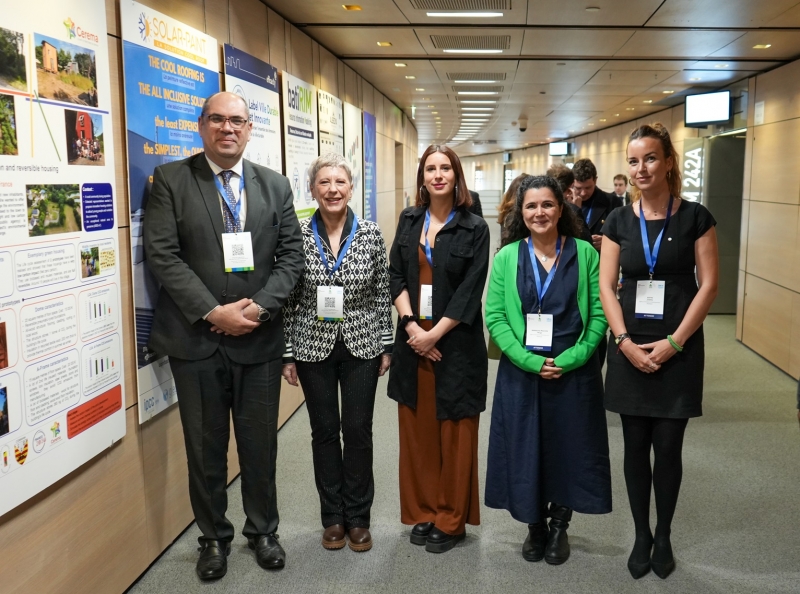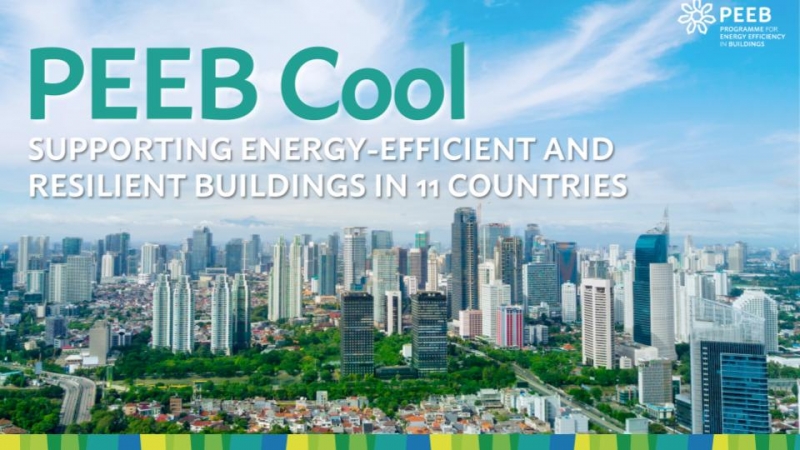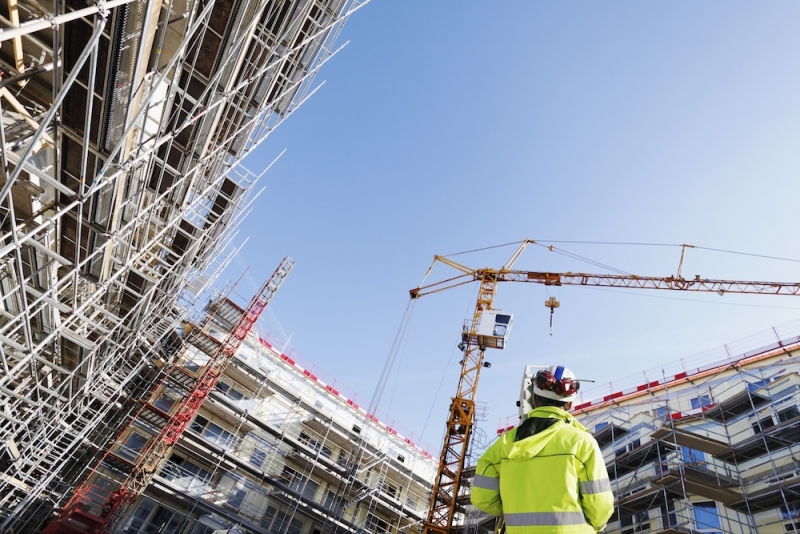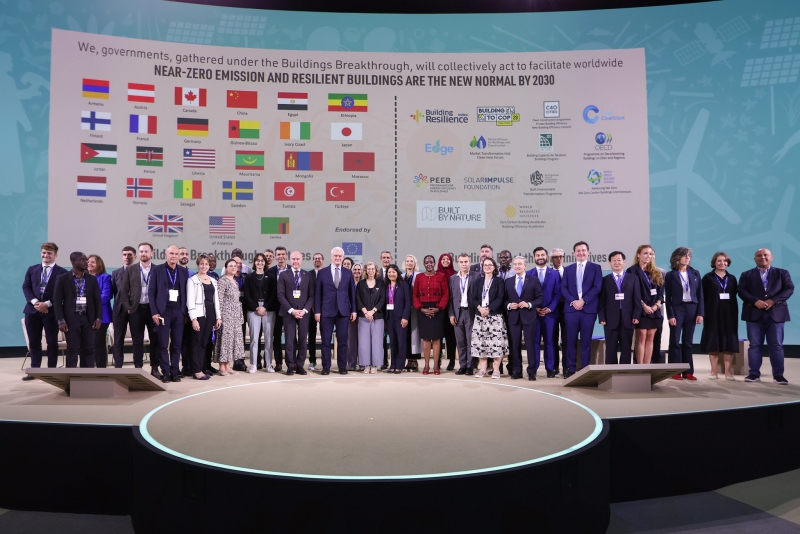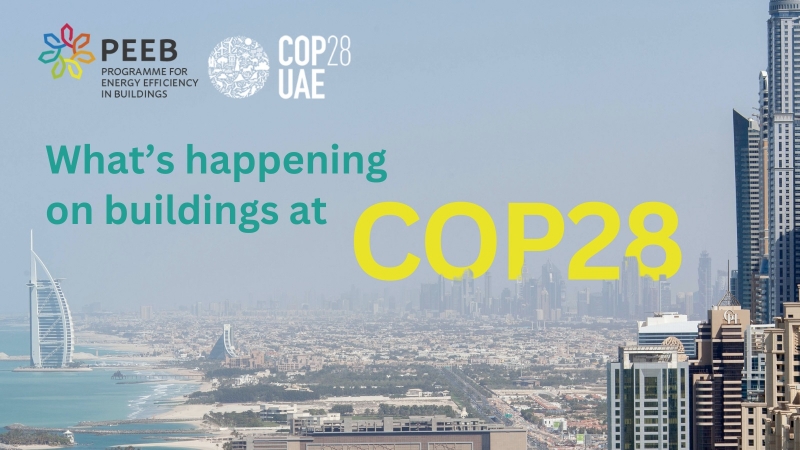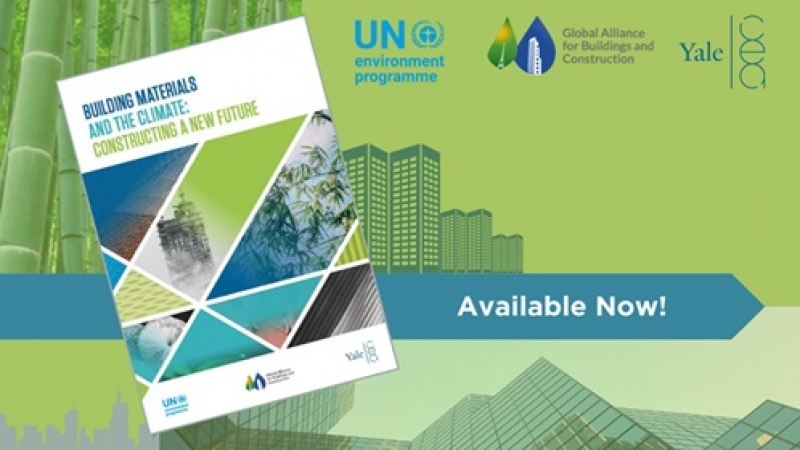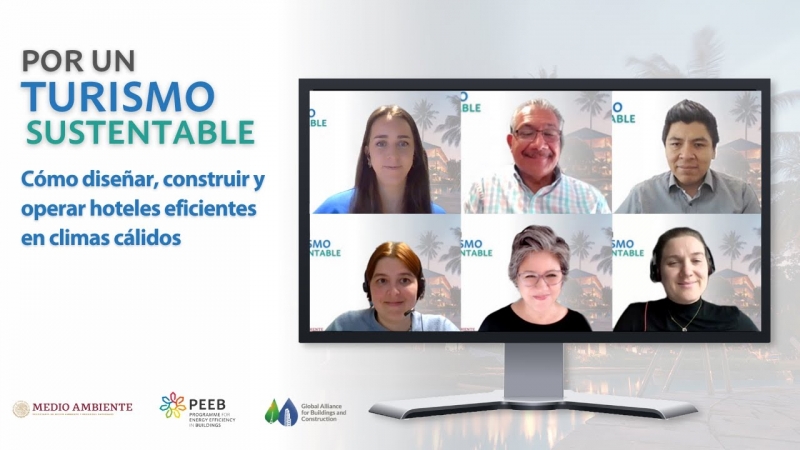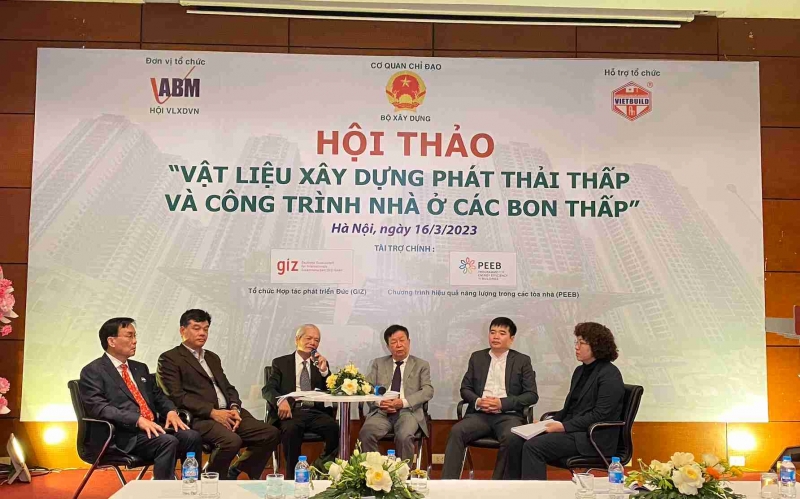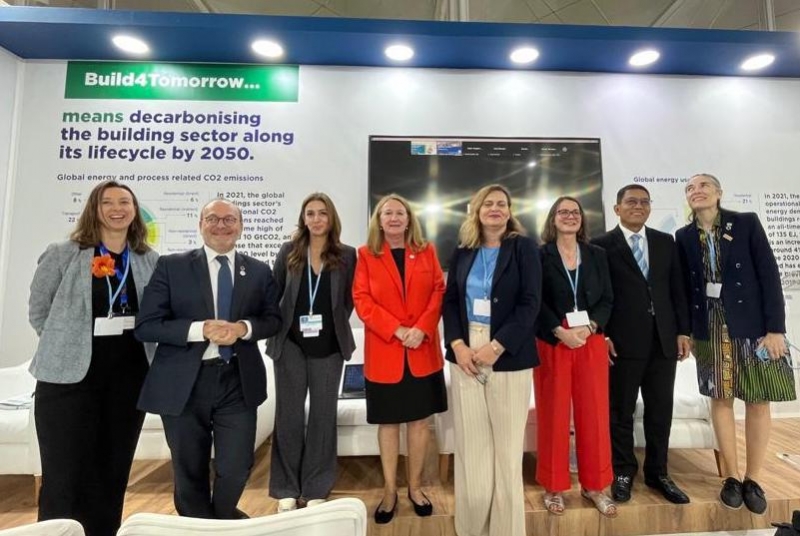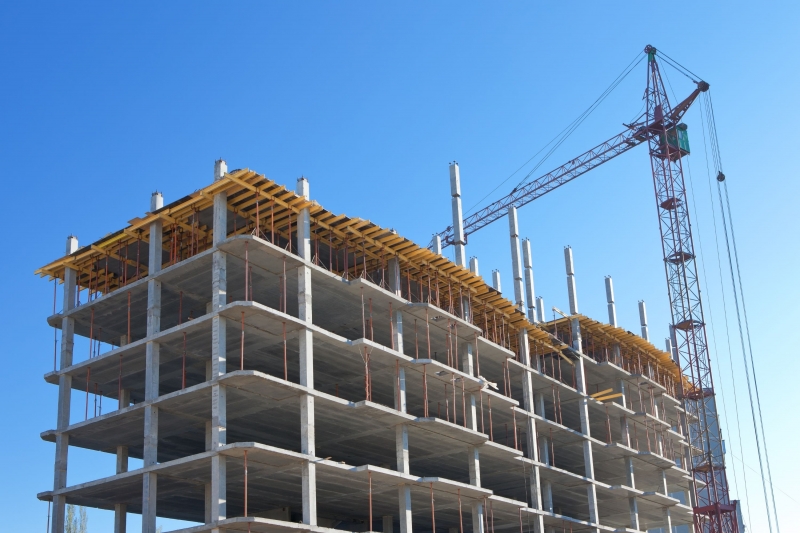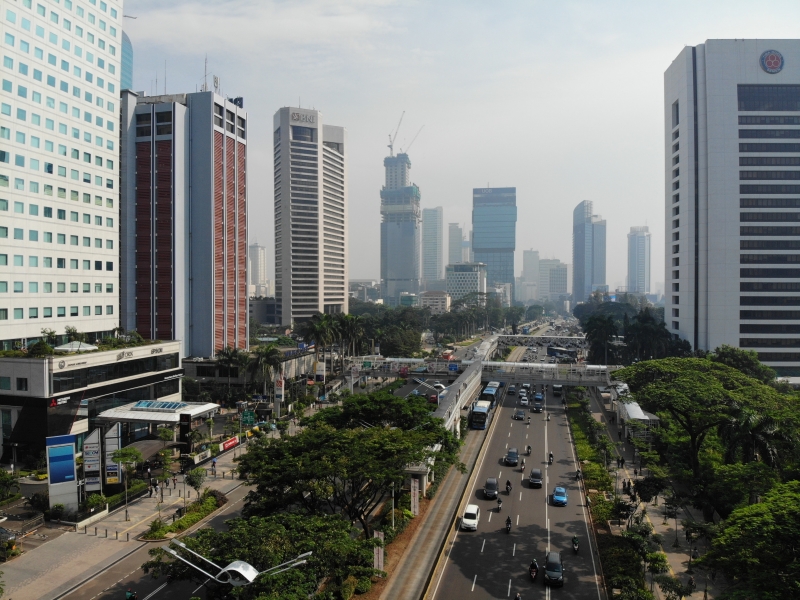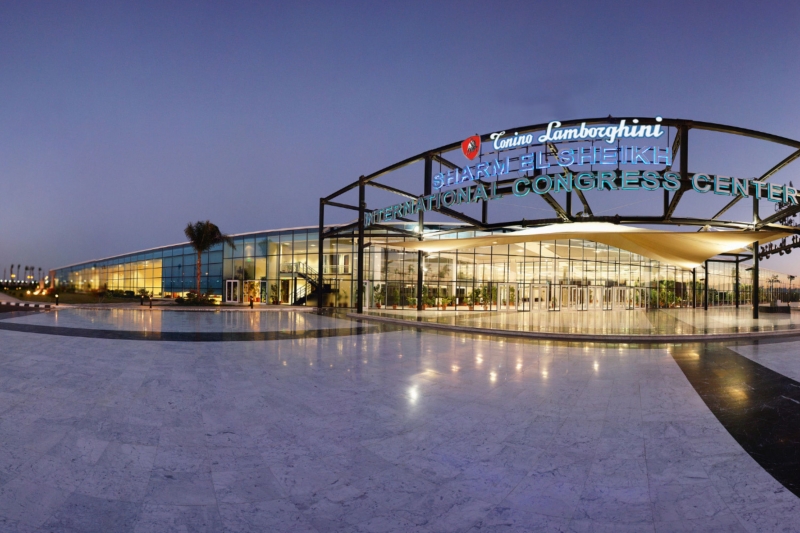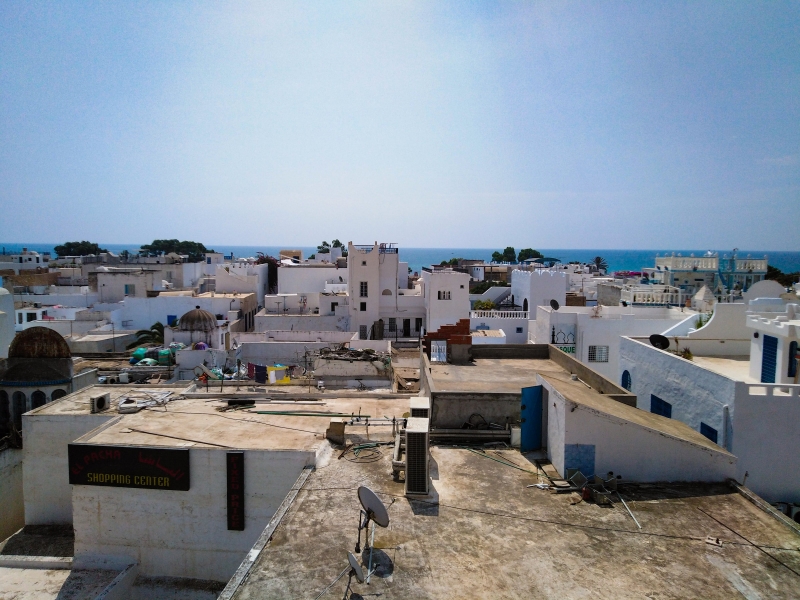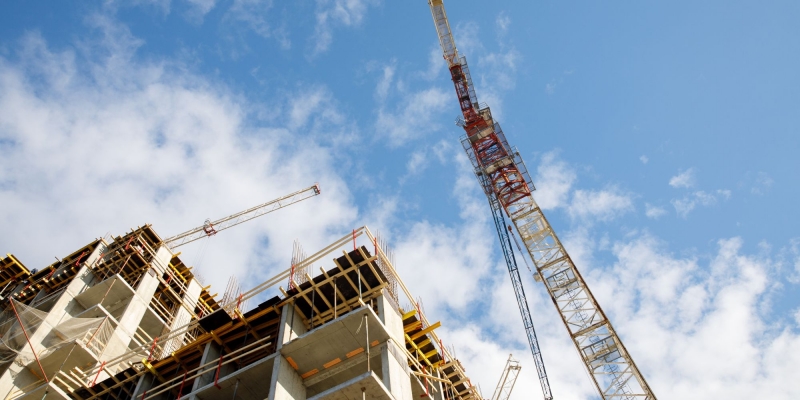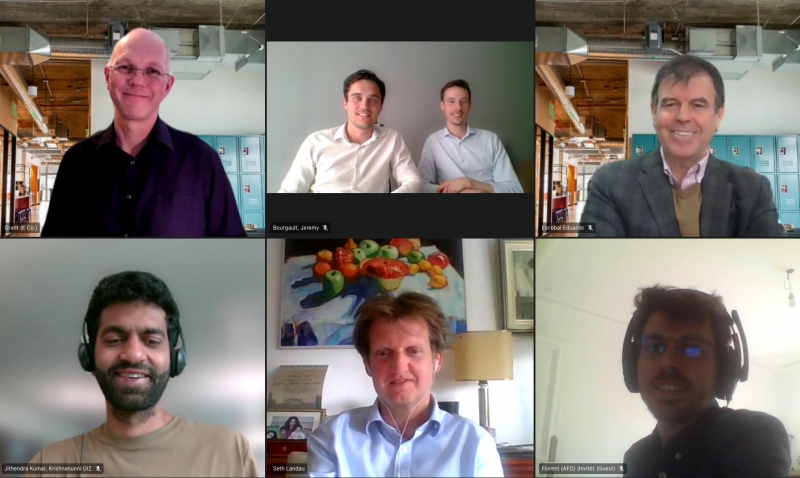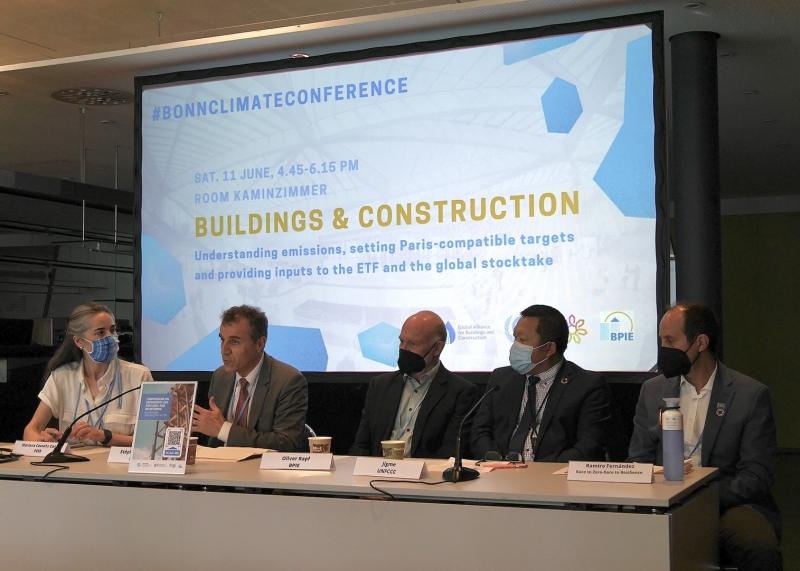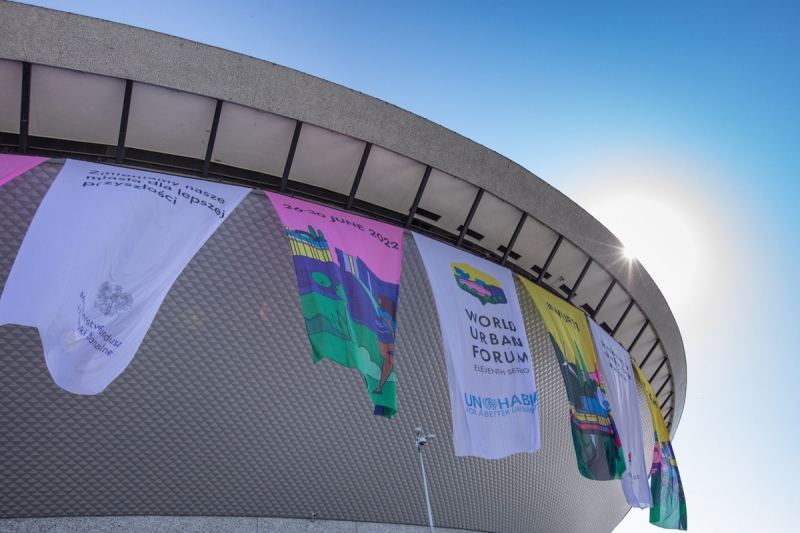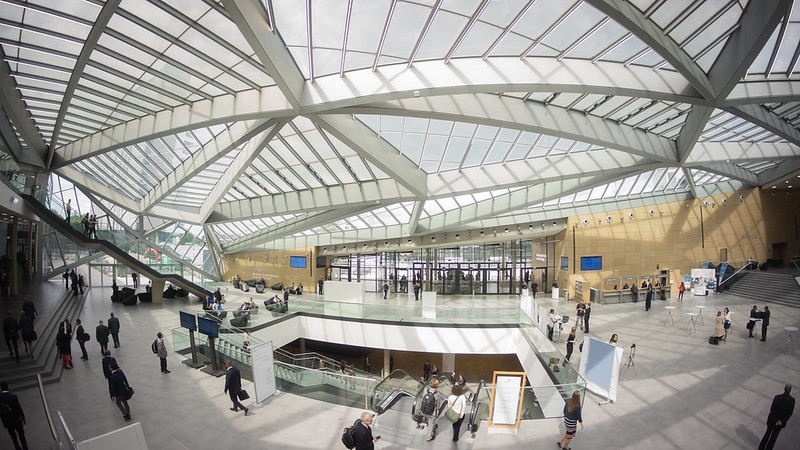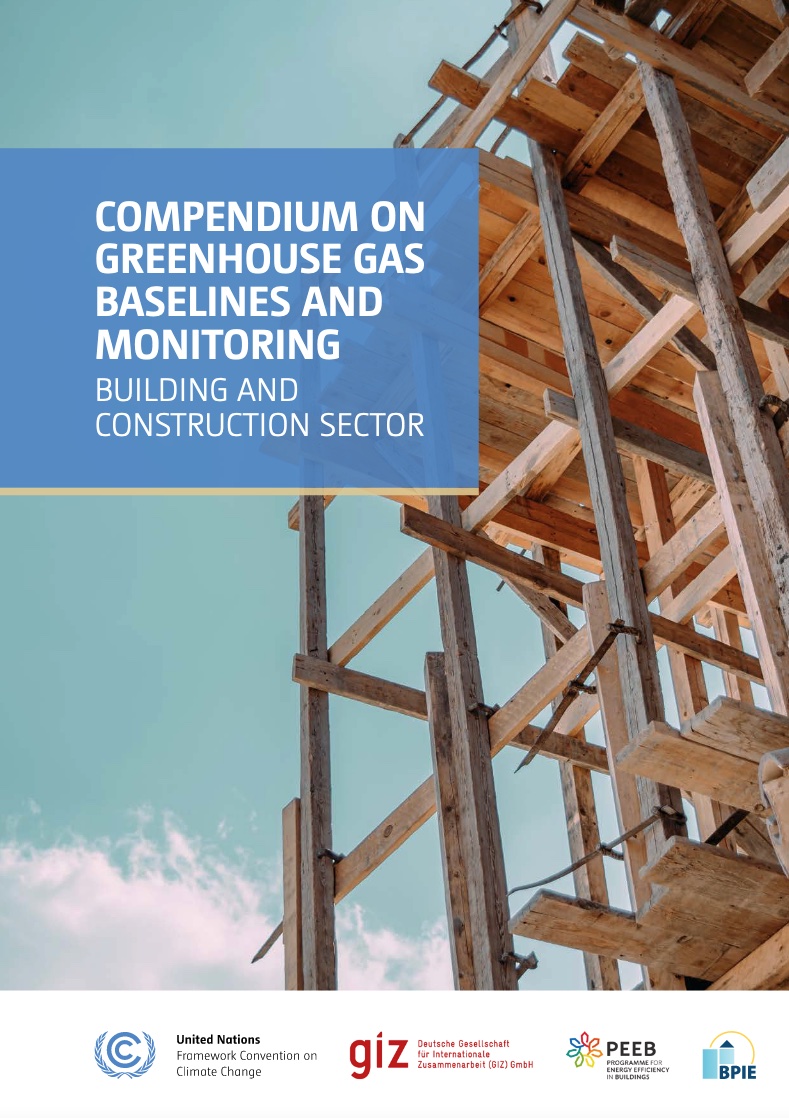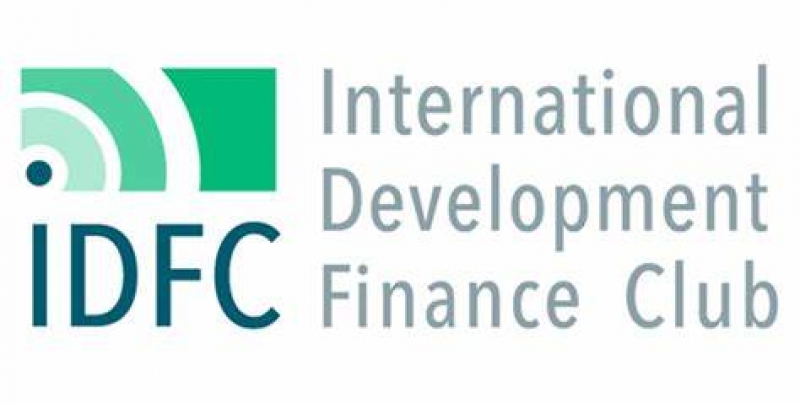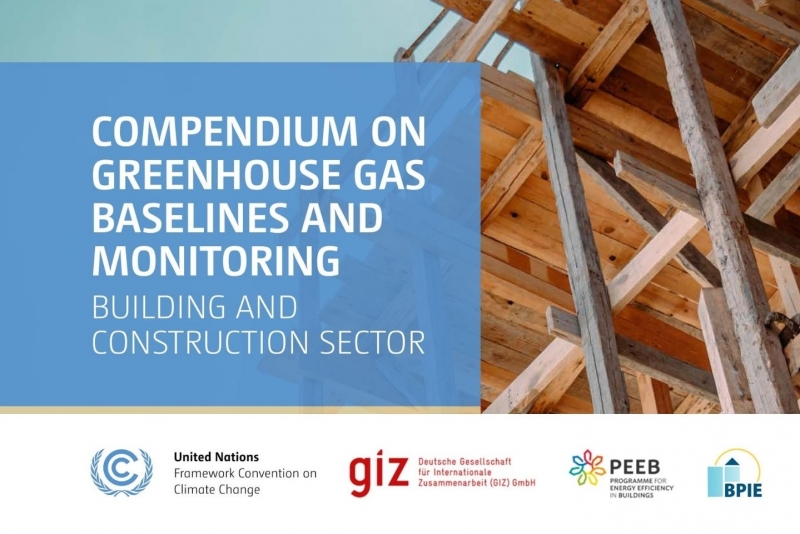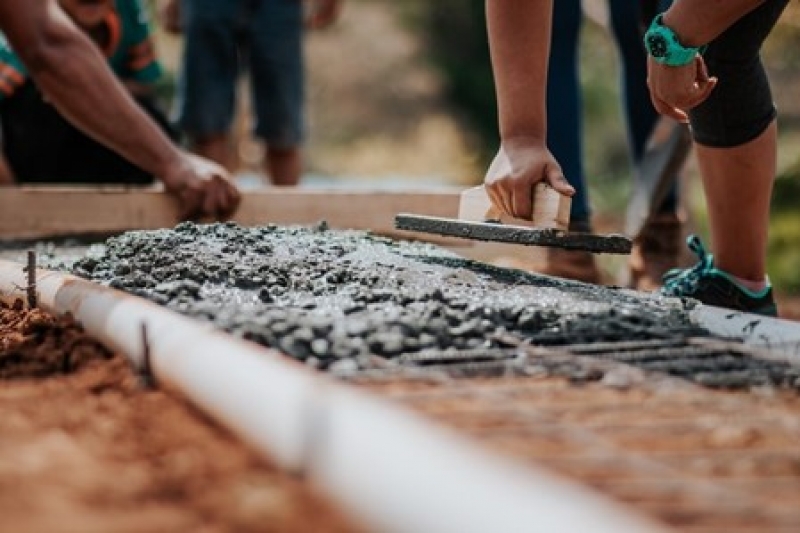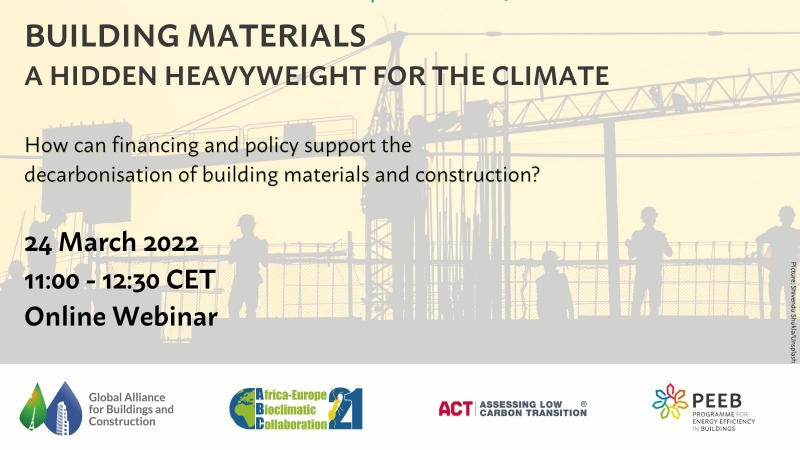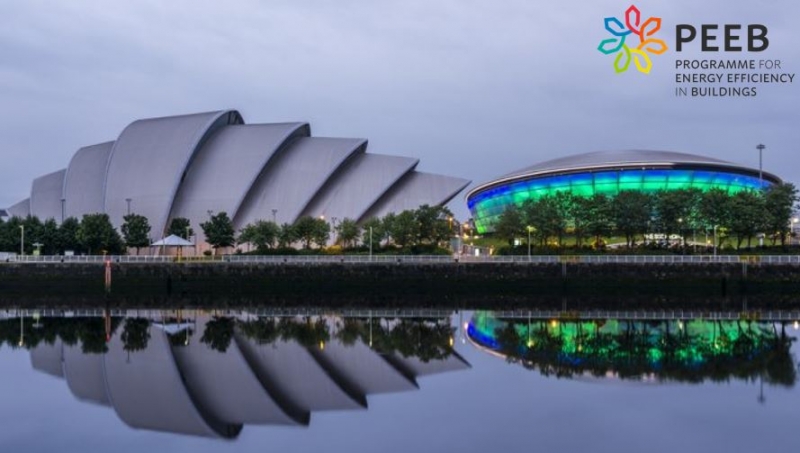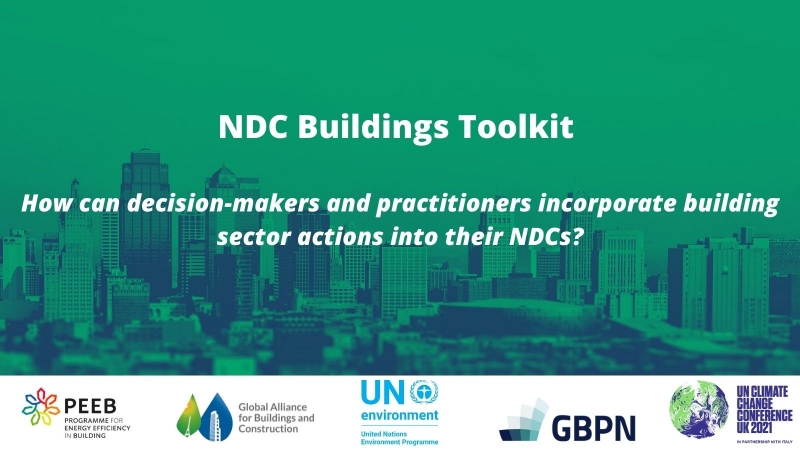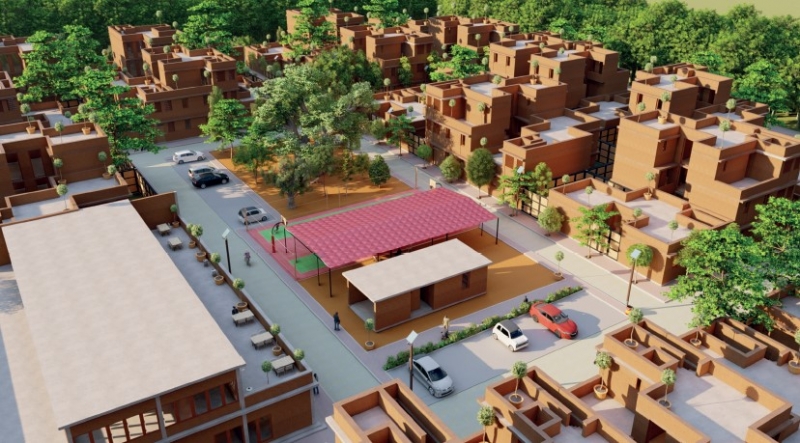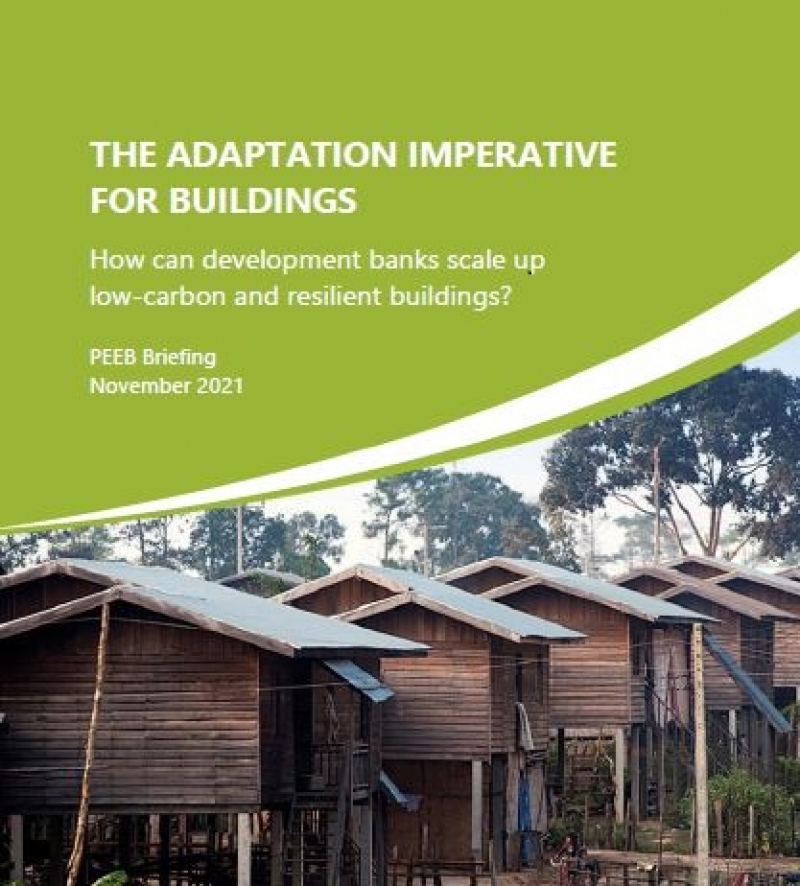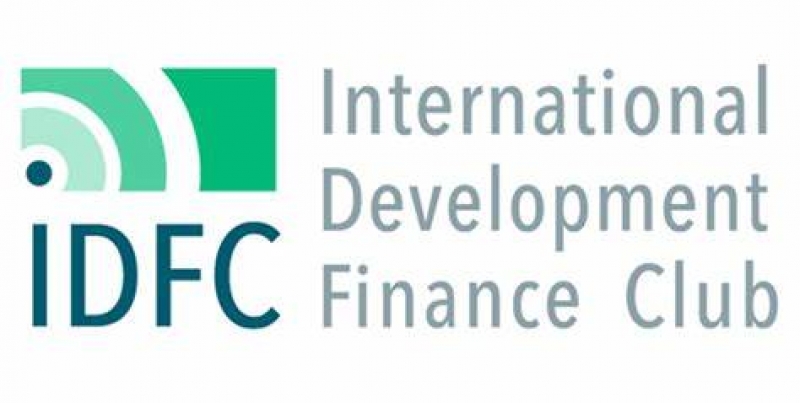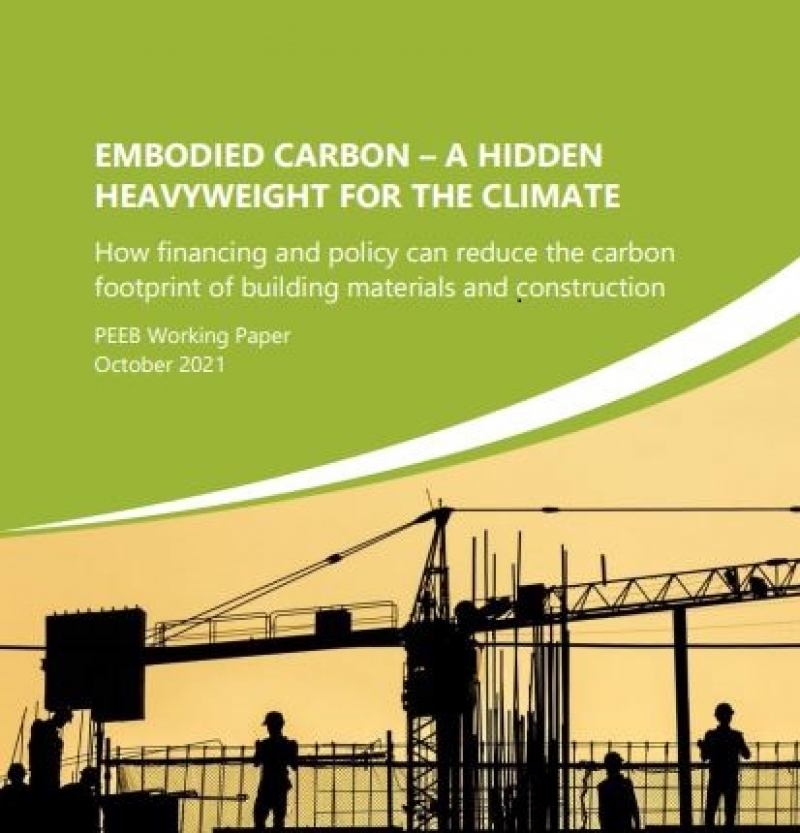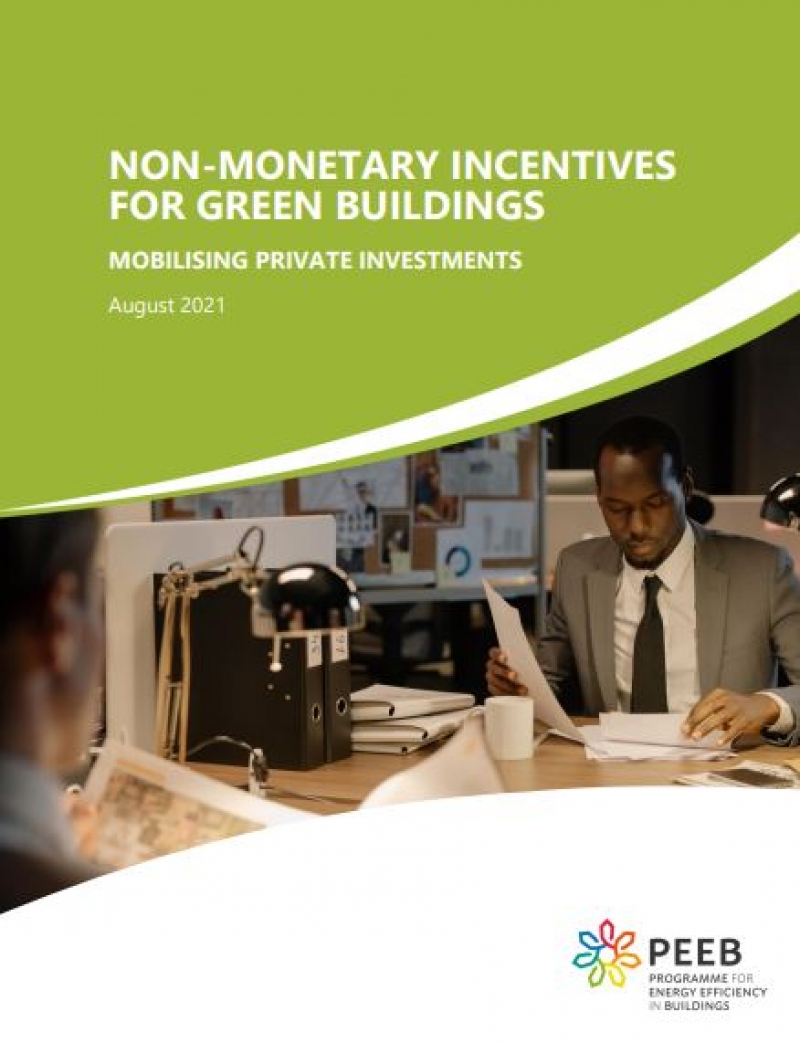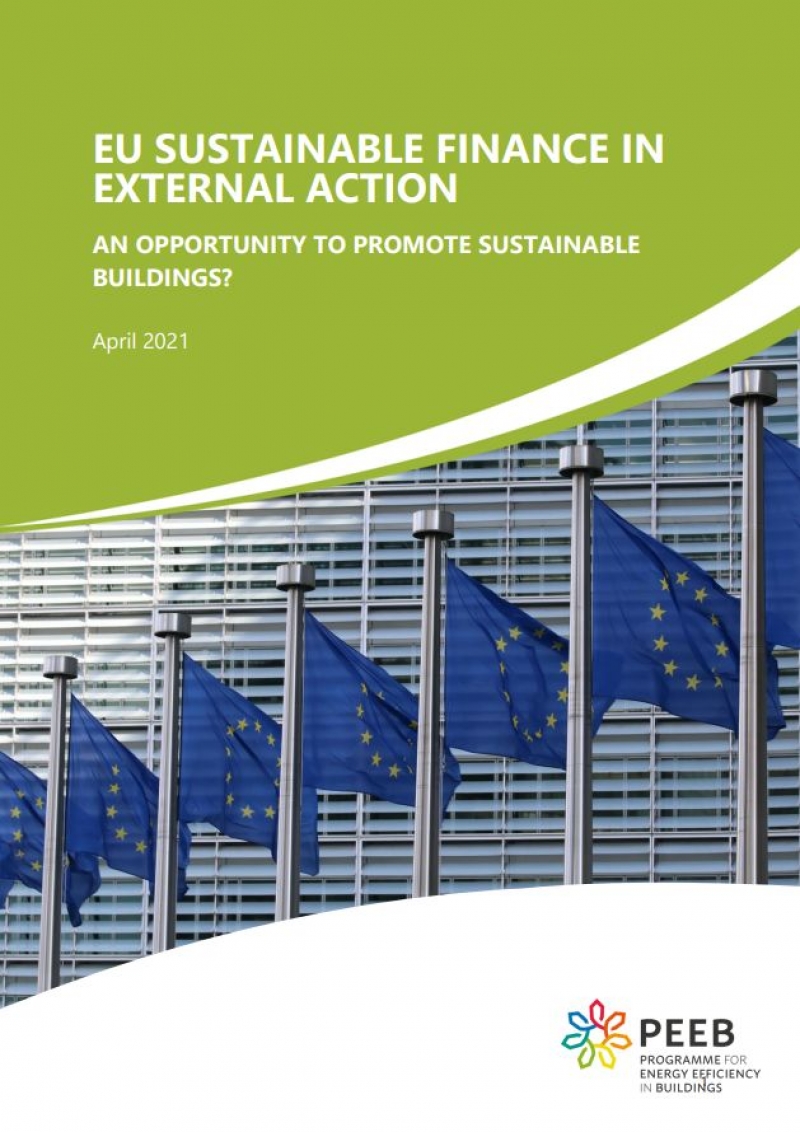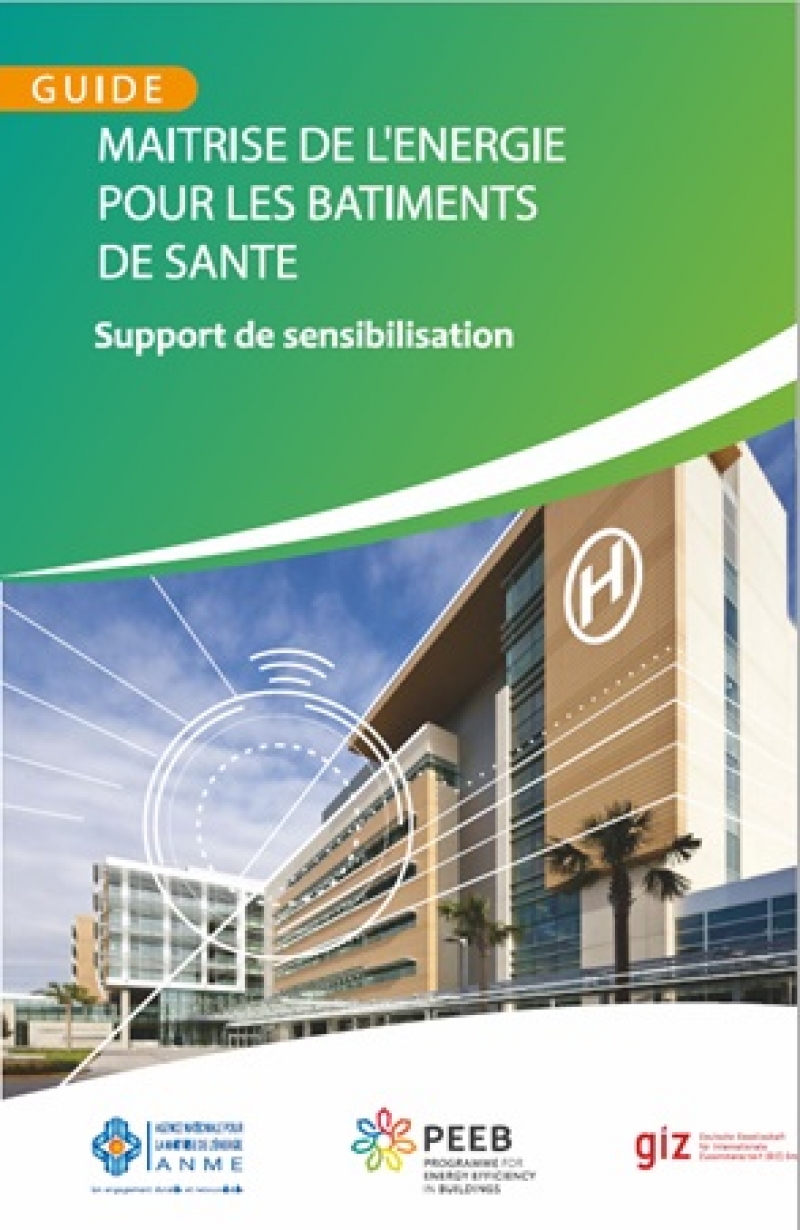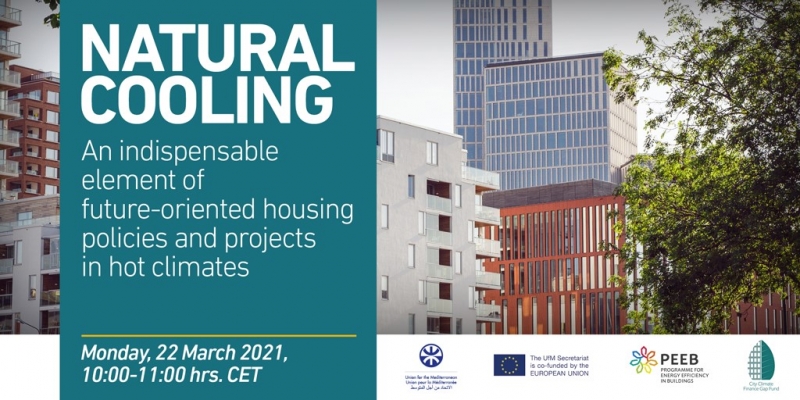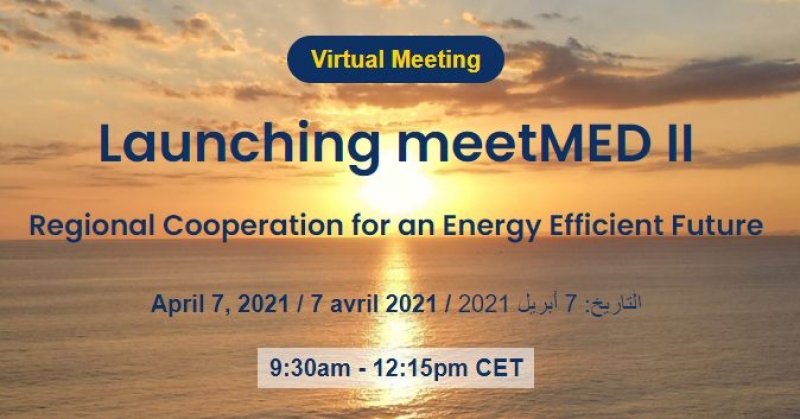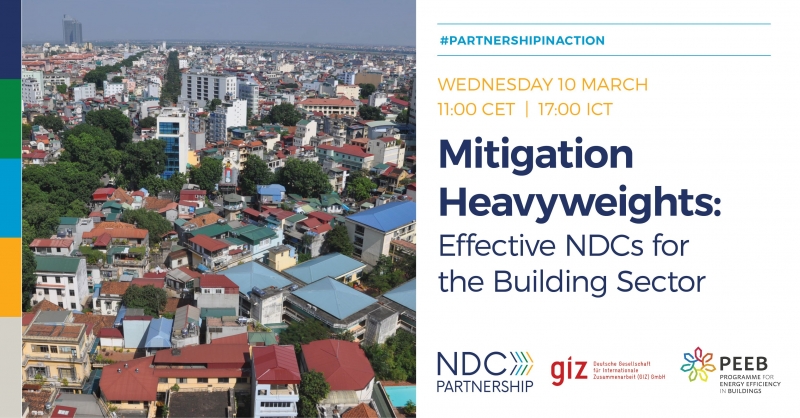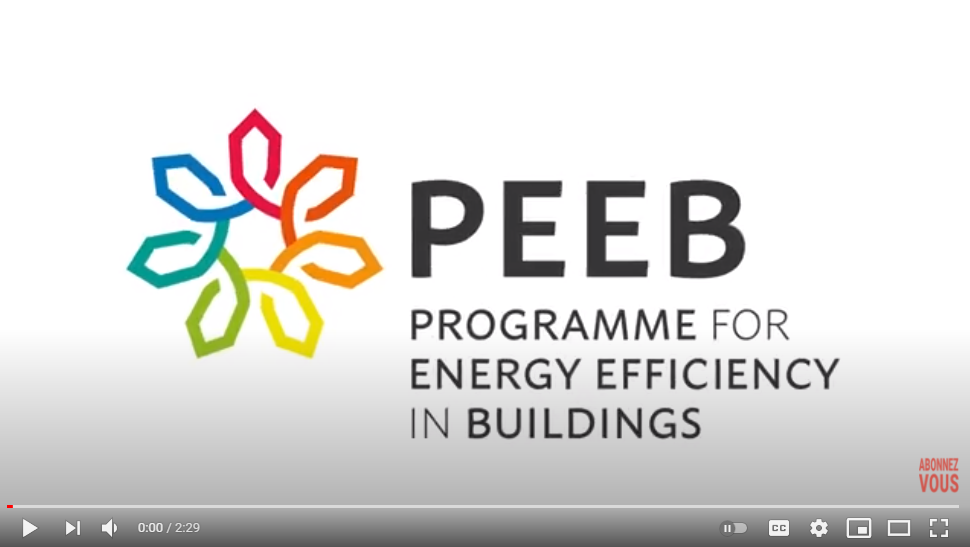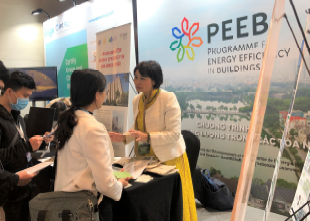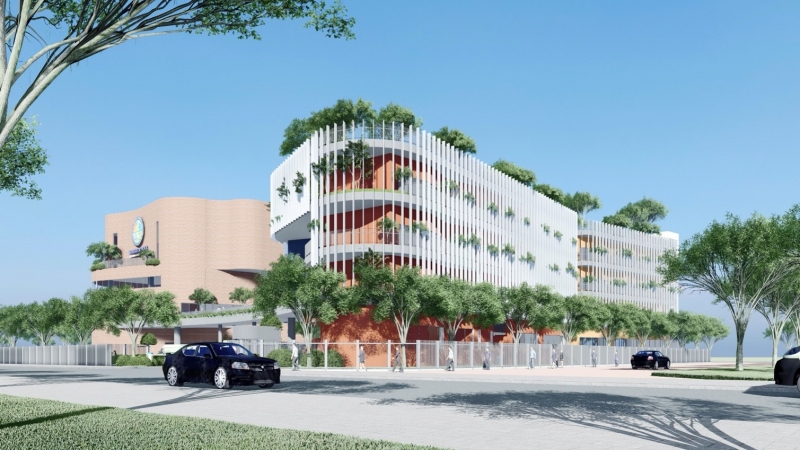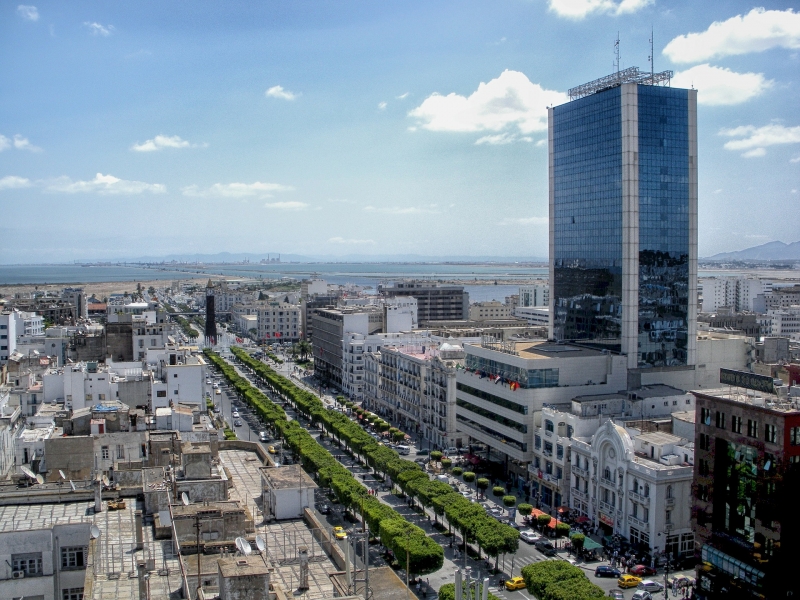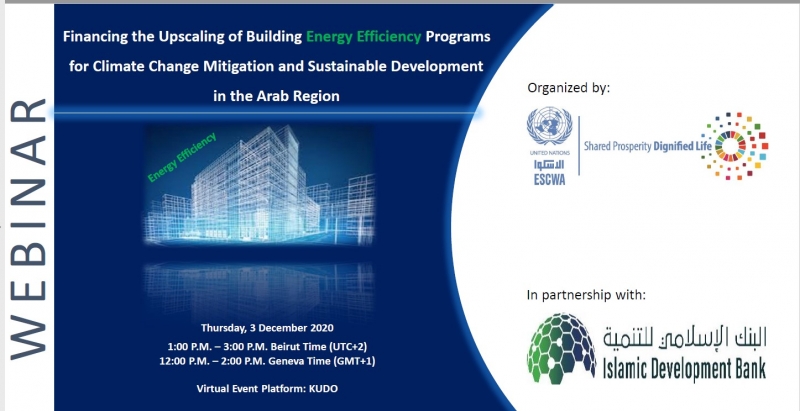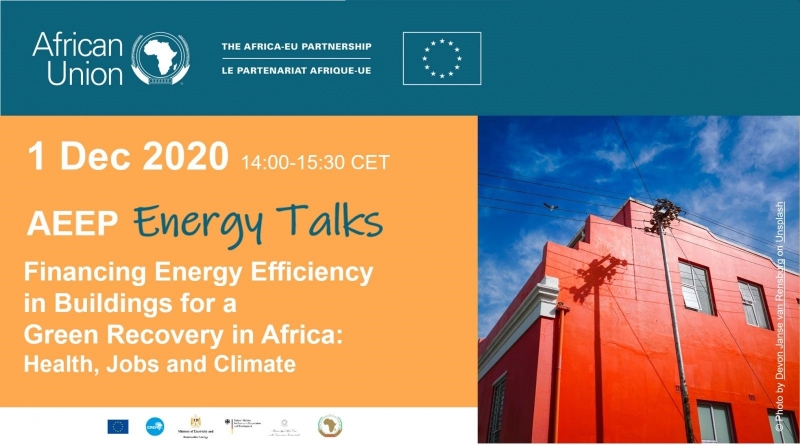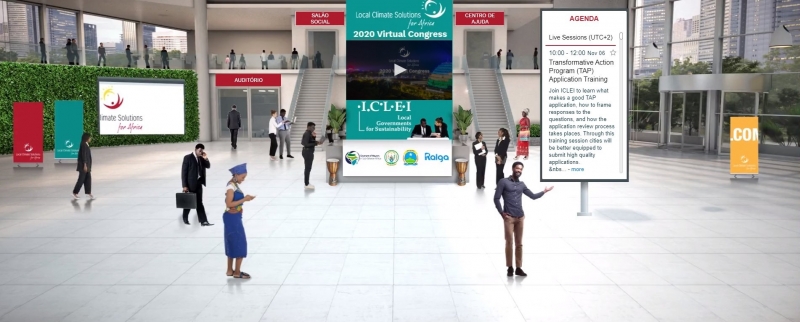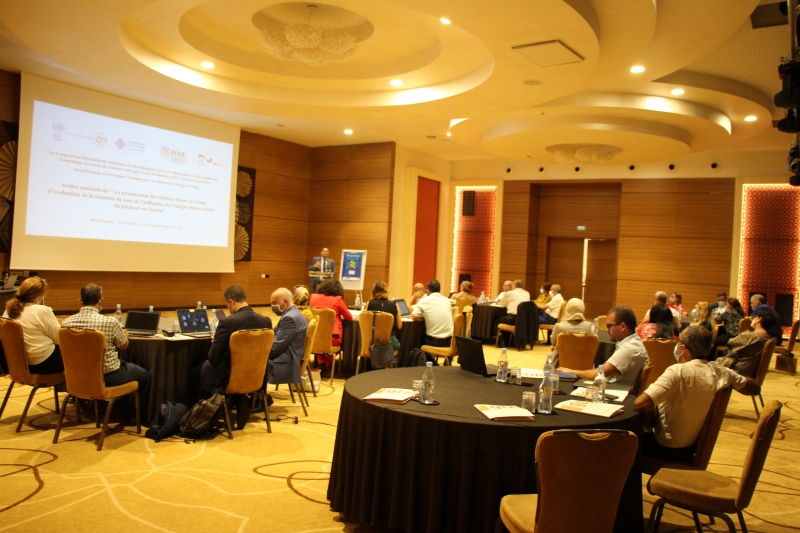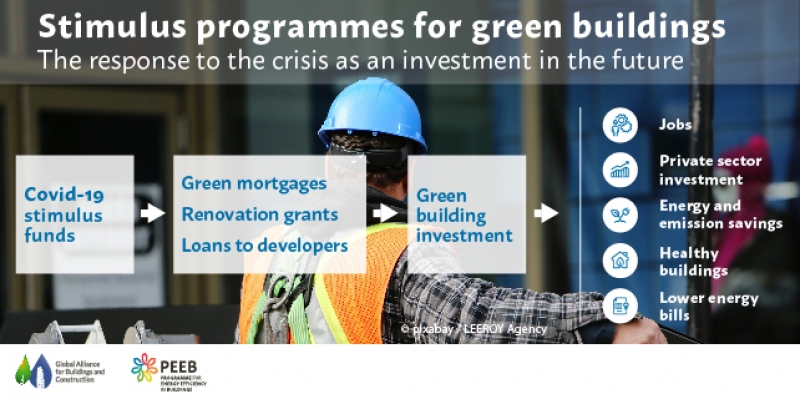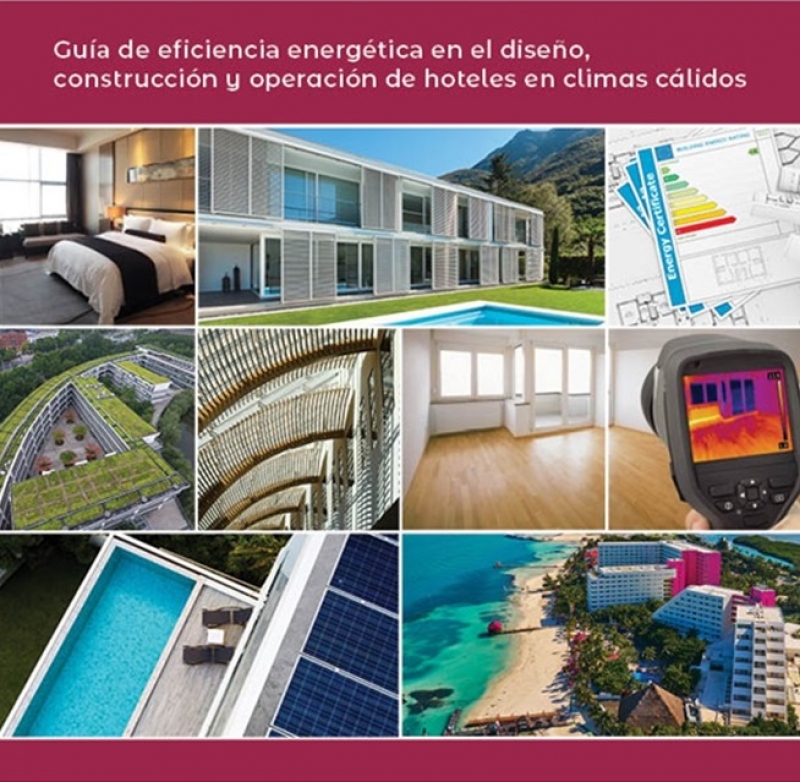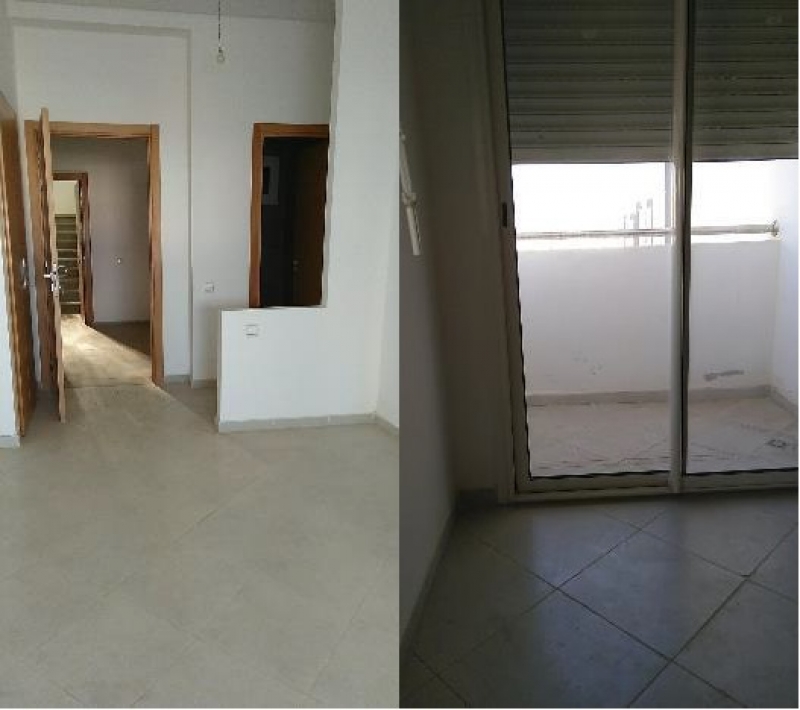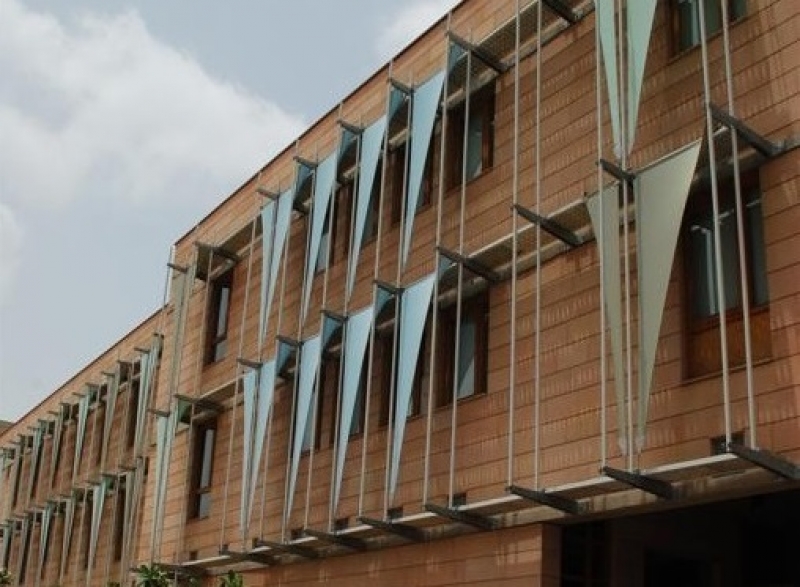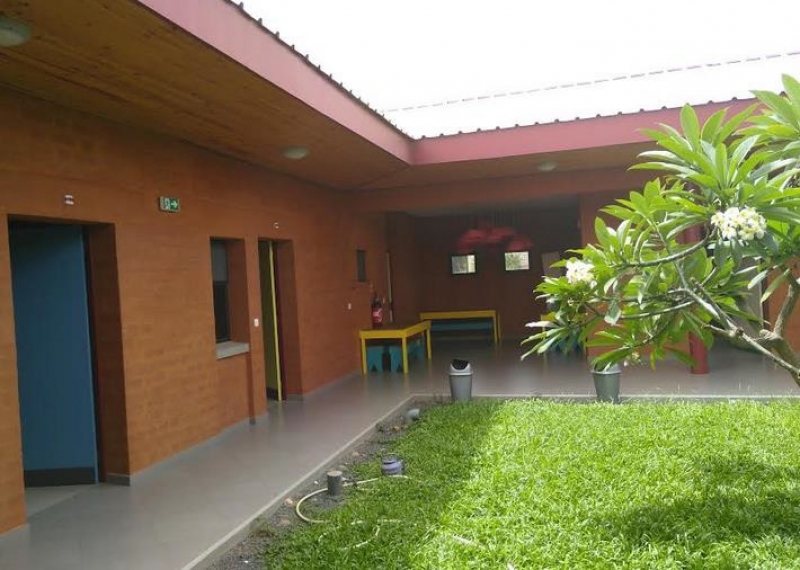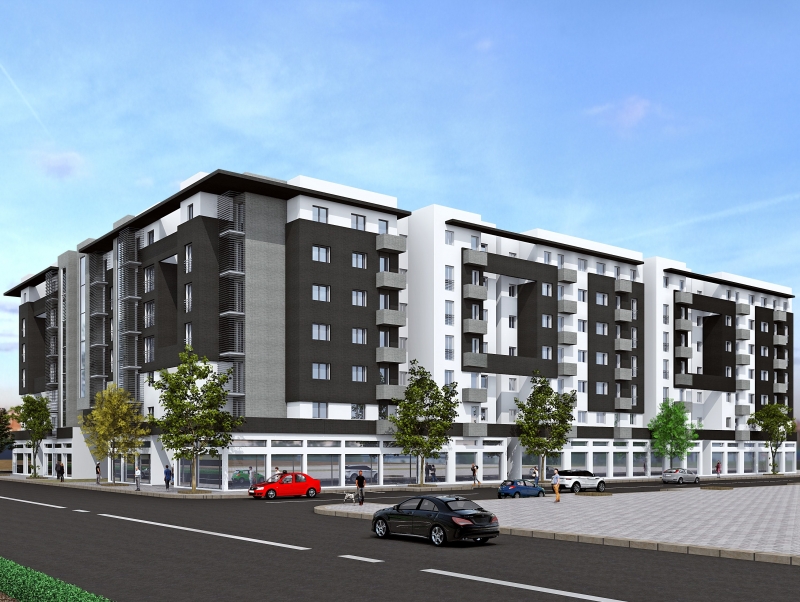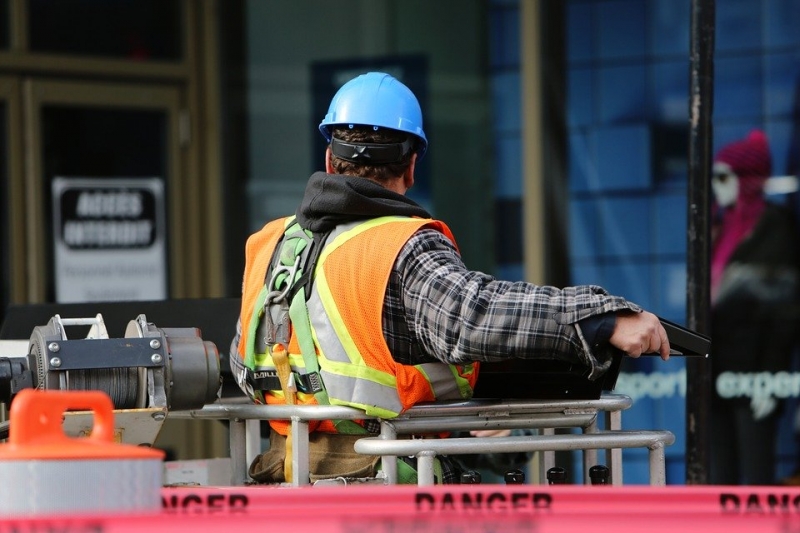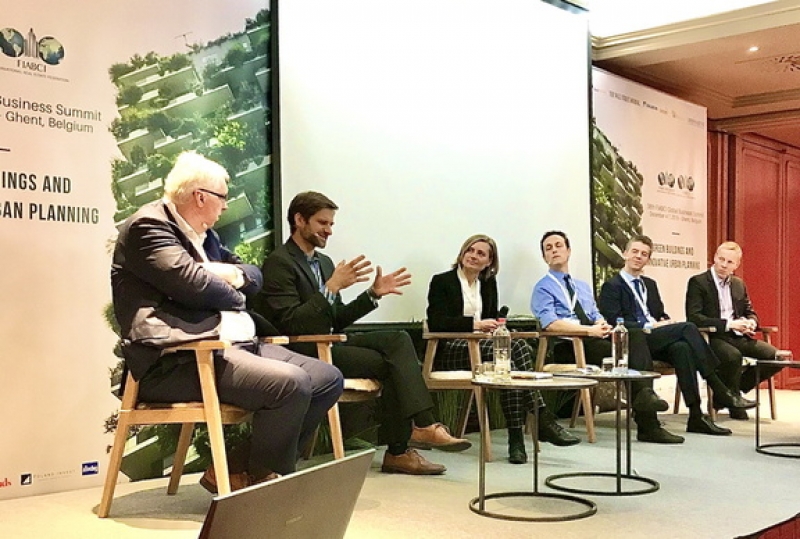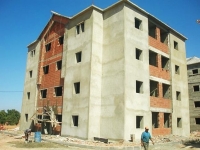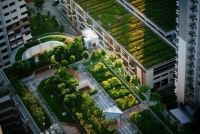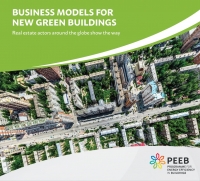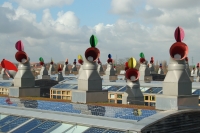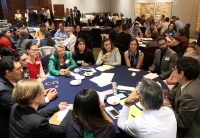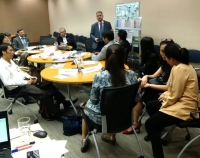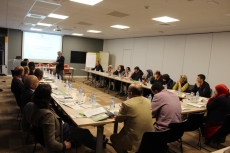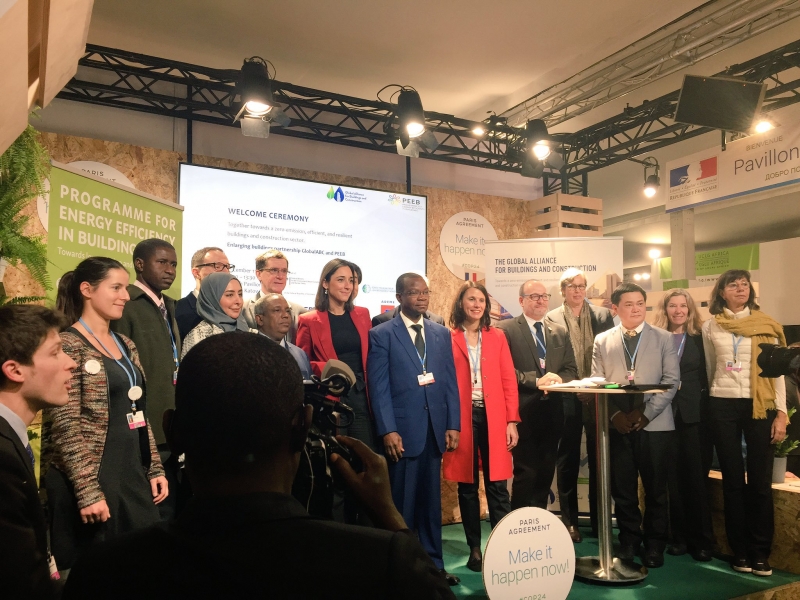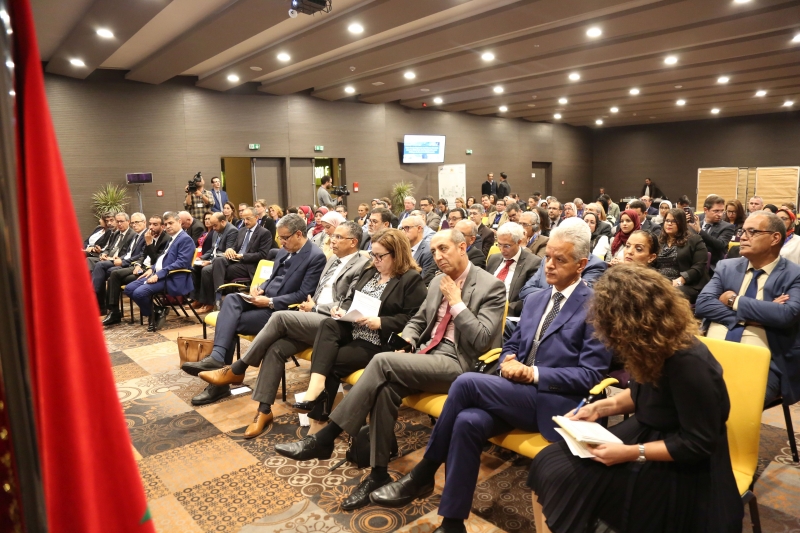Over 50 representatives from public development banks and the sustainable finance community gathered in Paris for a workshop to refine a new toolkit aimed at integrating energy efficiency into social infrastructure projects. This practical guide, set for release in February, builds on extensive collaboration through the Partnership for Energy Efficiency in Buildings (PEEB) and the Finance in Common Summit (FiCS) Coalition for Social Investment.
Energy efficiency in social infrastructure: why it matters
Social infrastructure—schools, hospitals, and public offices—is critical in ensuring essential services, especially during climate-induced disasters. These buildings account for up to 15% of urban energy use, with healthcare facilities consuming 2–3 times more energy per square meter than commercial spaces. However, many were built decades ago with inefficient systems, leading to high operational costs and energy wastage.
Urbanization is accelerating the demand for public infrastructure, amplifying energy challenges. Retrofitting these facilities can reduce energy use and costs significantly but often requires upfront investments and tailored financial products, which remain scarce.
Public Development Banks at the forefront
PDBs play a key role in addressing these challenges by leveraging blended finance approaches, mitigating risks for private investors, and catalyzing investments. Their focus on energy-efficient social infrastructure ensures that underserved communities benefit from cost savings, improved resilience, and enhanced comfort.
A practical toolkit for scaled action
The upcoming toolkit is a milestone in empowering PDBs to integrate energy efficiency and resilience into social infrastructure. It offers methodologies, tools, and case studies rooted in real-world experiences, helping development banks drive impactful change. By reducing energy costs and protecting users from heat stress and disasters, the toolkit aligns with the Buildings Breakthrough agenda and global climate goals.
This Paris workshop marks a critical step in finalizing the toolkit, underscoring the importance of collaboration in scaling solutions for a more sustainable future.
This toolkit is a key contribution to the agenda of the Buildings Breakthrough, an international initiative to accelerate climate action on buildings. This has been developed in close cooperation with the Global Alliance for Buildings and Construction, GlobalABC. This strategic partnership has played a strong role in the development of this toolkit.
http://www.peeb.build/news-events/Workshop-Paris-paves-way-energy-efficient-social-infrastructure
In 2025, countries submit their new Nationally Determined Contributions (NDCs) to the UN. Policymakers face a crucial moment to shape effective and ambitious targets for climate action on buildings in the years ahead up to 2035. How we address the built environment in those NDCs will determine if our buildings are to become an obstacle or an ally to climate action.
To support countries to rise to this challenge and opportunity, the Partnership for Energy Efficiency in Buildings (PEEB) and the Global Alliance for Buildings and Construction (GlobalABC) have released a practical guide. The guide supports the development of bold NDCs by equipping policymakers, planners, and practitioners with a comprehensive framework to integrate ambitious climate actions within the buildings and construction sectors of their NDCs.
“NDCs for Buildings: Ambitious, Investable, Actionable, and Inclusive” introduces a structured, five-step approach that enables countries to tailor their NDCs based on national circumstances and market maturity. With options to address key areas such as building energy codes, renewable energy, retrofitting, and urban resilience, the guide helps decision-makers develop robust and practical climate commitments. The guide includes 27 enabling measures in finance, governance, capacity-building, equity, and digitalization, ensuring that these climate actions are supported by the resources and collaboration they require.
The guide was released on November 18 at COP29, and presented in two events:
Nationally Determined Contributions for Sustainable, Inclusive Buildings and Cooling: Time for Bold Action
High Level Roundtable: Green Construction and Energy Efficiency in Buildings and Climate Resilience
“NDCs need to be ambitious, but ambition looks different in each country”
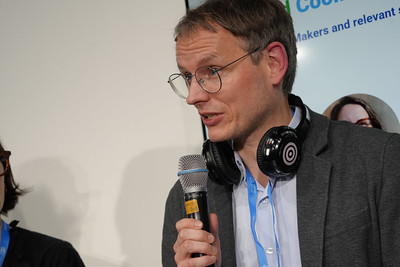
Gregor Sahler (GIZ) highlighted that NDCs must set ambitious targets, and plan for the entire building lifecycle and integrate tools and means for their implementation. He presented the guide on behalf of GlobalABC and PEEB in the event “Nationally Determined Contributions for Sustainable, Inclusive Buildings and Cooling: Time for Bold Action”.
Country representatives welcome guide’s hands-on approach
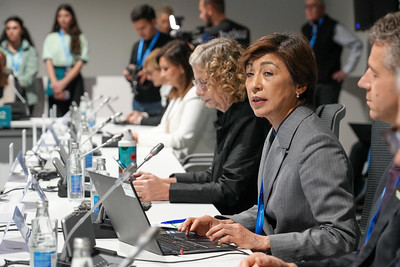
Gulnara Roll, head of the cities unit at the United Nations Environment Programme, presented the guide at the High Level Roundtable on Green Construction and Energy Efficiency in Buildings and Climate Resilience. The guide’s concrete and detailed approach was welcomed by country representatives. Covering eight policy types and 42 specific measures, the guide encourages countries to customize their NDCs with strategies suited to their unique stage—whether building foundational policies, expanding existing frameworks, or achieving net-zero and high-resilience goals.
Download the guide here.
http://www.peeb.build/news-events/NDC-guide-buildings-launch-COP29
Jakarta, 10 June 2024 – The signature of a grant agreement between the ASEAN Centre for Energy (ACE) and the Agence Française de Développement (AFD) marked the launch of PEEB ASEAN, a regional initiative of the Partnership for Energy Efficiency in Buildings. The event took place on 10 June 2024 at ASEAN Headquarters in Jakarta, Indonesia witnessed by H.E. Dato’ Astanah Abdul Aziz, Deputy Secretary-General (DSG) of ASEAN for Political-Security Community and H.E. Fabien Penone, Ambassador of France to Indonesia, Timor-Leste and ASEAN. The signature marks a significant partnership between ACE and AFD, as well as an important commitment from implementers to sustainable development and climate action within the ASEAN region. It also represents a significant step towards PEEB’s mission of fostering a sustainable transformation in buildings.
PEEB ASEAN will apply its strategic approach to support the transition of the buildings sector in the region. Combining project finance and policy advice, it will target energy and environmental performance, resilience to the effects of climate change, enhanced energy efficiency, and reduced energy consumption in the building sector, in line with AFD’s energy transition strategy. The initiative is expected to contribute both to ASEAN’s energy efficiency goal of a 32% reduction in energy intensity by 2025, and to global climate goals, making the region an active promoter of a more sustainable energy future.
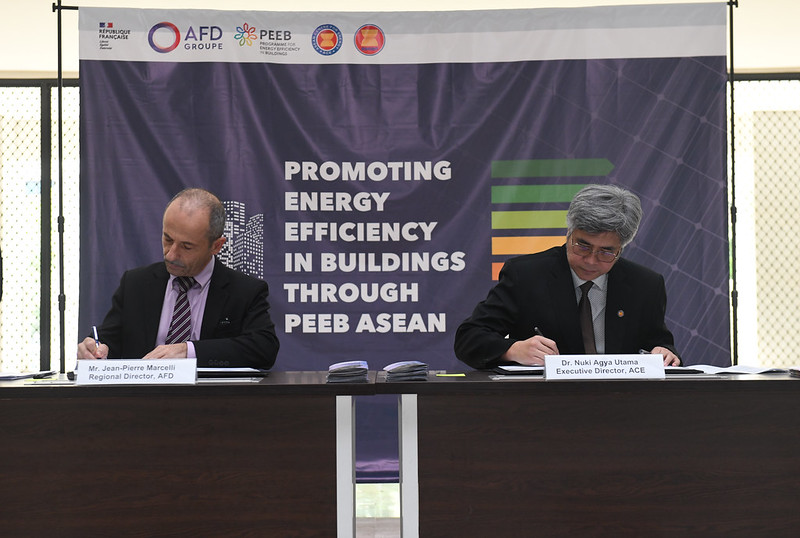 From left to right: Jean-Pierre Marcelli, Southeast Asia Regional Director of Agence Française de Développement (AFD) and Dr. Nuki Agya Utama, Executive Director of ASEAN Centre for Energy. Credit: ASEAN Secretariat
From left to right: Jean-Pierre Marcelli, Southeast Asia Regional Director of Agence Française de Développement (AFD) and Dr. Nuki Agya Utama, Executive Director of ASEAN Centre for Energy. Credit: ASEAN Secretariat
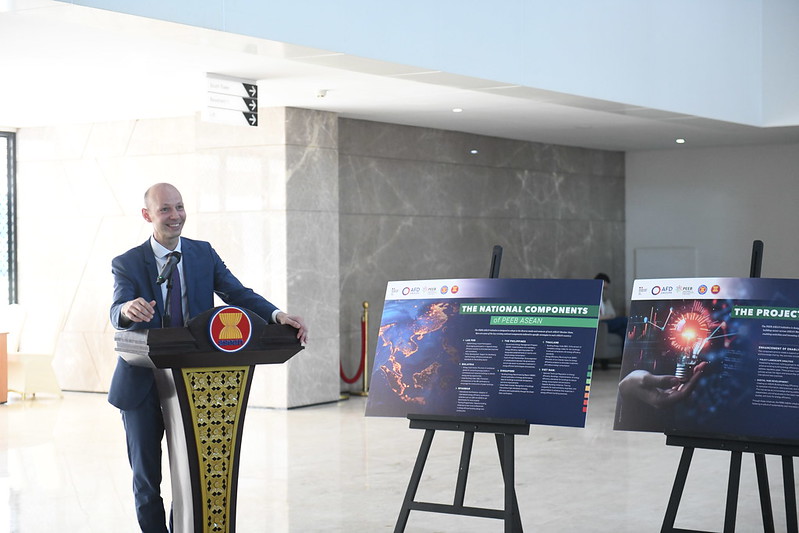 Thomas Melonio, Chief Economist and Executive Director of Agence Française de Développement (AFD). Credit: ASEAN Secretariat
Thomas Melonio, Chief Economist and Executive Director of Agence Française de Développement (AFD). Credit: ASEAN Secretariat
H.E. Fabien Penone, Ambassador of France to ASEAN, welcomed the signing of the grant agreement, underlining that “the launch of the PEEB ASEAN Initiative constitutes a major step in the implementation of the ASEAN-France Development partnership. It is a testimony of the fruitful and mutually beneficial cooperation between France and ASEAN, which are strongly committed to advancing a sustainable development agenda in line with the Paris Agreement while promoting inclusive growth and prosperity”.
Dr. Nuki Agya Utama, Executive Director of ASEAN Centre for Energy, expressed his enthusiasm about the partnership, stating, "We are immensely grateful for the support from AFD. This grant is not just a fund; it is a catalyst that will enable us to advance the promotion of high energy and environmental performance standards in the building sector by strengthening national and regional frameworks and policies through capacity building of ASEAN Member States and stakeholders. This includes support for the financing of energy-efficient building projects in ASEAN Member States. Through PEEB ASEAN, we aim to set a benchmark for energy efficiency that could serve as an aspirational model for similar initiatives globally."
Jean-Pierre Marcelli, Southeast Asia Regional Director of Agence Française de Développement (AFD), also highlighted the initiative's importance: "Investing in building energy efficiency in ASEAN is not only an environmental necessity but also an economic opportunity. By reducing energy consumption and CO2 emissions, we are laying the foundation for sustainable and resilient growth in the region. PEEB ASEAN exemplifies our commitment to supporting ASEAN countries in their transition to greener and more energy-efficient building practices."
Anna Zinecker, Acting Head of PEEB Secretariat, “With today’s signature, we are excited to advance our mission of promoting sustainable building practices in the rapidly growing ASEAN region. Decarbonizing the building sector and enhancing resilience to climate impacts are crucial as urbanization accelerates and climate challenges intensify. PEEB's successful combination of project finance and policy support will help partner countries to scale up and speed the transformation of the buildings sector. This initiative is a key step in PEEB and ASEAN's commitment not only to the ASEAN energy and energy efficiency goals, but also to global climate targets. Besides reducing emissions, improving energy efficiency and building will also enhance the quality of life and living conditions for communities across the region."
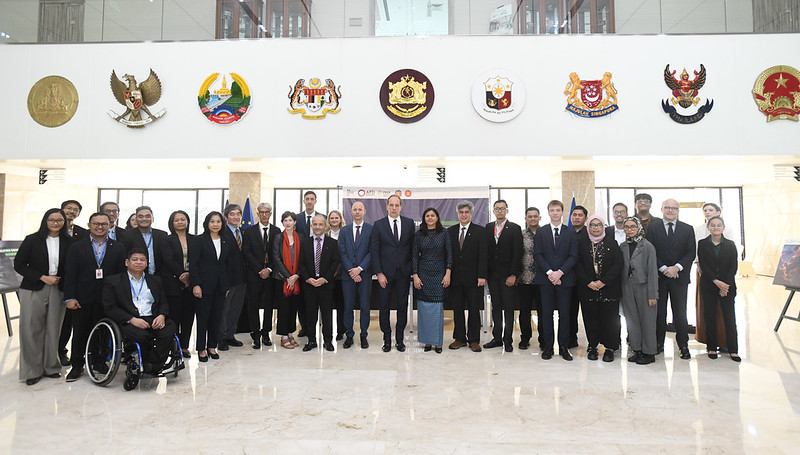 Credit: ASEAN Secretariat
Credit: ASEAN Secretariat
The 4-year grant agreement is a testament to the flexibility of PEEB’s implementation approach, which will enable implementers ACE and AFD to pursue the aligned objectives of environmental resilience and sustainable growth. Through this initiative, significant strides are expected in the ASEAN region, exemplifying a model of international cooperation and strategic partnership.
***
About ASEAN Centre for Energy (ACE)
Established on 1 January 1999, the ASEAN Centre for Energy (ACE) is an intergovernmental organisation within the Association of Southeast Asian Nations’ (ASEAN) structure that represents the 10 ASEAN Member States’ (AMS) interests in the energy sector. ACE supports the implementation of the ASEAN Plan of Action for Energy Cooperation (APAEC), a blueprint for ASEAN energy sector. The Centre is guided by a Governing Council composed of Senior Officials on Energy from each AMS and a representative from the ASEAN Secretariat as an ex-officio member.
The three key roles of ACE:
- As a catalyst to unify and strengthen ASEAN energy cooperation and integration by implementing relevant capacity building programmes and projects to assist the AMS develop their energy sector.
- As the ASEAN energy data centre and knowledge hub to provide a knowledge repository for the AMS.
- As an ASEAN energy think tank to assist the AMS by identifying and surfacing innovative solutions for ASEAN’s energy challenges on policies, legal & regulatory frameworks and technologies.
Keeping the region's improvement, sustainable and harmless to the ecosystem is a fundamental concern of the ASEAN energy sector. Hosted by the Ministry of Energy and Mineral Resources of Indonesia, ACE’s office is located in Jakarta, Indonesia. For more information on ACE website: aseanenergy.org
For further information, please contact:
Rinda Rufaidah, Communications Specialist of ASEAN Centre for Energy (ACE): rinda.rufaidah@aseanenergy.org, +6287809140902
About Française de Développement (AFD)
The Agence Française de Développement (AFD) Group funds, supports and accelerates the transition to a fairer and more sustainable world. Focusing on climate, biodiversity, peace, education, urban development, health and governance, our teams carry out more than 4,200 projects in France’s overseas departments and territories and another 150 countries. In this way, we contribute to the commitment of France and French people to support the Sustainable Development Goals (SDGs).
For more information on AFD, please visit the website: https://www.afd.fr/en
About Partnership for Energy Efficiency in Buildings (PEEB)
The Partnership for Energy Efficiency in Buildings (PEEB) is transforming the buildings and construction sector through financing, policy support and capacity building with the vision to achieve a low-emissions and a climate-resilient built environment. PEEB was initiated in 2016, at COP22 by Germany and France and it is catalysed by the Global Alliance for Buildings and Construction (GlobalABC). PEEB taps into the expertise of its implementing agencies : Agence Française de Développement (AFD), Deutsche Gesellschaft für Internationale Zusammenarbeit (GIZ), and Agence de l’Environnement et de la Maîtrise de l’Energie (ADEME).
For more information, please visit the website or contact info@peeb.build.
http://www.peeb.build/news-events/PEEB-ASEAN-launch
Action on buildings benefits people and planet. This vision marked the Buildings and Climate Global Forum that took place on 7-8, March 8, in Paris, with the adoption of the “Chaillot Declaration”. The buildings and construction sector represent over a fifth of global GHG emissions, according to the latest Global Status Report for Buildings and Construction, released last week by UNEP and the Global Alliance for Buildings and Construction (GlobalABC). The Forum was an inedit gathering of ministries responsible for construction from 70 countries and 1400 global actors from the buildings industry, international, and civil society organizations to tackle buildings decarbonization and resilience. PEEB participated actively, sharing its experience as a frontrunner in the implementation of the climate and buildings agenda and fostering ambitious commitments towards achieving Paris Agreement and Buildings Breakthrough goals.
PEEB at the Forum – from development banks to housing and renovation
Scaling up finance, renovation, housing, resilience: PEEB's experience featured in pre-forum gatherings and the forum’s official programme, including technical sessions, high-level dialogues, and the closing session. The Forum offered the PEEB team and partners a unique opportunity of face-to-face interaction: the PEEB Med team engaged with Mediterranean region actors, while an implementers workshop for PEEB Cool brought together team members from Indonesia, Costa Rica, Mexico, Morocco, Nigeria, and Tunisia.
PEEB's work on mobilizing development banks for sustainable buildings delivered a key contribution to the Buildings Breakthrough Finance agenda: a call for the creation of a coalition of development banks for sustainable buildings. In concluding the Forum, IDFC's Secretary-General Nicolas Picchiotino and Agence Française de Development (AFD) Deputy Director-General, Betrand Walckenaer wrapped up the proceedings alongside France’s Minister for the Ecological Transition Christophe Béchu, announcing the next gathering of development banks at the Finance in Common Summit next October in China.
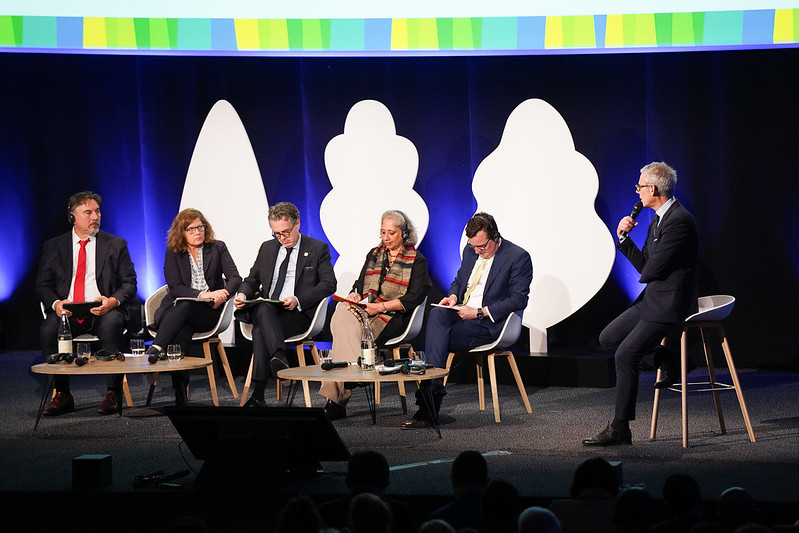 Closing Ceremony of the Buildings and Climate Global Forum on 8 March . Credit: Christophe Rousse/10 billion solutions
Closing Ceremony of the Buildings and Climate Global Forum on 8 March . Credit: Christophe Rousse/10 billion solutions
Development Banks on the move: scaling up finance through increased cooperation
PEEB and the International Finance Corporation (IFC), in collaboration with the International Development Finance Club (IDFC), organized two events to put green and resilient buildings at the centre of the development finance agenda.
The outcomes of a workshop with development banks on 6 March at the AFD headquarters informed the Forum session "Financing green buildings for sustainable development - How development banks can scale up action", on 7 March. The role of development banks in supporting the establishment of markets via tools, methodologies, indicators, and engagement in transformation of enabling frameworks was emphasized by speakers from AFD, Caisse de dépôt et de gestion du Maroc, the German Federal Ministry for Economic Affairs and Climate Action (BMWK), the International Finance Corporation, the Jordan Renewable Energy and Energy Efficiency Fund (JREEEF), the World Bank, and Shelter Afrique.
Manelle Ait Sahlia, Deputy Head of the Energy Division at AFD, recounted how PEEB played this role and successfully mainstreamed energy efficiency in Buildings across different AFD technical sectors. Participants agreed that this kind of transformation needs to happen across governments and development finance institutions on a global level.
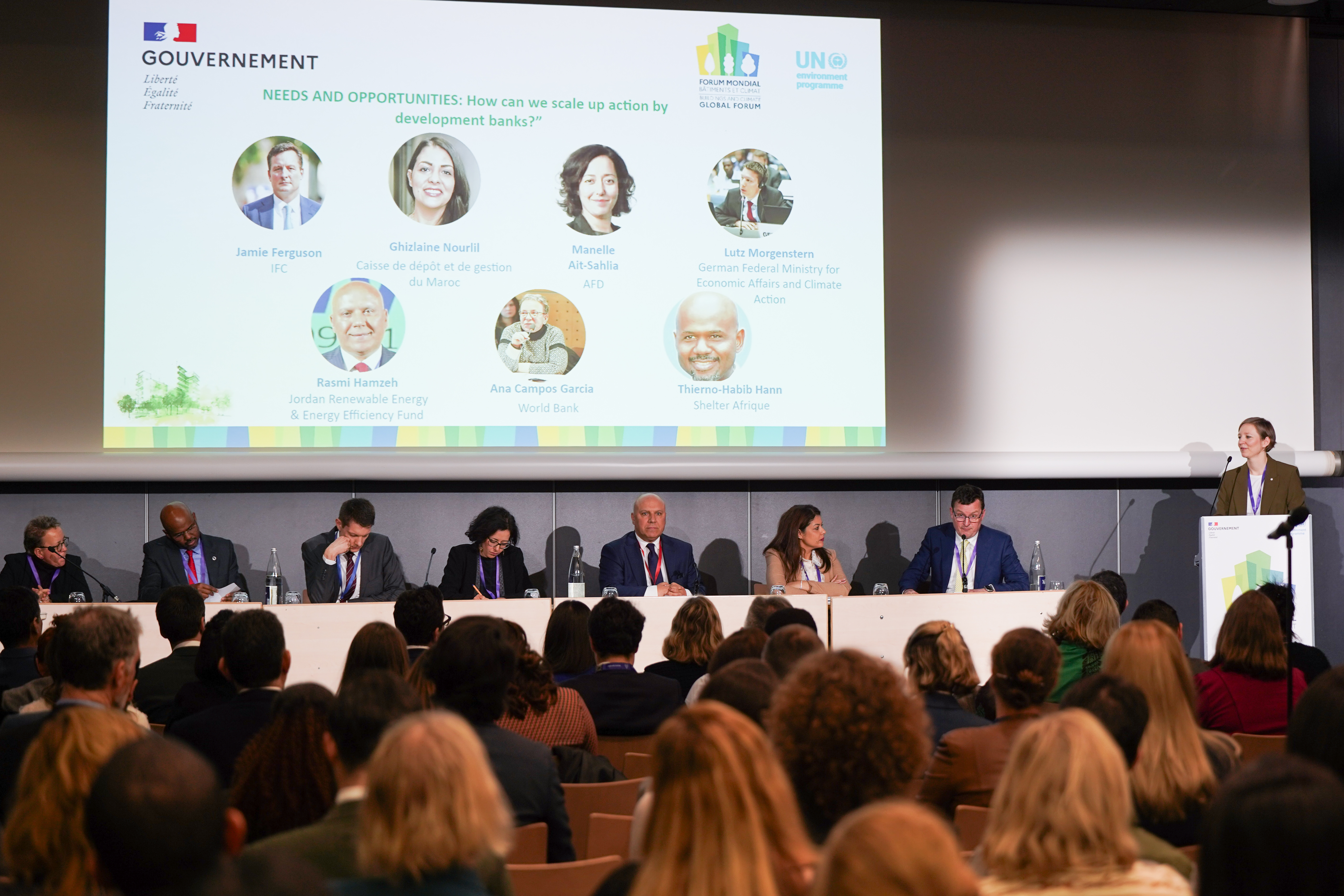 From left to right: Ana Campos Garcia (World Bank), Thierno Habib-Hann (Shelter Afrique), Lutz Morgenstern (BMWK), Manelle Ait Sahlia (AFD), Rasmi Hamzeh (Jordan Renewable Energy and Energy Efficiency Fund - JREEEF), Ghizlaine Nourlil (Caisse de Depots et Gestion du Marco), Jamie Fergusson (IFC), and Anna Zinecker (PEEB/GIZ) at the “Financing green buildings for sustainable development - How development banks can scale up action" on March 07 at the Buildings and Climate Global Forum in Paris. Credit: Lucía Vásquez Tumi/10 Billion Solutions
From left to right: Ana Campos Garcia (World Bank), Thierno Habib-Hann (Shelter Afrique), Lutz Morgenstern (BMWK), Manelle Ait Sahlia (AFD), Rasmi Hamzeh (Jordan Renewable Energy and Energy Efficiency Fund - JREEEF), Ghizlaine Nourlil (Caisse de Depots et Gestion du Marco), Jamie Fergusson (IFC), and Anna Zinecker (PEEB/GIZ) at the “Financing green buildings for sustainable development - How development banks can scale up action" on March 07 at the Buildings and Climate Global Forum in Paris. Credit: Lucía Vásquez Tumi/10 Billion Solutions
Therefore, the call for a coalition of development banks for buildings and climate was welcomed as leap forward in the second day of the forum. Key issues identified to scale up green buildings portfolios were strong collaboration. Read more on our Development Banks workshop article.
PEEB Cool launch: boosting sustainable buildings in 11 countries
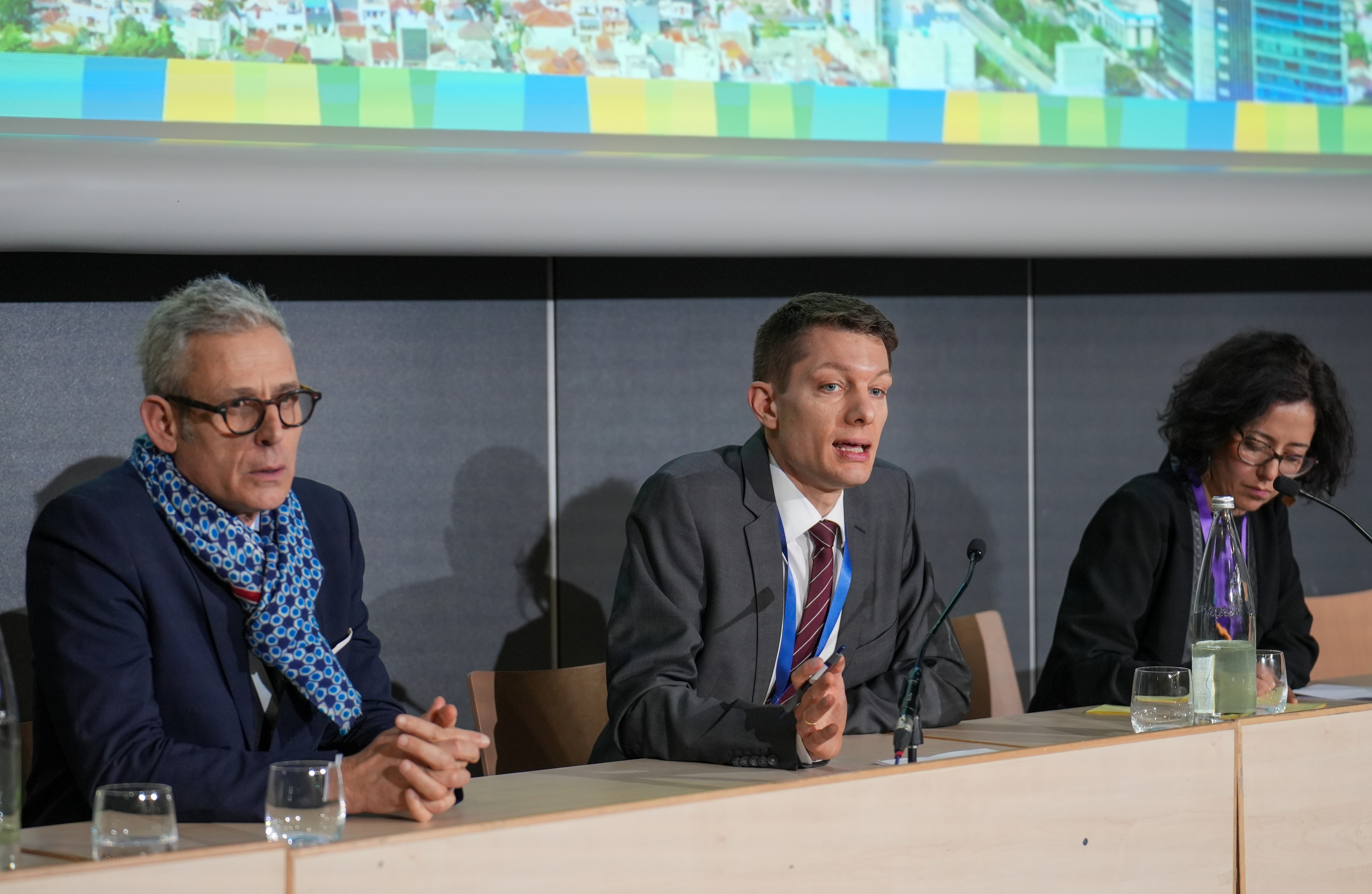 From left to right: Yves Laurent Sapoval (Ministère de la Transition Écologique et de la Cohésion des Territoires), Lutz Morgenstern (BMWK), and Manelle Ait-Sahlia (AFD). Credit: Lucía Vásquez Tumi/10 Billion Solutions
From left to right: Yves Laurent Sapoval (Ministère de la Transition Écologique et de la Cohésion des Territoires), Lutz Morgenstern (BMWK), and Manelle Ait-Sahlia (AFD). Credit: Lucía Vásquez Tumi/10 Billion Solutions
Following the development banks event, the PEEB Cool was launch offered an example of what a strong cooperation for implementation of the buildings and climate agenda can achieve. A 230,5 million EUR budget, funded by the Green Climate Fund, the German Federal Ministry for Economic Affairs and Climate Action (BMWK), AFD, and the French Fund for the Global Environment (Fonds Français pour l’Environnement Mondial, FFEM), will scale up PEEB’s financial tools in addition to the tried and tested formula of combining project assistance and enabling frameworks.
Promoting a buildings lifecycle approach in the Mediterranean region
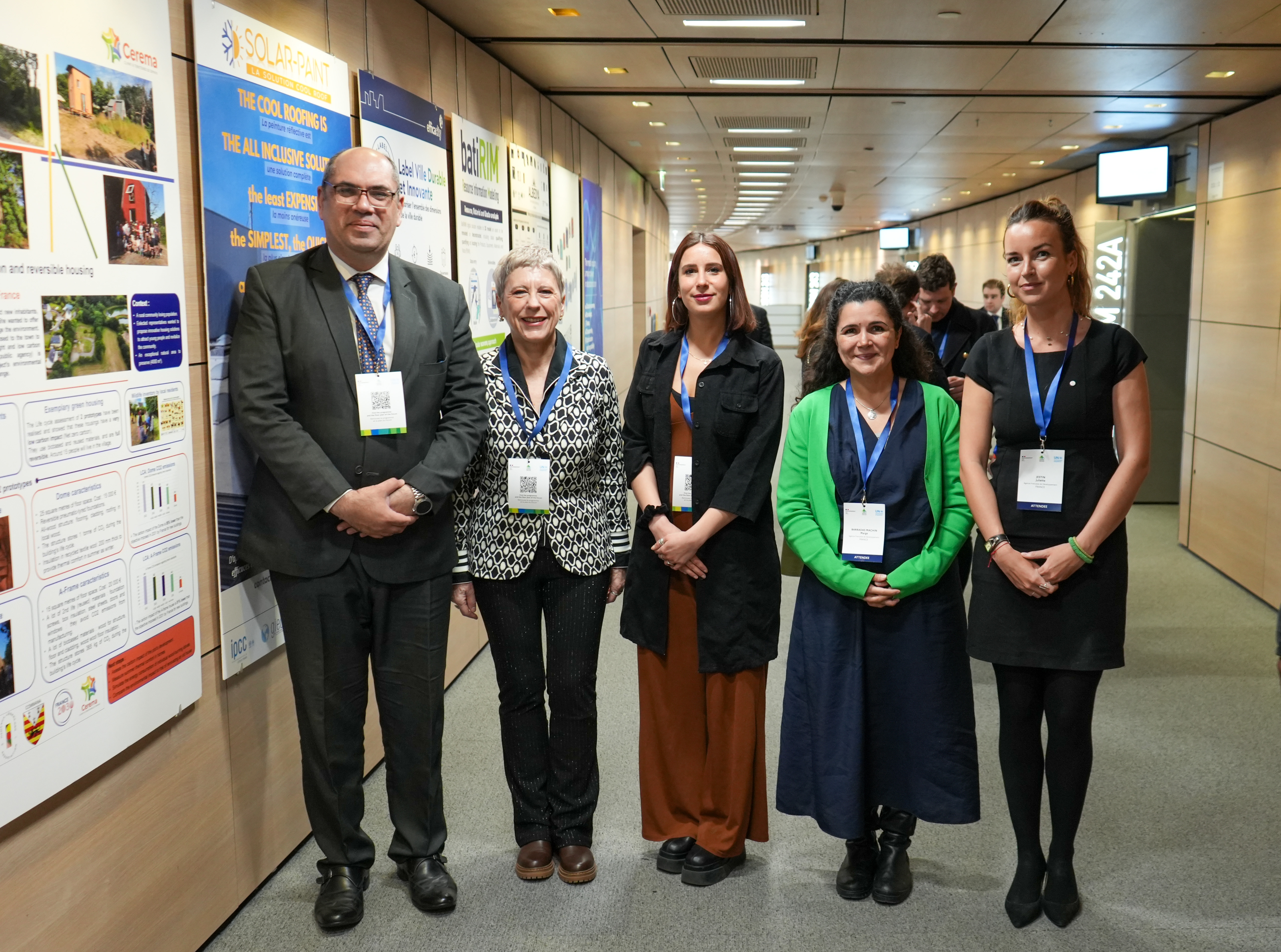 From left to right: Maged Mahmoud (Regional Center for Renewable Energy and Energy Efficiency), Roberta Boniotti (Mediterranean Association of National Agencies for Energy Management), Agathe Lacombe (MeetMED), Marge Barradas Machin (TERAO), Juliette Jestin (PEEB/AFD). Credit: Christophe Rousse/10 Billion Solutions
From left to right: Maged Mahmoud (Regional Center for Renewable Energy and Energy Efficiency), Roberta Boniotti (Mediterranean Association of National Agencies for Energy Management), Agathe Lacombe (MeetMED), Marge Barradas Machin (TERAO), Juliette Jestin (PEEB/AFD). Credit: Christophe Rousse/10 Billion Solutions
In the session “Sustainable Construction in the Euro-Mediterranean Region“, convened by the Secretariat of the Union for the Mediterranean, PEEB Med Programme Officer Juliette Jestin, representatives of UfM member states, and MeetMED experts discussed enabling frameworks and financial schemes for sustainable buildings in the region.
Juliette Jestin shared insights from technical support in energy efficiency for the development and extension of the Saint Joseph hospital in the Palestinian territories. To meet healthcare needs of the population, health infrastructure in the region will need to be developed to withstand changing climatic conditions such as heatwaves and cyclones. PEEB Med supports a shift to overall cost approach in the buildings lifecycle to reduce barriers to investment.
Local solutions for global challenges: housing renovation in Mexico
In the event "Renovation of the Building Stock at scale", PEEB Mexico's Liliana Campos showed how PEEB increased impact in Mexico by tailoring financial instruments to end-user needs. Mexican social housing faces the challenge of high costs associated with energy-efficient renovation.
PEEB supported the development of a staged whole-house approach: different packages with different levels of energy efficiency performance were created to match the financial capacity of final consumers. This approach was scaled up to more than 7.300 homes, improving the lives of 29.500 people and saving 8.850 tCO2.
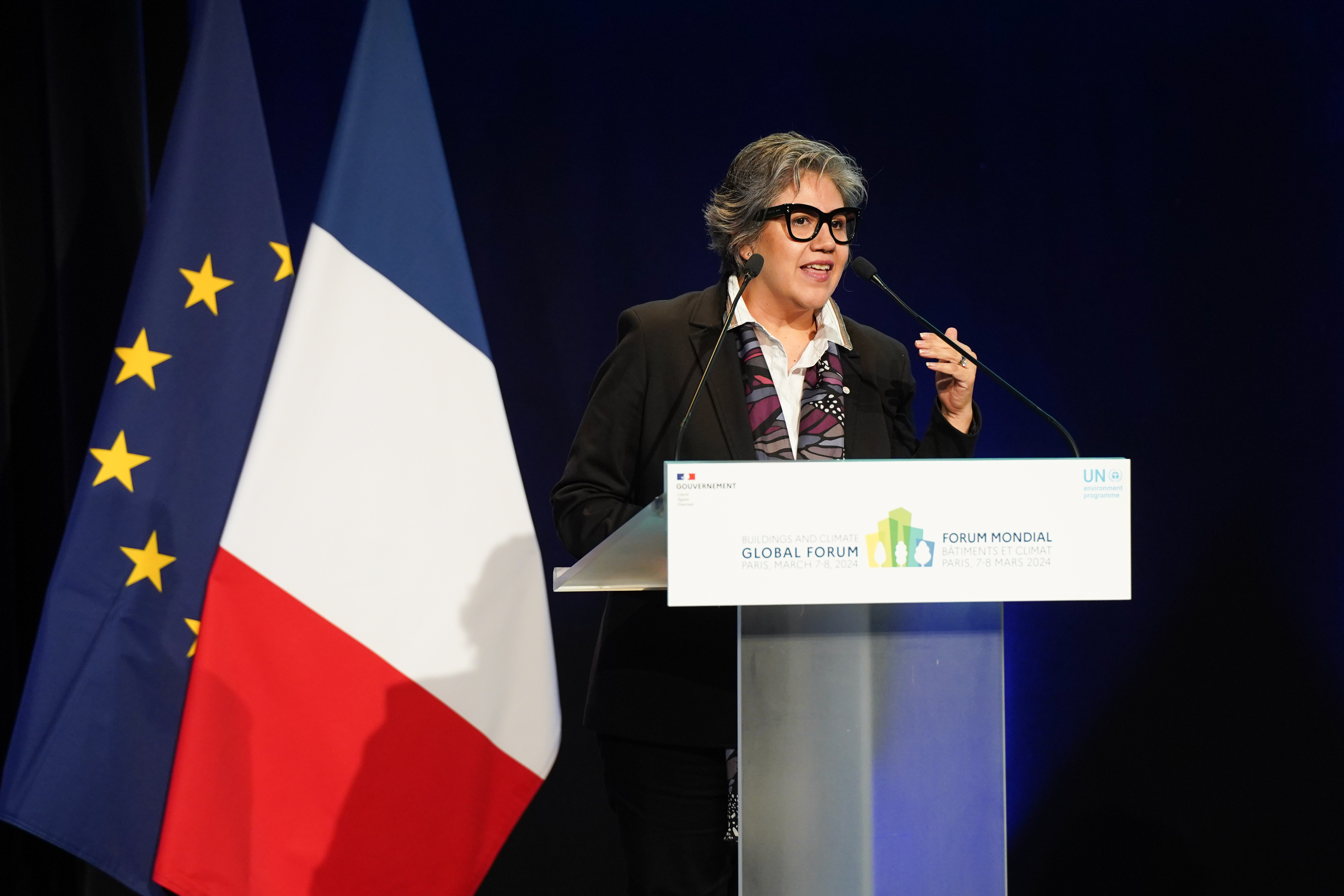 Liliana Campos Arriaga speaks at the session “Renovation of the Building Stock at scale” on 7 March. Credit: Lucía Vásquez Tumi/10 Billion Solutions
Liliana Campos Arriaga speaks at the session “Renovation of the Building Stock at scale” on 7 March. Credit: Lucía Vásquez Tumi/10 Billion Solutions
http://www.peeb.build/news-events/PEEB-Buildings-Climate-Global-Forum
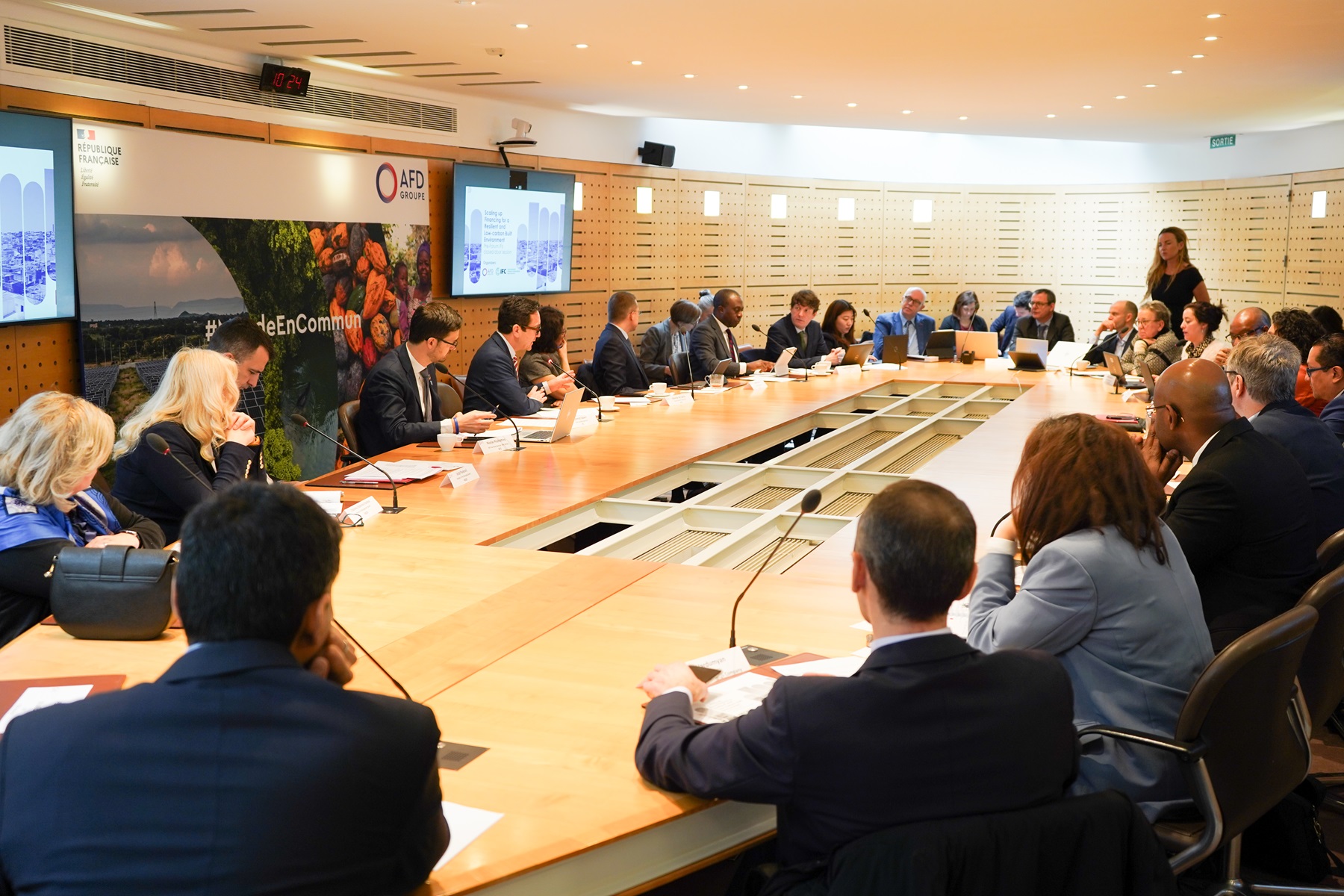 Workshop with development banks at AFD Headquartes, March 06. Credit: Lucía Vásquez Tumi/10 Billion Solutions
Workshop with development banks at AFD Headquartes, March 06. Credit: Lucía Vásquez Tumi/10 Billion Solutions
On March 6th, PEEB and IFC joined forces to host a workshop at AFD’s Paris headquarters titled "Scaling up Financing for a Resilient and Low-carbon Built Environment". Chaired by IFC global technical lead for EDGE green building certification, Ommid Saberi and Nicolas Picchiottino, Secretary-General of the International Development Finance Club (IDFC), this session drew over 30 representatives from multilateral, bilateral, and national development banks, including members of the IDFC. Together, they identified actionable strategies to strengthen our collective interventions in the buildings sector.
To get the sector on track to net-zero emissions, a steep decline in emissions from buildings and construction must be achieved by 2030 to meet the Paris goals. Solutions are at hand but they need to move faster! Supporting energy efficiency policies and investments has never been more critical.
Participants emphasized the crucial role of multilateral, bilateral, and national development banks in scaling up investments in sustainable building sectors. They discussed challenges related to increasing financing for a resilient and low-carbon built environment, exchanging experiences, insights, and brainstorming on how banks can collectively do more and better. The group identified key challenges to tackle and committed to ongoing collaboration to drive these initiatives forward:
- Deployment of fast-track mechanisms, financing tools and project preparation funds to boost funding in the sector
- Working on policy frameworks and planning, harmonizing construction and building initiatives with National Determined Contributions (NDCs).
- Supporting value chain and sector-wide approaches that address building materials and the construction industry as a whole
- Aligning resilience, decarbonization, and social agendas, in line with JET approach (Just Energy Transition)
- Support for advocacy, capacity building, awareness raising, and recognizing the importance of tailor-made technical assistance and human capital to our partners
- Promoting partnerships and collaborative approaches between development banks
The session, moderated jointly by AFD and IFC, saw participation from several development banks including the African Development Bank Group, IDB Invest, CEB, BERD, EIB, World Bank Group, NMC, CDG Morocco, Japan International Cooperation, HBOR, Asian Infrastructure Investment Bank, KfW, Agence Française de Développement, Shelter Afrique as well as the IEA.
In concluding the Buildings and Climate Global Forum, AFD's Deputy Director-General, Betrand Walckenaer, and IDFC's Secretary-General wrapped up the proceedings alongside Minister Christophe Béchu, announcing the next gathering for development banks, the FICS in China in October. This event will assemble over 1,300 representatives from Public Development Banks, governments, the financial sector, civil society, and media, fostering dialogue to craft a more inclusive and sustainable global financial architecture and tranisition towards more environmentally sustainable built infrastructure.
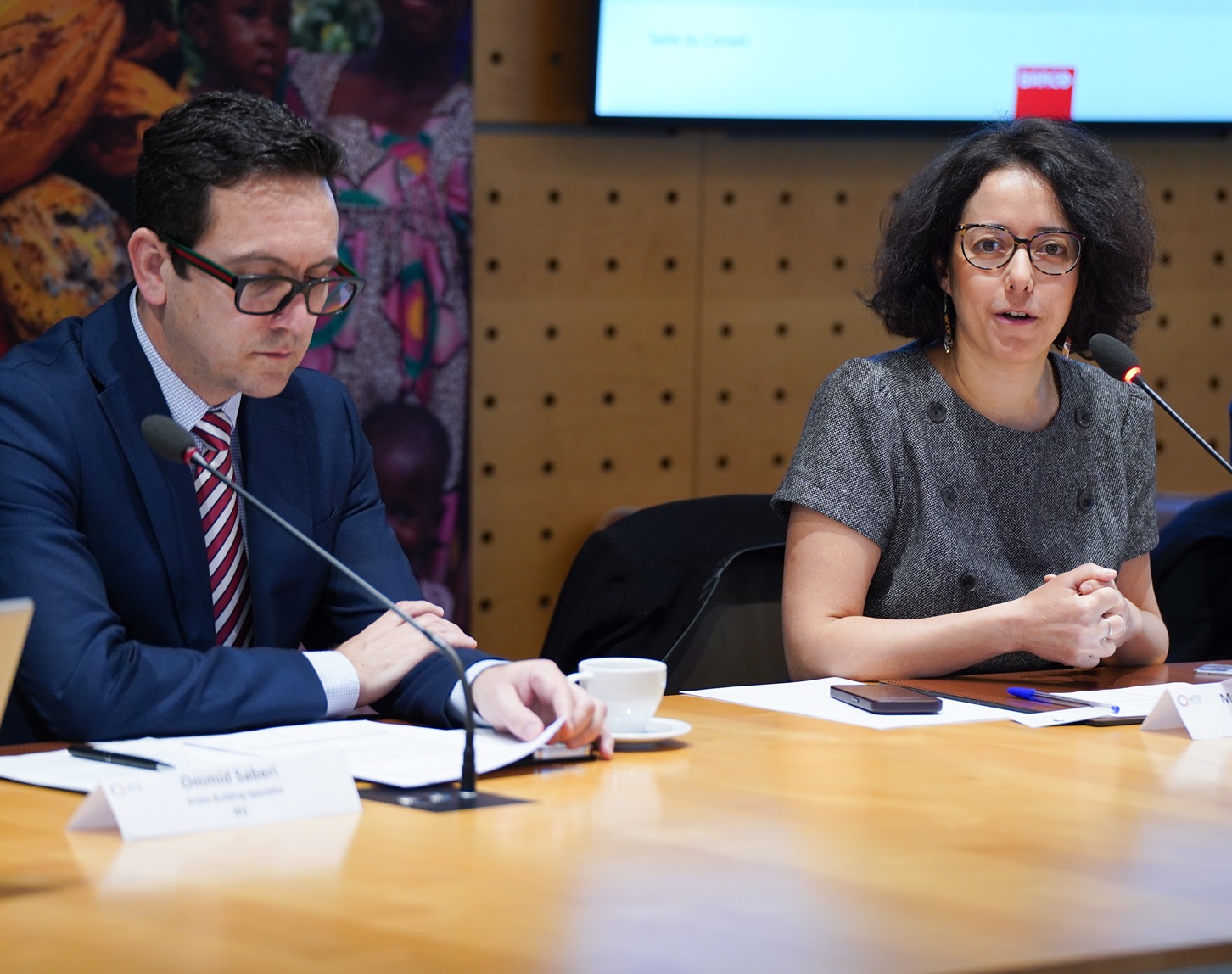 Manelle Ait-Sahlia (AFD) speaks at the development banks workshop at AFD Headquarters, March 06. Credit: Lucía Vásquez Tumi/10 Billion Solutions
Manelle Ait-Sahlia (AFD) speaks at the development banks workshop at AFD Headquarters, March 06. Credit: Lucía Vásquez Tumi/10 Billion Solutions
Background:
Established in 2011, IDFC leads a coalition of 26 national and regional development banks worldwide, primarily active in emerging markets. It stands as the largest provider of public development and climate finance globally, with assets exceeding US$ 4 trillion and annual commitments surpassing US$ 800 billion, including a notable US$ 190 billion dedicated to climate finance. IDFC members play a unique role in supporting domestic policies while aligning with international priorities, particularly the Sustainable Development Goals (SDGs) and the Paris Climate Agreement agendas. Through IDFC, in close collaboration with other development bank networks, members pool resources to promote and leverage Sustainable Development Investment globally.
http://www.peeb.build/news-events/Development-banks-workshop
With the support of the European Union, the UfM Secretariat convened thegathering of Heads of Delegations of UfM Member States and meetMED experts, participating at the Building and Climate Global Forum on March 7, 2024.
Reflecting on the Buildings and Climate Global Forum held in Paris Marge Barradas Machin, Cooperation Development Team Manager at Terao and our PEEB Med Programme Officer, Juliette Jestin took the stage as featured speakers.
This session brought together Heads of Delegations from UfM Member States and meetMED experts from the Energy Management Agencies of the South Shore of the Mediterranean to discuss regulatory frameworks for energy efficiency in the building sector, national strategies to support building renovation, and funding programs and financial schemes.
Our team was proud to share insights into our technical support facilitated by PEEB Med, an initiative under the umbrella of the PEEB Partnership which supports seven countries in the Mediterranean region through technical assistance and finance. AFD supports the development and extension of Saint Joseph Hospital through PEEB Med technical assistance funds, optimizing the energy performance of the building. The aim of the project is to support the development of Saint Joseph's Hospital, a referral medical institution, to meet the healthcare needs of the Palestinian population.
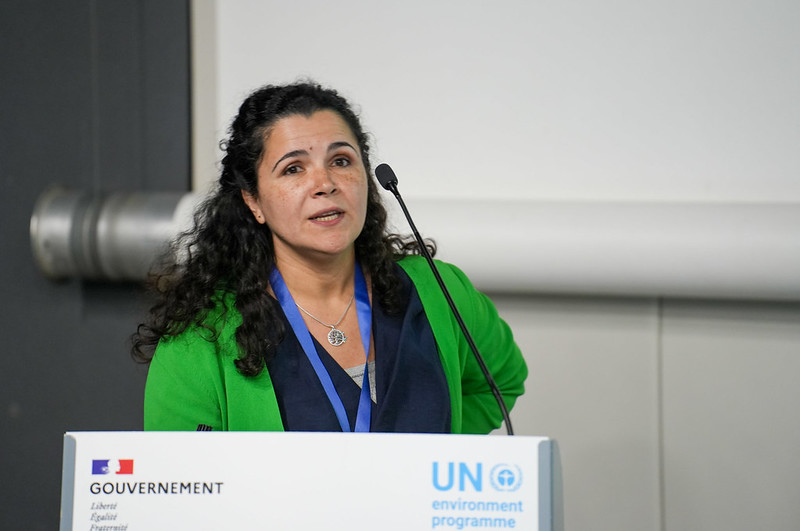 Photo: Marge Barradas Machin, Cooperation Development Team Manager at TERAO, speaks at the event. Credit: Christophe Rousse/10 Billion Solutions
Photo: Marge Barradas Machin, Cooperation Development Team Manager at TERAO, speaks at the event. Credit: Christophe Rousse/10 Billion Solutions
In the health sector, which represents around 7% of global emissions, AFD is committed to adapting healthcare infrastructure and equipment through the following actions:
- Extend and secure the energy supply of healthcare centers
- Optimize the energy performance of buildings
- Secure and preserve the water supply and aquifer resources around healthcare structures
- Structure, secure, and sanitize the solid and liquid waste sectors
Healthcare structures also need to be developed in accordance with future climate conditions, as climate change will generate extreme weather conditions such as heatwaves or cyclones.
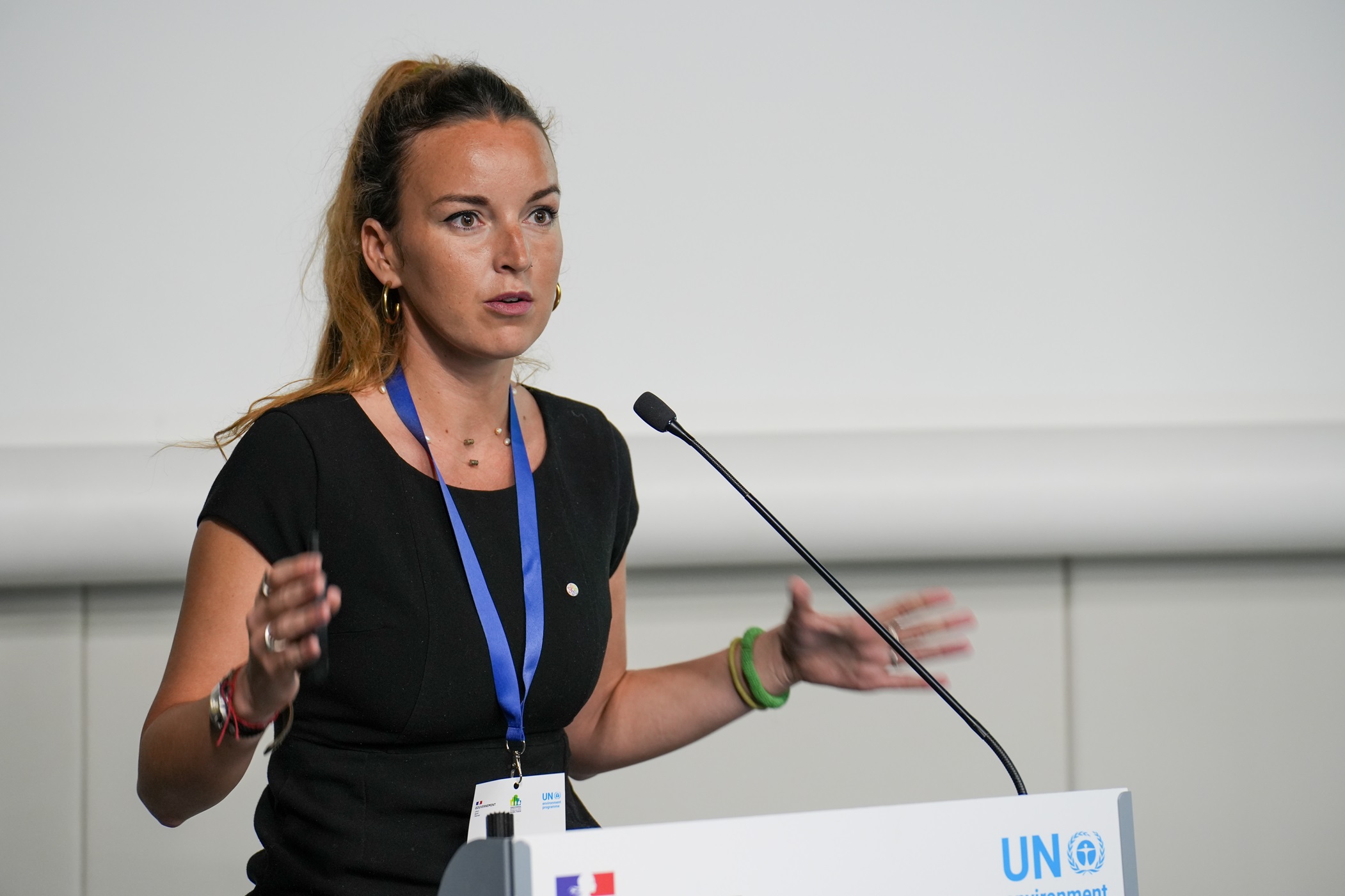 Photo: Juliette Jestin, PEEB Med Programme Officer speaks at the event. Credit: Christophe Rousse/10 Billion Solutions
Photo: Juliette Jestin, PEEB Med Programme Officer speaks at the event. Credit: Christophe Rousse/10 Billion Solutions
Juliette Jestin outlined the need to take into account a global costs approach in the building lifecycle. "With support from the European Commission, PEEB Med shifts the focus to an overall cost approach in the building lifecycle. This involves integrating a multi-level strategy benefiting our partners in the Mediterranean region, encompassing policy dialogue, technical assistance, and project financing to alleviate the perception of risk and financial barriers linked to energy efficiency investment."

http://www.peeb.build/news-events/sustainable-construction-euro-mediterranean-region
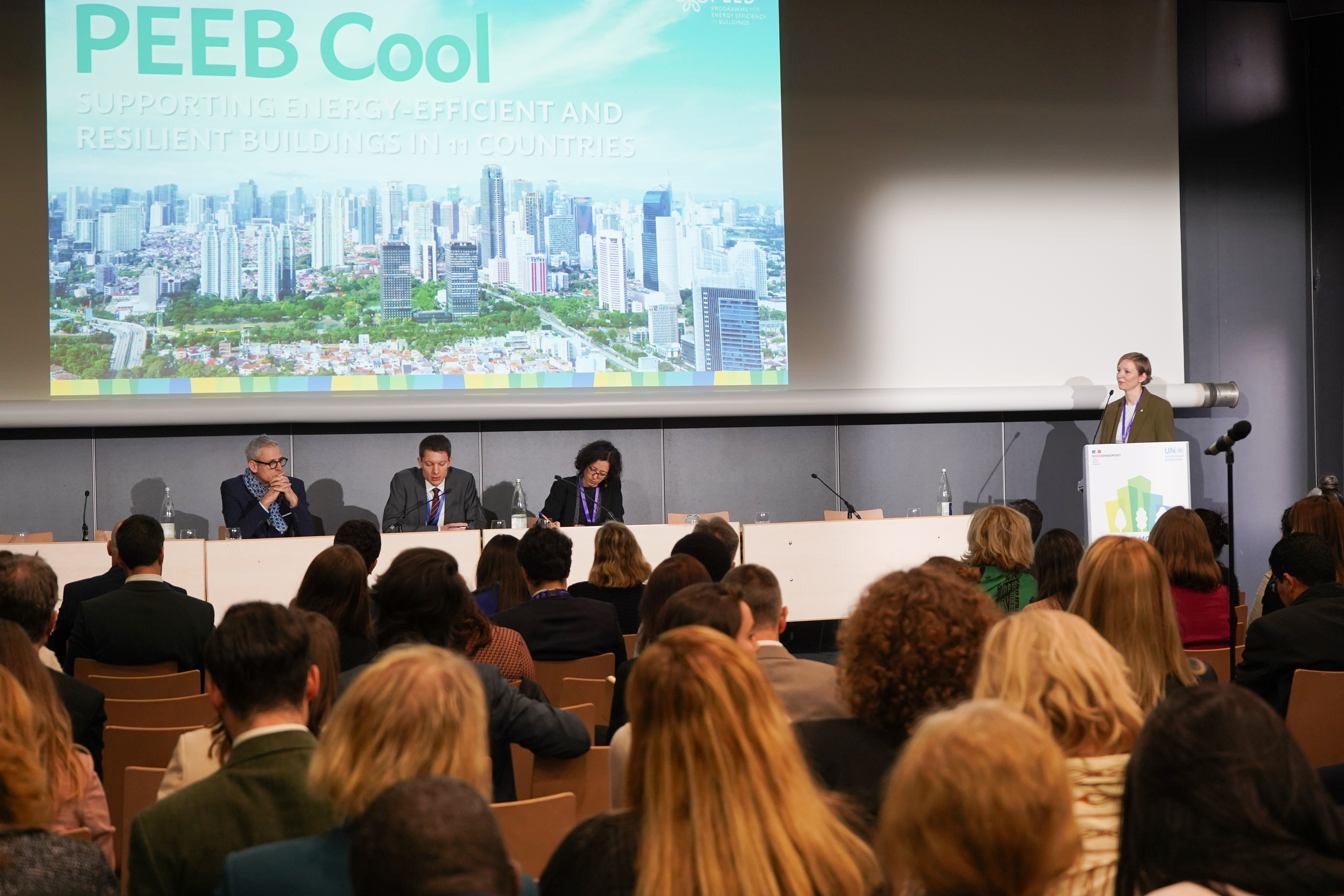
Yves-Laurent Sapoval (French Ministry for the Ecological Transition - MTE), Lutz Morgenstern (Federal Ministry of Economic Affairs and Climate Action of Germany - BMWK), Manelle Ait-Sahlia (French Development Bank - AFD), and Anna Zinecker (Programme for Energy Efficiency in Buildings - PEEB) launch the PEEB Cool programme at the Buildings and Climate Global Forum
- Albania, Argentina, Costa Rica, Djibouti, Indonesia, Mexico, Morocco, Nigeria, North Macedonia, Sri Lanka and Tunisia benefit from the initiative
- PEEB Cool has a finance window of 230.5 million EUR
- PEEB Cool supports countries in hot climates to improve energy efficiency in buildings and resilience to shocks such as extreme climate events and energy scarcity.
(7 March 2024) The PEEB Cool initiative has been presented today in Paris at the Buildings and Climate Global Forum. PEEB Cool will boost green buildings in 11 hot-climate countries with an initial financial window of 230.5 million EUR, marking a significant scale up of theProgramme for Energy Efficiency in Buildings (PEEB). The initiative will be jointly implemented by Agence Française de Développement (AFD) and the Deutsche Gesellschaft für Internationale Zusammenarbeit (GIZ).
In total, 11 countries in Africa, Asia, Eastern Europe and Latin America will benefit from PEEB Cool, which mission is to transform the buildings and construction sector by advancing resilient and energy-efficient building design, construction and operation.
Today, buildings and construction account for around 37 percent of energy-related CO2 emissions. This percentage will increase if it remains unaddressed, amongst other uses because as energy demand for space cooling is expected to triple by 2050. PEEB Cool will support partner countries to align their building sector with the goals of the Paris Agreement on climate change.
PEEB Cool will be operational this year and will count on an Investment Facility implemented by AFD to support the development of large-scale green building projects and an Enabling Facility implemented by GIZ to help countries improve strategies and regulations for resilient and efficient buildings through policy advice, capacity building and international awareness.
Along with the contribution from the GCF of around 220 million EUR, the Agence Française de Development (AFD) co-finances the Programme with 5 million EUR in project assistance grants. The FFEM contributes with an investment grant of 3 million EUR. The German Federal Ministry for Economic Affairs and Climate Action (BMWK) will contribute 2.5 million EUR as grants for policy support and international awareness. The concessional loans should leverage an estimated amount of 1.1 billion EUR of loans.
Key benefits for climate and people
Albania, Argentina, Costa Rica, Djibouti, Indonesia, Mexico, Morocco, Nigeria, North Macedonia, Tunisia, and Sri Lanka benefit from the Programme. It is estimated that around 1.13 million people will see their living conditions improved from buildings that are energy-efficient and adapted to the effects of rising temperatures.
PEEB Cool will primarily support the development of new constructions, but it will also address the refurbishment of existing buildings. It is expected that around 1.5 million tons CO2 equivalent will be reduced or avoided thanks to the impact of the programme.
CO2 emissions will be reduced at all phases of the construction and operation, and a strong emphasis will be put on reducing emissions from cooling through the development of bioclimatic buildings whilst also improving the users’ thermal comfort and security.
Together with cutting greenhouse gas emissions, PEEB Cool aims to increase buildings’ resilience to extreme climate events, but also to economic crises and energy scarcity. On the other hand, it is expected that PEEB Cool also helps create around 27,000 jobs, primarily in construction activities.
Manelle Ait-Sahlia, Deputy Head, Energy Division, Agence Française du Développement, said :
“Through its Investment Facility, PEEB Cool will support local stakeholders in implementing large-scale buildings projects and focus on improving living conditions of populations that are particularly vulnerable to extreme heat. PEEB Cool will be implemented in line with AFD’s ambitious energy transition strategy, and will be very mindful of closely following the GCF's and AFD’s guidelines in terms of Environmental and Social standards, including gender equality, to make sure PEEB Cool puts people’s wellbeing at the center of its activities”.
Yves-Laurent Sapoval, Ministerial Delegate for Sustainable Cities – Urban envoy, Ministry for the Ecological Transition, France, said:
“France has been at the forefront together with our partners from Germany to champion the much-needed energy efficiency of buildings worldwide. Since its founding in 2016, following COP21 and the launch of the GlobalABC, PEEB has grown thanks to the renewed commitment of the founding partners and the support from multilateral financial organisations such as the Green Climate Fund that we gratefully welcome. Today, the kick-off of the PEEB Cool initiative in the framework of the first-ever Buildings and Climate Global Forum in Paris is witnessing renewed momentum for greater international cooperation to put action on buildings and buildings at the top of the priorities of nations and financial institutions.”
Lutz Morgenstern, Head of Division at the Directorate of International Climate Action and Energy Transition, Federal Ministry for Economy Affairs and Climate Action, Germany, said:
“The challenge is clear, we need to combine climate action and sustainable development. On our urbanizing planet, there is a huge need for housing that is energy-efficient, comfortable and resilient. At the same time, we need to quickly bring down greenhouse gas emissions. At COP28, world leaders committed to doubling of energy efficiency improvements by 2030, thus placing the principle of energy efficiency as the "first fuel” at the core of policymaking, planning, and major investment decisions. PEEB is a key contribution for this often overlooked energy efficiency agenda. PEEB Cool is a real game changer for the implementation of this crucial initiative in terms of scale and scope, and we are happy to kick-start implementation of this new funding window now”.
Jerome Gastaud, Head of Energy and Climate, at the French Facility for Global Environment, said:
“The French Facility for Global Environment (FFEM) has supported the PEEB from its inception, and is very pleased to renew its contribution for the PEEB Cool initiative. FFEM launched a call for projects on Sustainable refrigeration and air-conditioning, with the aim of promoting synergies between the Paris Agreement and the Kigali Amendment to the Montreal Protocol. PEEB Cool is one of the winners of this call for projects and represents a unique opportunity to promote the increase of energy efficiency in buildings, especially in the cooling sector, in parallel of the phase down of HFCs. FFEM is strongly engaged to promote sustainable construction methods, and passive cooling solutions, and welcomes the kick-off of the PEEB Cool initiative during the first Buildings and Climate Global Forum.”
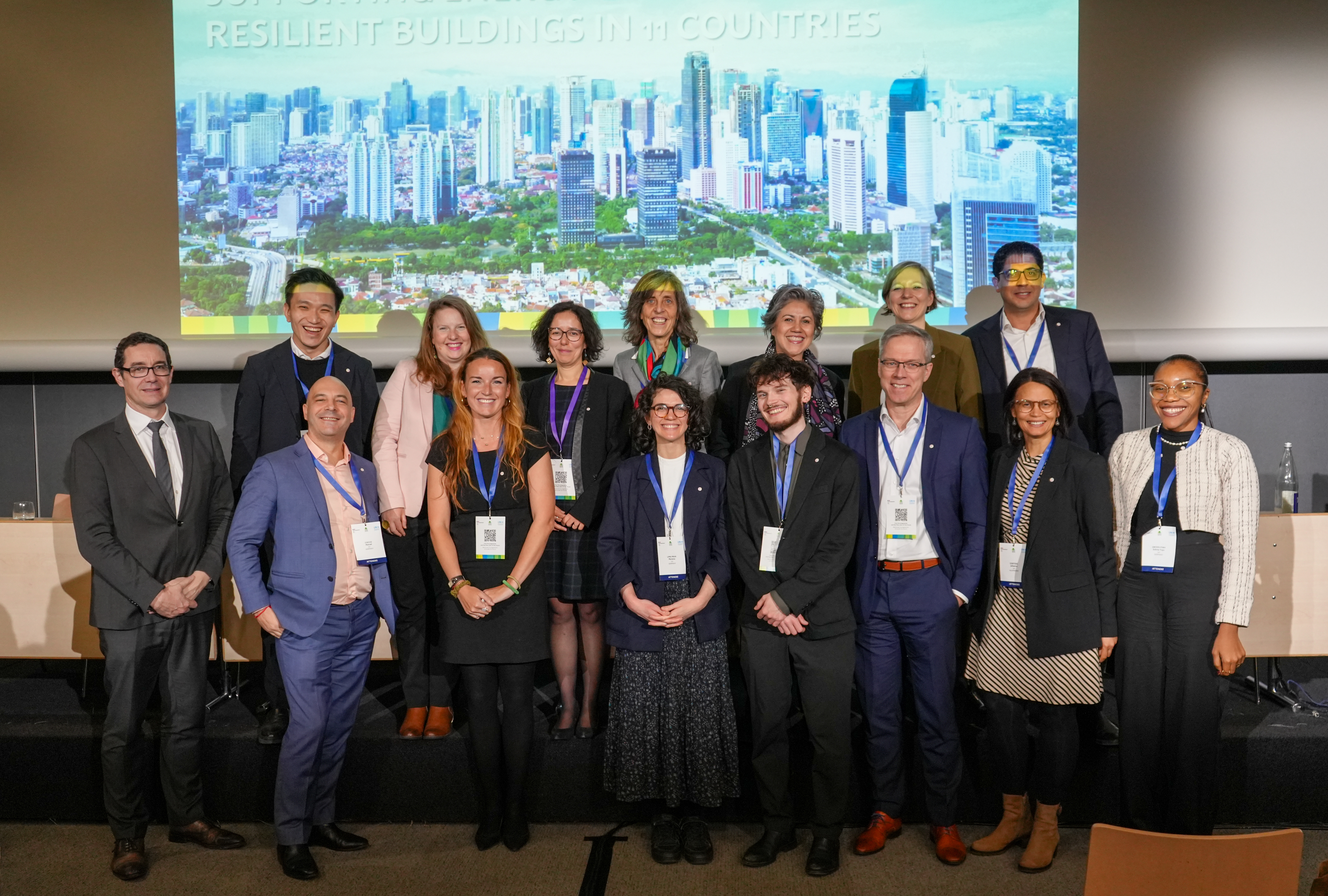
Members from the Global PEEB Cool team celebrate the launch of PEEB Cool. From the left to the right on the top row: Felix Ciosconara (GIZ Indonesia), Louise Virault (AFD Communications), Manelle Ait-Sahlia (AFD), Antje Wemhoener (head of PEEB Secretariat), Liliana Campos Arriaga (PEEB Mexico), Anna Zinecker (GIZ), Akram Hamza (GIZ Tunisia). From the left to the right, on the bottom: Manuel Cocco (GIZ Morocco), Juliette Jestin (AFD), Mariana Lima Maia (GIZ), Loe Guthmann (GIZ), Joern Deflize (GIZ), Johanna Coetzee (GIZ), Edima Yuyu Okodi-Iyah (GIZ Nigeria).
NOTES TO EDITORS
ABOUT PEEB
The Programme for Energy Efficiency in Buildings (PEEB) is transforming the buildings and construction sector through financing, policy support and capacity building with the vision to achieve a low-emissions and a climate-resilient built environment. PEEB was initiated in 2016, at COP22 by Germany and France and it is catalysed by the Global Alliance for Buildings and Construction (GlobalABC). PEEB taps into the expertise of its implementing agencies : Agence française de développement, Deutsche Gesellschaft für Internationale Zusammenarbeit (GIZ), and Agence de l’Environnement et de la Maîtrise de l’Energie (ADEME).
For more information, please visit the website or contact info@peeb.build
ABOUT AFD
Agence Française de Développement (AFD) implements France’s policy on international development and solidarity. Through its financing of NGOs and the public sector, as well as its research and publications, AFD supports and accelerates transitions towards a fairer, more resilient world. It also provides training in sustainable development (at AFD Campus) and other awareness-raising activities in France.
With our partners, we are building shared solutions with and for the people of the Global South. Our teams are at work on more than 3,250 projects in the field, in the French Overseas Departments and Territories, in 115 countries and in regions in crisis. We strive to protect global public goods – promoting a stable climate, biodiversity and peace, as well as gender equality, education and healthcare. In this way, we contribute to the commitment of France and the French people to achieve the Sustainable Development Goals (SDGs). Towards a world in common.
For more information, please visit the website
ABOUT FFEM
The French Facility for Global Environment (FFEM) supports innovative environmental projects in developing countries. It was created by the French government in 1994, following the first Earth Summit. FFEM has already supported more than 333 projects in more than 120 countries, two-thirds of which are in Africa. FFEM works in partnership with public, private, and civil-society stakeholders in both the South and the North, as well as with other donors and international organisations. The projects it finances generate local, environmental, social, and economic benefits. They not only help preserve biodiversity, climate, international waters, land, and the ozone layer, but also fight pollution. What makes FFEM special is that it focuses on pilot projects in order to learn from them and to disseminate their innovations on a broader scale.
For more information, please visit the website
http://www.peeb.build/news-events/PEEB-Cool-press-release-EN
Ever wondered about the pivotal role development banks play in steering the shift towards climate-friendly and resilient buildings?
On 6 March 2024, in the eve of the Buildings and Climate Global Forum, the Programme for Energy Efficency in Buildings (PEEB) is teaming up with the International Finance Corporation (IFC) to co-organize a high-level roundtable featuring over 30 leaders from 15 Multilateral Development Banks (MDBs) and National Development Banks (NDBs) alongside key partners such as the International Energy Agency.
This session organized in Paris at Agence Française de Développement's headquarters will delve into the current state of financial support for decarbonized and resilient buildings and aims to address challenges and opportunities, paving the way for amplified international cooperation in the realm of green buildings.
Following a session opening by Manelle Ait Sahlia AFD’s Deputy Head of Energy Unit, Ommid Saberi (IFC Global lead for Green and Resilient Buildings) will lead a deep dive, spotlighting development banks' ongoing initiatives in resilient and low-carbon buildings.
Next on the agenda, the International Development Finance Club (IDFC) Secretary-General Nicolas Picchiotino will moderate a discussion on pivotal strategies: from attracting private capital and leveraging grants to blended finance. This session is a strategic roadmap for development banks to spearhead the transition towards low-carbon buildings.
PEEB Manager and energy-efficiency specialist, José Lopez will conclude the discussion on accessing funding facilities and leveraging solutions in view of the Forum (7-8 March).
The outcomes of the session will be shared at the session on development banks at the Buildings and Climate Global Forum on 7 March. Learn more about this and other events organised by PEEB at the Forum.
Stay tuned !
http://www.peeb.build/news-events/Development-Banks-and-Green-Buildings
In 2024, the Programme for Energy Efficiency in Buildings (PEEB) is set to significantly expand its impact on the global stage, with implementation of three key initiatives: PEEB Cool, PEEB Med and PEEB ASEAN. These initiatives are designed to address the critical challenges of climate protection and resilience in the building sector, particularly in regions facing the brunt of climate change effects.
PEEB Cool: Transforming Buildings in 11 countries
PEEB Cool represents a pivotal effort to enhance the sustainability and resilience of buildings in 11 countries across Africa, Asia, Eastern Europe, and Latin America. The partner countries are Albania, Argentina, Costa Rica, Djibouti, Indonesia, Mexico, Morocco, Nigeria, North Macedonia, Sri Lanka and Tunisia.
PEEB Cool aims to improve energy efficiency and resilience against extreme climate events, economic crises, and energy scarcity. With a comprehensive approach combining technical assistance and financial support, PEEB Cool facilitates the development of green building projects and fosters policy improvements for resilient and efficient buildings. The initiative's Investment and Enabling Facilities, supported by substantial funding from the Green Climate Fund, AFD, Fonds Français pour l’Environnement Mondial and BMWK, are expected to save over 1.56 million tCO2eq and create 27,000 jobs, highlighting PEEB Cool's transformative potential.
PEEB Med: Advancing Energy Efficiency in the Mediterranean
PEEB Med focuses on the Mediterranean region, supporting Algeria, Egypt, Jordan, Lebanon, Morocco, the Palestinian Territories and Tunisia. Given the Mediterranean's vulnerability to rising temperatures, PEEB Med's mission is crucial in transforming the local buildings and construction sector.
Backed by 30 million EUR from the European Commission (DG NEAR) and a total budget of 460 million EUR, PEEB Med combines technical project assistance with investment grants to lower financial barriers to energy efficiency. The initiative aims to directly benefit 14 million people and help avoid 1 million tonnes of CO2 equivalent over 50 years, demonstrating the impact of strategic investment and capacity building in the region.
PEEB ASEAN: Reducing Energy Intensity in Southeast Asia
PEEB ASEAN supports the transformation of the building sector in Southeast Asia. The initiative aims to reduce the energy intensity of ASEAN countries by 32% by 2025, aligning with the goal of achieving "Net Zero Emissions." By combining institutional support, implemented by the ASEAN Centre for Energy, with investment grants and technical assistance, PEEB ASEAN fosters the adoption of sustainable designs and constructions.
The program focuses on passive cooling measures, architectural design, and the implementation of high-performance building projects, with a budget of €5M funded by the French Development Agency (AFD). Benefitting 10 countries (Brunei Darussalam, Cambodia, Indonesia, Lao PDR, Malaysia, Myanmar, Philippines, Singapore, Thailand, Vietnam) it leverages international expertise to promote energy-efficient and environmentally friendly building solutions and aims to inspire a significant shift towards sustainable building practices across the region.
PEEB Initiatives at the Buildings and Climate Global Forum
The Buildings and Climate Global Forum in Paris will be the occasion for the Programme for Energy Efficiency in Buildings to present PEEB Cool, PEEB Med, and PEEB Asean. The Forum will gather international stakeholders, providing PEEB with an opportunity to detail the progress and impacts of its projects aimed at enhancing building sustainability and energy efficiency. The forum will allow for the exchange of experiences and strategies from these initiatives, underlining PEEB's role in promoting global collaboration towards achieving near-zero emission and resilient buildings. It will also highlight the practical steps being taken to address the challenges of climate change in the building sector, setting the scene for future actions and partnerships.
Learn more about PEEB’s participation in the Buildings and Climate Global Forum.
http://www.peeb.build/news-events/Get-to-know-PEEB-Cool-PEEB-Med-PEEB-ASEAN
The Programme for Energy Efficiency in Buildings (PEEB) will make a strong contribution to the upcoming Buildings and Climate Global Forum. This first-of-its-kind global event on buildings and climate, organized by the Government of France and the UN Environment Programme, will take place on 7-8 March 2024 at the Palais des Congrès in Paris, France.
The Forum is set to convene governments and sector leaders from across the world, including dozens of ministers responsible for building regulations and with businesses, local authorities and research. This Forum aligns with PEEB's mission to transform the building sector through sustainable design and construction, leveraging both financial support and technical expertise.
At the Forum, PEEB will showcase its expansion in 2024 with new facilities (PEEB Cool, PEEB Med, PEEB ASEAN), a growing number of 21 partner countries, a total budget of EUR 256 million, and the new PEEB teams across the globe. This significant growth underlines the commitment of PEEB's funders the decarbonization and resilience of the built environment. It also strengthens PEEB’s role in transforming the building sector by promoting sustainable building design and construction
At the Forum, we will share our implementation experience, connect with old and new partners and celebrate the start of this new phase. Join us in this endeavour and stay tuned for more updates from the Forum.
Join us at events organized by PEEB or with PEEB participation and meet PEEB’s Team members (anchor to section below) who will be in person at the forum.
Meet the PEEB Team at the Global Forum
Check out the Team’s profiles on LinkedIn and let’s connect at the Forum!
Akram Hamza
Anna Zinecker
Antje Wemhoener
Edima Okodi-Iyah
Federico Corrales Poveda
Felix Ciosconara
Guillaume Monceaux
José Lopez
Juliette Jestin
Liliana Campos Arriaga
Loe Guthmann
Manuel Cocco
Mariana Lima Maia
Rémi Lafond
PEEB Events at the Global Forum
Financing green buildings for sustainable development - How development banks can scale up action
- Date & Time: Thursday, 7 March 2024, 12:15-13:30
- Venue: 252 B (level 2), Palais des Congrès; event open to all participants
- Description: Co-organized by PEEB and IFC, this roundtable discussion is a crucial platform for discussing financial strategies and solutions for sustainable building practices. In this event, PEEB will discuss how development banks can mobilize private finance towards sustainable building and construction.
- Watch: the video recording will be made available after the event
PEEB Cool Launch Event
- Date & Time: Thursday, 7 March 2024, 13:30-13:45
- Venue: 252 B (level 2), Palais des Congrès; event open to all participants
- Description: short event with remarks from high-level representatives to mark the launch of PEEB Cool
Sustainable Construction in the Euro-Mediterranean region
- Date & Time: Thursday, 7 March 2024, 10:30-12:00
- Venue: Palais des Congrès, Paris; invitation-only event
- Description: High-level event with Heads of Delegations from UfM Member States and meetMED experts. Juliette Jestin from PEEB/AFD will emphasize PEEB’s initiatives and contributions towards sustainable building practices in the Mediterranean region. This session offers a strategic platform for PEEB to influence policy and decision-making at a high level.
Adequate housing for all: strategies, commitments and innovations for fair and sustainable housing systems
- Date & Time: Thursday, 7 March 2024, 10:30-14:45
- Venue: Salle 3, Palais des Congrès de Paris; event open to all participants
- Description: Coorganized by the French Government, the GlobalABC, UNEP and UN Habitat, this event will address the dual challenge of fair and inclusive renovation and decarbonization of existing housing to enhance affordability and adequacy, alongside ensuring sustainable, affordable, and resilient new constructions, particularly in emerging markets for urban poor and marginalized communities.
Keynote speech by Rémy Rioux in BCGF Closing Session, Director-General AFD: "Build our Future: From Paris To Bélem"
- Date & Time: Friday, 8 March 2024, 16:30-17:15
- Venue: Palais des Congrès de Paris; event open to all participants
Pre-Forum Events
Development banks workshop
- Date & Time: Wednesday, 6 March 2024, 09:00-12:00
- Venue: AFD Headquarters, Paris, working session, closed-door event
- Description: Co-organized by AFD/PEEB and IFC, this exclusive round-table discussion is a pre-forum event focusing on the role of development banks in the building sector. The roundtable will facilitate a dialogue among key players in the finance sector, exploring collaborative approaches and innovative solutions for sustainable development in building and construction.
http://www.peeb.build/news-events/PEEB-at-Buildigns-Climate-Global-Forum
Last December, the United Nations Climate Change Conference, COP28, marked a historic turning point for the buildings and construction sector. Held in Dubai, UAE, this conference saw the launch of the "Buildings Breakthrough" initiative, a groundbreaking movement that positioned the built environment at the forefront of global climate change discussions.
As a supporter of the Buildings Breakthrough and the GlobalABC pavilion, PEEB participated in COP28 championing sustainable practices in the buildings and construction sector. The Buildings Breakthrough, spearheaded by the Governments of France and Morocco along with the United Nations Environment Programme (UNEP), emerged as the key outcome of COP28 for the sector. This initiative is aimed at transforming the buildings sector-responsible for 21% of the total global greenhouse gas emissions according to the latest IPCC report. The goal of the initiative is clear and bold: to achieve near-zero emissions and climate-resilient buildings by 2030.
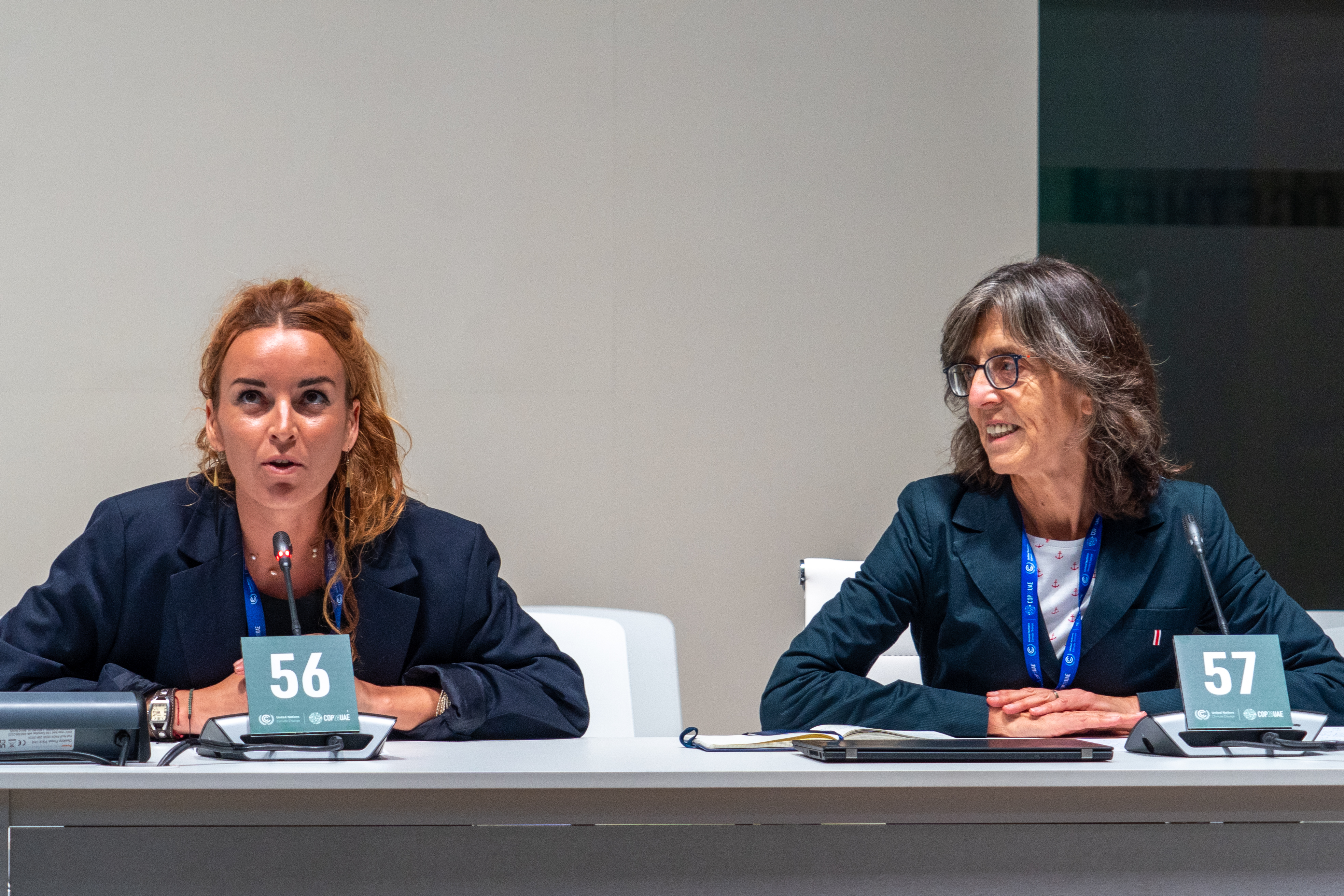 Juliette Jestin (PEEB/AFD), left, and Antje Wemhoener (Head of PEEB/GIZ), right, at COP28 Buildings Breakthrough roundtable. Photo by 10 Billion Solutions/Christophe ROUSSE
Juliette Jestin (PEEB/AFD), left, and Antje Wemhoener (Head of PEEB/GIZ), right, at COP28 Buildings Breakthrough roundtable. Photo by 10 Billion Solutions/Christophe ROUSSE
The Buildings Breakthrough rallied a large alliance of 27 countries, including major players like the United States, China, Germany, and the United Kingdom, pledged their commitment to this initiative. This diverse coalition, representing about 34% of the global population and 51% of global greenhouse gas emissions, underscored the global consensus and urgency of addressing climate impats within the buildings and construction sector.
The Buildings Breakthrough is part of the broader Breakthrough Agenda, providing a structured framework for yearly enhanced actions across high-emission sectors. In anticipation of maintaining momentum, the first-ever Buildings and Climate Global Forum is scheduled for 7-8 March 2024 in Paris, France. This forum will serve as a critical gathering point for construction ministers and stakeholders across the building sector value chain, including local authorities, NGOs, and businesses. PEEB will take part in this major event that is expected to further catalyse the transformation initiated at COP28.
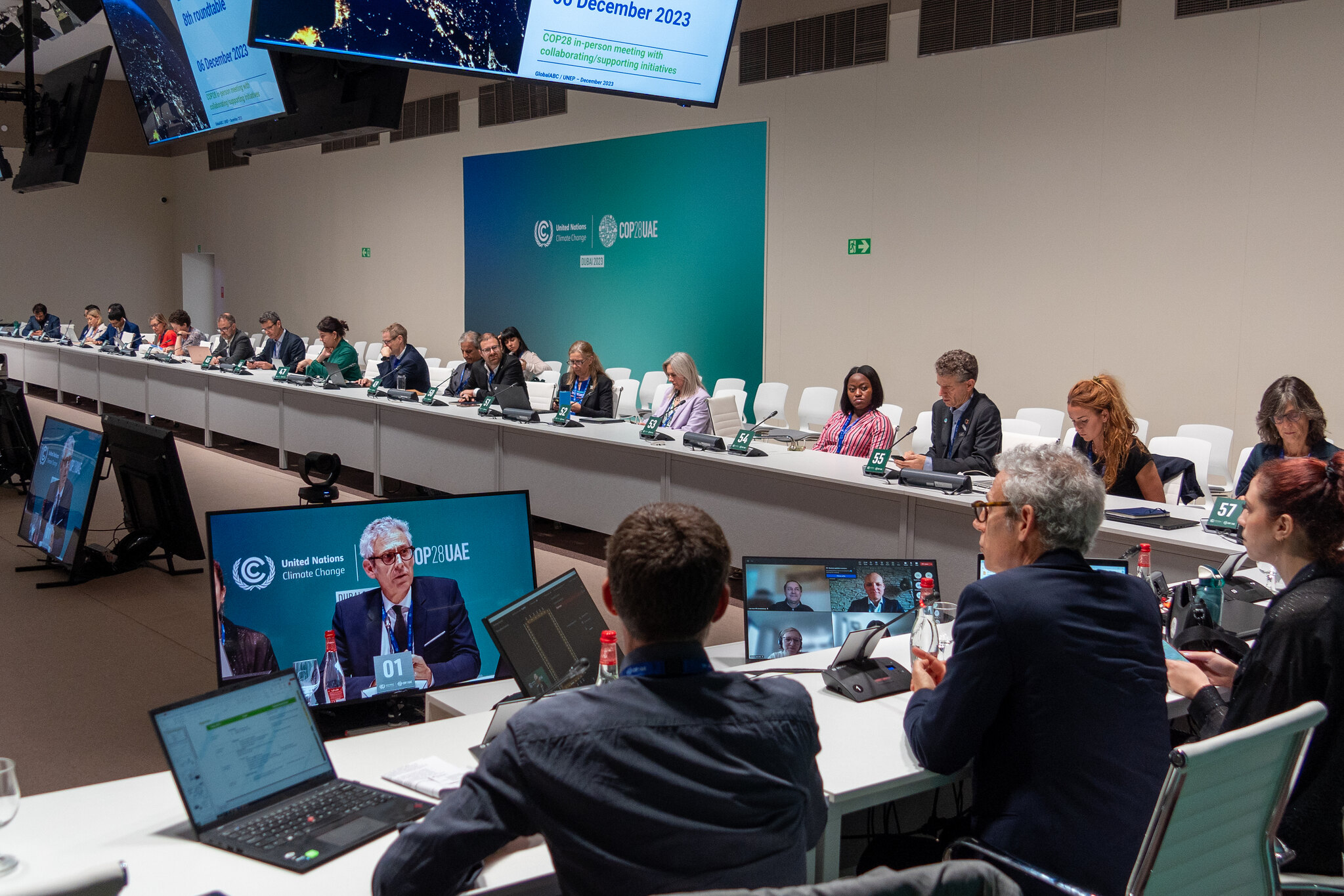 Buildings Breakthrough roundtable at COP28 in December 2023 chaired by Yves-Laurent Sapoval (French Ministry of the Ecological Transition). Photo by 10 Billion Solutions/ROUSSE.
Buildings Breakthrough roundtable at COP28 in December 2023 chaired by Yves-Laurent Sapoval (French Ministry of the Ecological Transition). Photo by 10 Billion Solutions/ROUSSE.
Catalysing Action for Greener Constructions in the Mediterranean region through PEEB Med
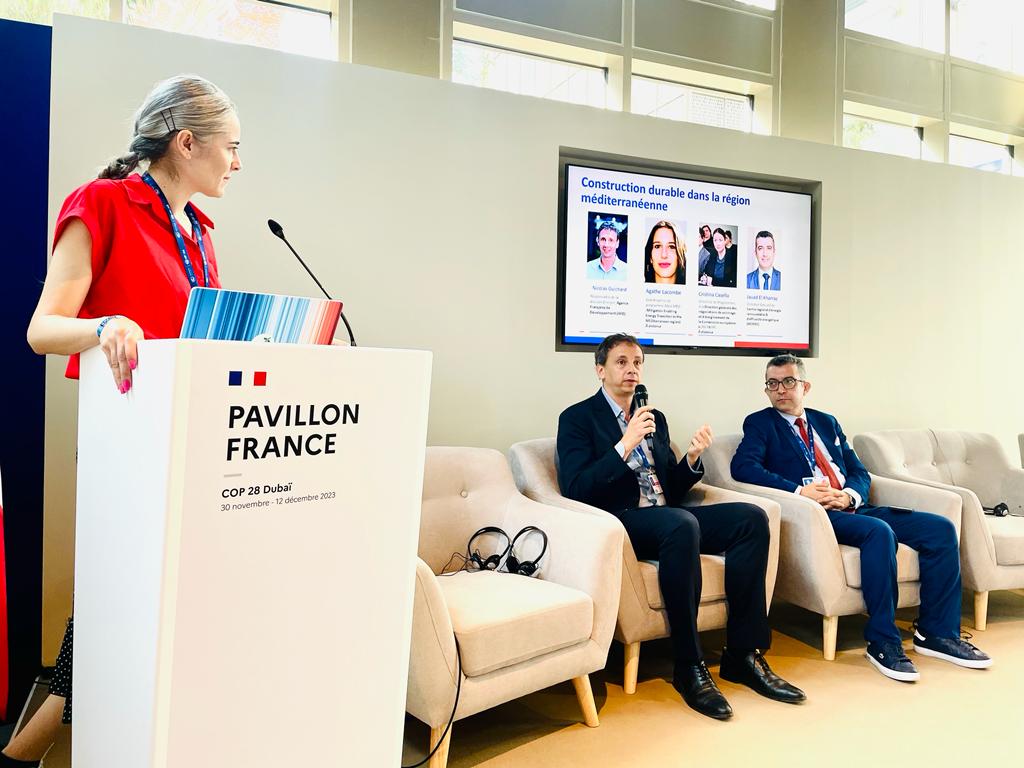 Mariana Castaño Cano (left), Nicolas Guichard, Head of AFD’s Energy Unit (center) and Jauad El Kharraz, Director of RCREEE. Photo by Juliette Justin.
Mariana Castaño Cano (left), Nicolas Guichard, Head of AFD’s Energy Unit (center) and Jauad El Kharraz, Director of RCREEE. Photo by Juliette Justin.
PEEB hosted an event at the French Pavilion, fostering a climate-friendly and resilient future in the Mediterranean region. This session gathered stakeholders from various agencies to exchange lessons learned and strategies aimed at promoting sustainable buildings. Among key participants, Nicolas Guichard, AFD’s Energy Head of Unit shared insights into available tools and financing instruments emphasising project preparation and access to international finance in the Mediterranean region. The session also received valuable input of project co-implementers like meetMed, and donors such as the European Commission.
meetMed supported by the EU, has a primary objective of overcoming financial barriers and altering the perception of risk associated with sustainable projects. The projects supported by this MeetMed and showcased during the session not only exhibit scale and replicability but also have the potential to showcase the feasibility of energy efficiency measures. They aspire to instigate a transformative impact on the construction sector, advocating for more ambitious public procurement requirements and practical capacity building for building professionals.
Also with a focus on the Mediterranean region, last year the PEEB Med initiative was launched. This programme supports 7 Mediterranean countries in the transformation of the building and construction sector by promoting the design, construction and operation of energy-efficient and resilient buildings. Supported by the European Union and Agence Française de Développement, PEEB Med combines technical support and investment grants to cover the additional cost of energy efficiency measures. The aim is to encourage players to build and invest in highly energy-efficient buildings, by reducing costs and the perception of investment risk.
From Targets to Action: Harnessing NDCs
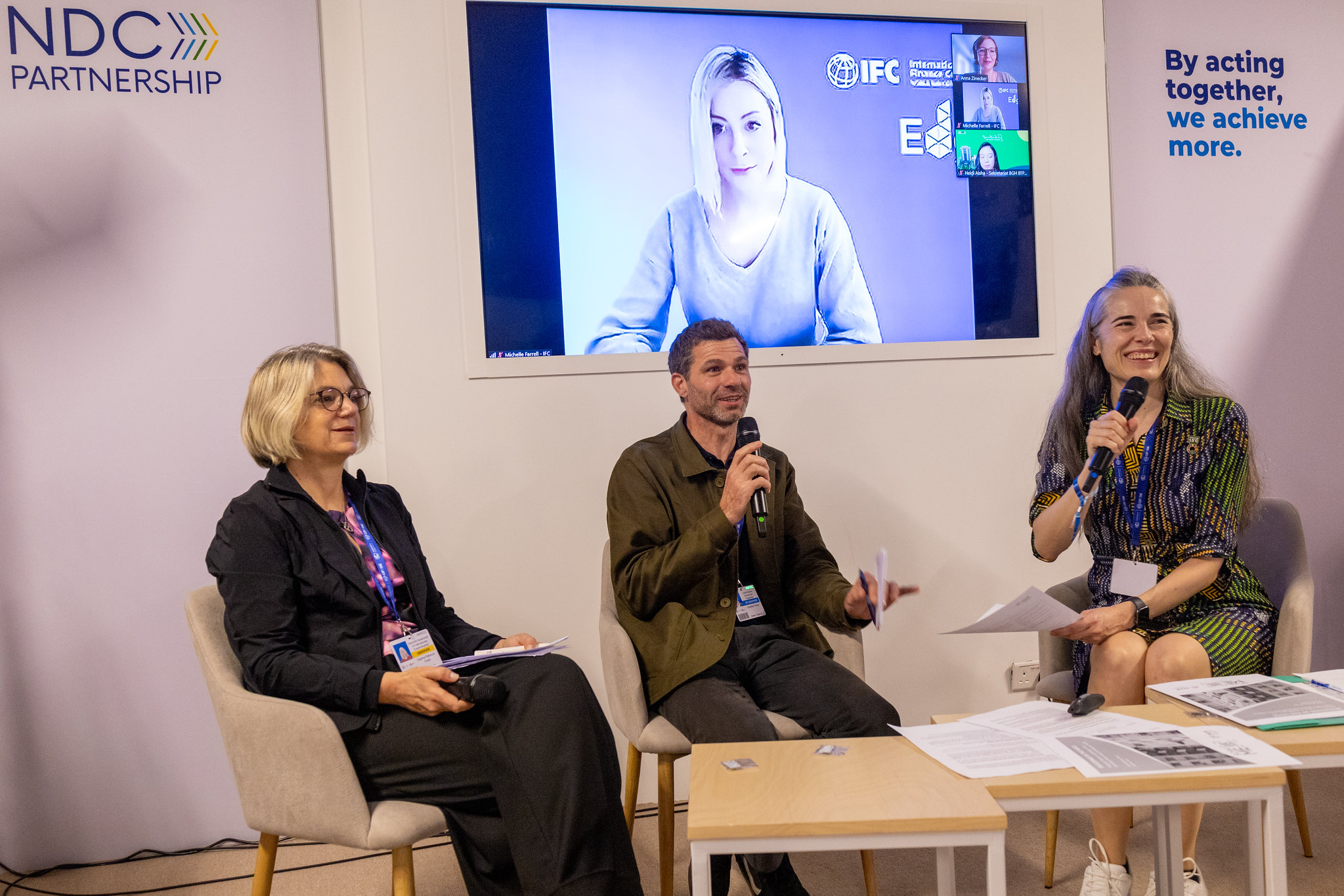 From left to right: Daphne Frank (GIZ) Jonathan Duwyn (GlobalABC), Mariana Castaño Cano (PEEB) and Michelle Farrell (IFC), on screen, at the NDP Partnership Pavilion event at COP28. Photo by 10 Billion Solutions/Rosa Castañeda
From left to right: Daphne Frank (GIZ) Jonathan Duwyn (GlobalABC), Mariana Castaño Cano (PEEB) and Michelle Farrell (IFC), on screen, at the NDP Partnership Pavilion event at COP28. Photo by 10 Billion Solutions/Rosa CastañedaThe discussion on making Nationally Determined Contributions (NDCs) more effective for climate action in the buildings sector was a focal point at a session on 10 December at the NDC Pavilion. With buildings and construction accounting for 37% of energy-related emissions, PEEB presented its study on NDCs, emphasising the gap between policy inclusion and practical implementation. While almost all countries – 168 out of 194 (87%) – have targets on buildings in their NDCs, these targets are often neither measurable nor finance-ready. This event brought together representatives from the GIZ, GlobalABC, PEEB, IFC and Indonesia to explore funding avenues for climate-friendly and resilient buildings.
http://www.peeb.build/news-events/summary-PEEB-COP28
The upcoming UN Climate Change Conference (COP28) in Dubai, will be a key moment for buildings and climate action. The conclusion of the first Global Stocktake will amplify the message from the UNFCCC's synthesis report: the international community is not on track to reach Paris Agreement goals.
PEEB and its partner organizations will be on the ground to highlight the crucial importance of the buildings sector for tackling the climate emergency and accelerating the energy transition. PEEB will join discussions to boost cooperation between countries and non-State actors to accelerate action on buildings.
Our new report on Buildings and the NDCs will be officially launched at the COP. It provides a broad and deep look on pledges for the sector, highlighting pathways to increase ambition. We will support the launch of the Buildings Breakthrough and a cement breakthrough that will call for increased cooperation and effective action to reap the climate and just transition benefits of acting on buildings.
Alongside our stakeholders in the buildings community, we look forward to raising the momentum for climate action on buildings even further, in preparation for the first Buildings and the Climate Global Forum, happening on 9-10 March 2024 in Paris.
The PEEB team on the ground in Dubai will share knowledge and experience, and will support its partners like the GlobalABC. For the third consecutive year, we will support the Buildings Pavilion and our team will participate in numerous events. Click the button for our full agenda and see when and where you can find us. You can also reach out at info@peeb.build. We are looking forward to it!
PEEB EVENTS AT COP28
Monday, 4 December, 10:30-12:00, RCREEE Pavilion
Cooperation is key to close the gap in finance for Energy Efficiency in the Mediterranean. Adequate financial tools are necessary to make energy efficient buildings attractive in the context of higher upfront costs and incipient business models. In this event, lessons learned from PEEB Med's experience in policy advice, projec preparation, and financial instruments for sustainable buildings in the mediterranean will offer a examples of successful cooperation. PEEB will be joined by MeetMED's account of succesful knowledge exchange in the resion, and local experts and authorities will contribute to the discussion.
Wednesday, 6 December, 09:30-11:00, French Pavilion (Zone B6 Building 84, Blue Zone) and online
Building a climate-friendly and resilient future for a sustainable construction in the Mediterranean region and West Africa: Mobilizing local construction value chain for decarbonization of buildings
Transforming the buildings and construction sector into a greener, more sustainable industry requires unwavering national commitments, substantial investments, and a robust foundation of capacity building. Moreover, it demands enhanced collaboration among all stakeholders. This event will gather stakeholders from different implementing and donor agencies to exchange lessons learnt in the implementation of sustainable buildings projects across the Mediterranean and West Africa. Different points in the value chain, such as sustainable materials and demolition and waste will be explored. PEEB will bring the project lifecycle perspective, sharing best practices on project preparation and access to international sources of finance. Representatives from PEEB’s implementing agencies AFD and GIZ, as well as from donors such as the EU, will be participate in PEEB’s section.
Wednesday, 6 December, 17:00-19:00, Meeting Room 36, Zone B2, Blue Zone, and online
Support available to developing countries for climate change reporting and first biannual transparency report
Monitoring, reporting, and verification are fundamental to achieving climate goals. Effective monitoring is a duty for UNFCCC member states under the Paris Agreement’s Enhanced Transparency Framework. Bur more than that, monitoring allows countries to better understand the sources of emissions over the buildings lifecycle. A value chain approach is needed to monitoring the buildings sector’s emissions, and in many countries, the sources and magnitude of emissions from this sector are still unknown. To fill this gap, PEEB developed a Compendium on Greenhouse Gas Baselines and Monitoring in partnership with UNFCCC. During this event, our team will share lessons learnt from the development of the compendium, as well as from on the ground cooperation experience.
Sunday, 10 December, 17:00-18:00, NDC Partnership Pavilion (Zone B7, Building 88, Blue Zone) and online
From Targets to Action – Harnessing the transformative power of NDCs for buildings
Buildings and construction caused 37% of energy-related emissions in 2021. Countries are starting to address the issue at scale: almost all NDCs (87%) have measures on buildings, according to a new study by PEEB. Nevertheless, transformative implementation action on buildings is slow. The amount of financing that flows to buildings that are climate-friendly and resilient is currently insufficient. To discuss these findings and find ways forward, we will gather policy experts and industry leaders. The focus will be on making NDCs more apt at promoting climate action in the buildings sector, exploring national and international sources of funding that can be directed towards climate-friendly and resilient buildings.
http://www.peeb.build/news-events/PEEB-COP28
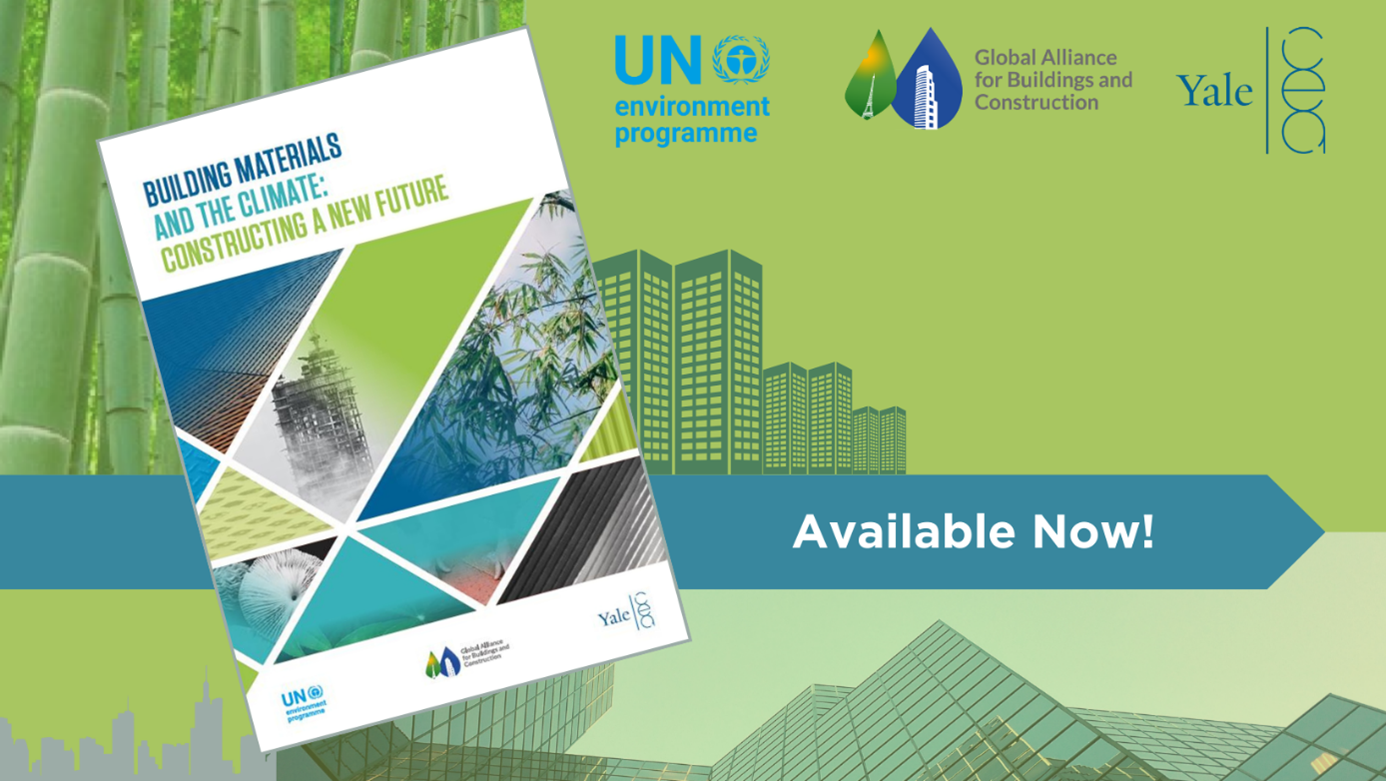
Tackling the “embodied carbon” emissions from the production and deployment of building materials is essential for the decarbonization of the buildings and construction sector. UNEP/Global Alliance for Buildings and Construction launched the flagship report “Building Materials and the Climate: Constructing a New Future” at the New York Climate Week. The report was financed by the German Federal Ministry for Economy and Climate, and supported by the Programme for Energy Efficiency in Buildings (PEEB) and the advisory programme “Powering Climate Protection” (PCP). This generates further momentum on the road to COP28 that will see the launch of a “Buildings Breakthrough”, and the Global Forum on Buildings and Construction in Paris in March 2024.
While climate action has paid attention to emissions from the operation of buildings, including heating, cooling, and energy use in buildings, policies to address embodied carbon emissions have been lagging. Developed by UNEP and the Yale Center for Ecosystems + Architecture, in the framework of the Global Alliance for Buildings and Construction (GlobalABC), the report emphasizes a “whole life-cycle approach” to reduce emissions in the sector. It recommends an Avoid-Shift-Improve strategy:
- Avoid waste through a circular approach, resource efficiency and renovation
- Shift to ethically and sustainably sourced renewable bio-based building materials
- Improve conventional materials that cannot be replaced
Anja Hajduk, State Secretary, German Federal Ministry for Economics and Climate Action and French Climate Ambassador Stéphane Crouzat gave welcoming remarks for the high-level dialogue alongside Ligia Noronha, UN Assistant Secretary-General and head of UNEP New York Office. The event was hosted by the Yale CEA and co-hosted by Design for Freedom by Grace Farms Foundation and The Architectural League of New York. Lead authors Anna Dyson (Yale CEA and Design for Freedom Working Group) and Dr. Mae-ling Lokko (Willow Technologies and Yale School of Architecture) the chance to present the report’s findings. The presentations were followed by a debate with other event speakers from governments, international and civil society organizations, and industry actors: H.E. Soipan Tuya, Minister of Environment and Forestry, Kenya; Abdoul Salam Bello, Executive Director of the Africa Group II, World Bank; Thomas Guillot, CEO, GCCA; Sharon Prince, CEO and Founder, Design for Freedom by Grace Farms.
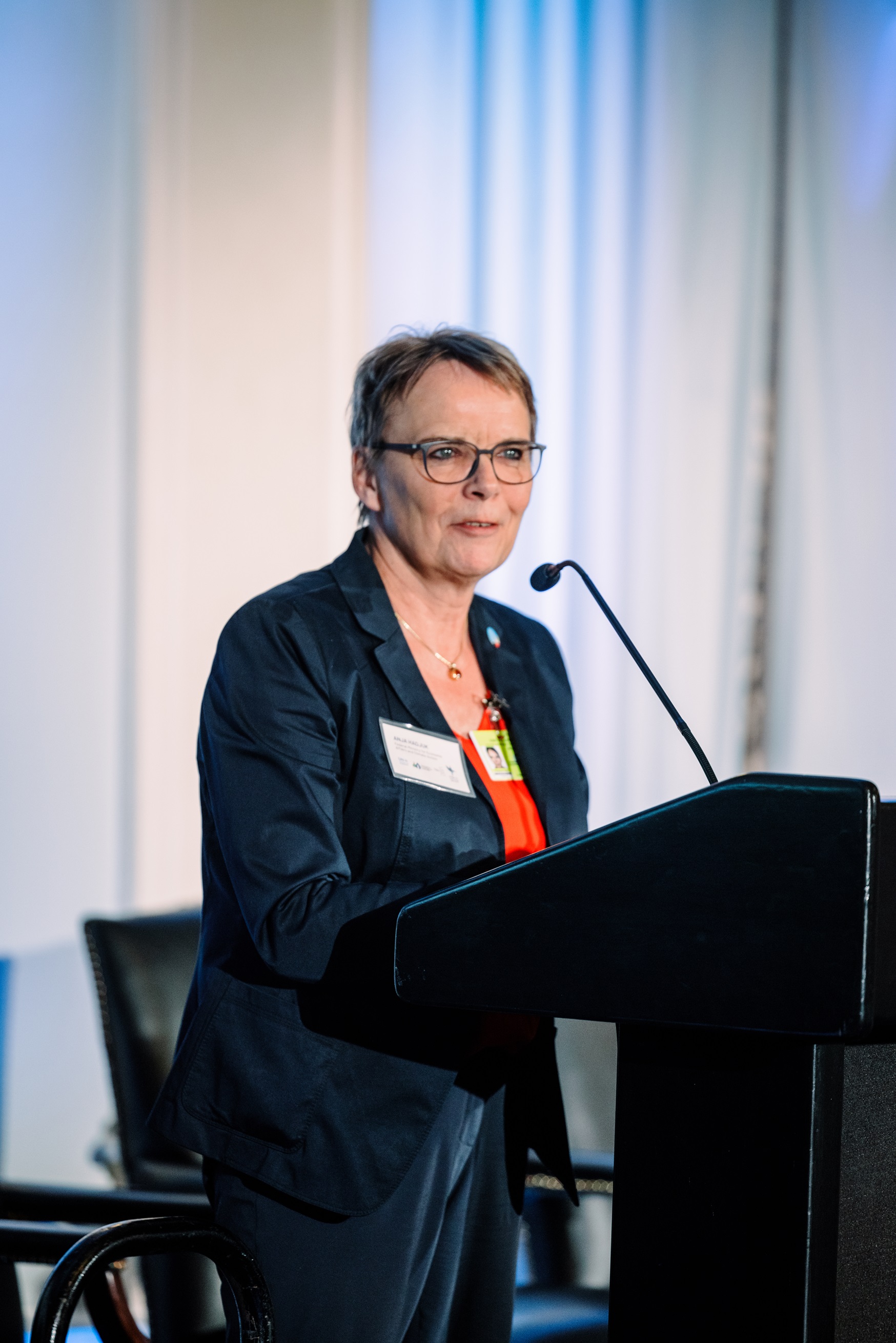
Anja Hajduk, State Secretary, German Federal Ministry for Economics and Climate Action, speaks at the launch of the Building Materials and the Climate report at the Yale Club, during the 2023 New York Climate Week. Credit: Jacek Dolata
The Programme for Energy Efficiency in Buildings aims to transform the building sector by promoting sustainable building design and construction. PEEB combines financing for energy efficiency in large-scale projects with technical assistance through policy advice. PEEB combines the expertise of its implementing agencies Agence Française de Développement (AFD), Deutsche Gesellschaft für Internationale Zusammenarbeit (GIZ), and Agence de la Transition Écologique (ADEME) and is catalysed by the Global Alliance for Buildings and Construction (GlobalABC).
The report can be downloaded here.
http://www.peeb.build/news-events/buildingmaterials-climate-new-report
Global tourism is responsible for around 8% of the world’s carbon emissions. From the travel to get there, to the transportation in the area, from the accommodation to the food we eat or the services and souvenirs we buy, tourism generates high levels of emissions.
Therefore the tourism sector has an important role to play in the fight against climate change. Within the tourism industry, hotels are the type of buildings that emit the most emissions in their construction and operation. As such, hotels must reduce their carbon footprint to guarantee sustainable development in Latin America and the Caribbean.
Energy-efficient buildings play a crucial role in saving energy, money and creating comfortable spaces. In addition, they have a positive environmental impact by emitting less greenhouse gases. Promoting sustainable buildings is essential to achieve the Paris Agreement and the Sustainable Development Goals.
The Program for Energy Efficiency in Buildings (PEEB) in collaboration with SEMARNAT and the Global Alliance for Buildings and Construction (Global ABC), organized a webinar on March 30, 2023, with various industry experts to present the Guide on energy efficiency in the design, construction and operation of hotels in hot climates, with the aim of sharing experiences with professionals in the sector, helping them to plan and implement energy efficiency measures in hotels throughout Latin America and the Caribbean.
The webinar dived on practical tips and specific solutions for energy efficiency in hotels, including lighting, air conditioning, hot water, refrigeration, and renewable energy production.
This guide has served to increase the profitability of the business units through the efficient and rational use of energy, said Arturo Lozano, representative of the Mexican hotel group Posadas. "The actions we have implemented in the hotels have helped us reduce energy use by 34%, which has meant saving 184 million pesos (1 M EUR) and we have reduced greenhouse gas emissions by 29%," he explained.
The production of the guide and a series of public-private collaboration initiatives have been central to PEEB’s work in Mexico, in line with the programme’s mission to help countries increase efficiency across their building sector.
“PEEB is transforming the sector through financing, policy framework and capacity building, with the vision of achieving a zero emission and resilient buildings sector”, explained Isabel Geppert, head of PEEB who also joined the webinar together with Arturo Lozano, Liliana Campos, from PEEB/GIZ Mexico, Daniel López, from SEMARNAT, Nora Steurer from the GlobalABC and María Lau, from PEEB/GIZ Mexico.
Hotel sector
The guide on energy efficiency in hotels is a practical tool to implement energy efficiency in the hotel sector. It shows the sector's market size, energy consumption, energy reduction potential, and greenhouse gas mitigation projections. Additionally, it shows some of the benefits that can be obtained by implementing the strategies from the guide.
Technologies
The guide shows different technologies and strategies that can be implemented in the sector. It provides advice to support lodging establishments to take measures to reduce their energy consumption and how to implement them.
Financing models
The guide shows implementation models for energy efficiency, including financing models, business models, and examples of energy-efficient hotels. It also shows the different certifications available in the Mexican market, which serve as a tool to demonstrate the commitment of lodging establishments.
Read this article in Spanish here and check the guide here. You can watch the webinar here and below (in Spanish).
By viewing the video, you agree that your data will be transmitted to YouTube and that you have read the privacy policy.
http://www.peeb.build/news-events/Efficient-hotel-buildings-help-save-energy-and-money

This article is available in Spanish here.
Energy-efficient buildings play a vital role in conserving energy, saving money, and creating comfortable spaces. Additionally, they have a positive environmental impact by emitting fewer greenhouse gas emissions. Advancing green buildings is of paramount importance for achieving the objectives of the Paris Agreement and the Sustainable Development Goals.
The tourism sector, in particular, has a significant role to play in combating climate change. Hotels, being the largest contributors to emissions within the tourism industry, need to reduce their carbon footprint to ensure sustainable growth in Latin America and the Caribbean.
The Programme for Energy Efficiency in Buildings (PEEB) has developed a technical guide focusing on energy efficiency in hotels, specifically targeting those in warm climates, based on the realities of Mexico.
On Thursday 30th March at 9 am (Mexico DC time; 5 pm Paris/Bonn time) a webinar in Spanish will present the guide offering practical advice and specific solutions for efficient energy use in areas such as lighting, air conditioning, hot water, refrigeration, and renewable energy production.
Organized by PEEB in collaboration with SEMARNAT and the Global Alliance for Buildings and Construction (GlobalABC), the webinar aims to share experiences with professionals, helping them plan and implement energy efficiency measures in hotels across Latin America and the Caribbean.
By implementing energy efficiency measures in the tourism sector, we can contribute to a more sustainable future for the hotel industry and work towards mitigating the impacts of climate change in the region.
SPEAKERS
- María Lau, PEEB/GIZ Mexico (moderator)
- Isabel Geppert, PEEB/GIZ
- Liliana Campos, PEEB/GIZ Mexico
- Adolfo Cimadevilla, SEMARNAT
- Arturo Lozano, Posadas
- Nora Steurer, GlobalABC
Don't miss this opportunity to learn from experts and engage in discussions on how to make hotels greener and more energy-efficient.
Register for the webinar here.
Send your questions to the panellists in advance to info@peeb.build before Wednesday 29 March at 4 pm CEST
http://www.peeb.build/news-events/Webinar-For-a-sustainable-tourism
At the VIETBUILD Hanoi exhibition, all stakeholders came together to discuss how to accelerate the uptake of sustainable building design – from manufacturers to construction consultants to investors to consumers. This happened at the conference of the Vietnam Association of Building Materials (VABM) in Hanoi on 16 March 2023, supported by PEEB.
A consensus among the 140 participants was that better public–private collaboration was key for delivering energy-efficient solutions. While national energy consumption in Vietnam is growing rapidly, the market penetration of energy-efficient buildings is relatively low. Preceding the conference, the Government announced its plans to build at least one million energy-efficient homes for low-income and industrial park workers by 2030.

The conference not only raised awareness of locally available building materials and low-carbon building design. It also helped break silos by bringing together representatives from universities, research institutions, real estate associations, civil engineering firms, construction companies, roofing associations, and the Ministry of Construction. Their common objective: creating homes that help reduce emissions, while making life more affordable for residents.
The VABM conference set a precedent for future partnerships, emphasising the importance of cooperation in tackling complex issues related to energy and buildings in Vietnam.
http://www.peeb.build/news-events/conference-accelerates-affordable-sustainable-construction
The recent UN Climate Change Conference (COP27), in Egypt, marked a turning point for the Programme for Energy Efficiency in Buildings (PEEB) which will expand its operations this year to support countries in decarbonising and increasing the resilience of their built environment. PEEB will scale up its global operations through PEEB Med and PEEB Cool, two new initiatives that have received international funding.
With half of its 100 million inhabitants living in informal constructions and families spending a significant share of their income on air conditioning, Egypt is a good example of the urgent need and great opportunity of boosting adequate, green and affordable buildings to improve people’s lives.
Last November, the Egyptian city of Sharm El Sheikh hosted COP27, the UN Climate Change Conference that set a milestone in the international efforts to make buildings a central part of action on climate and sustainable development. The launch by France and Morocco of a call for achieving a Buildings Breakthrough this year is an example of that momentum.
As the recent GlobalABC’s Global Status Report showed, we are off track for the decarbonization of the built environment by 2050. While the just-released Global Alliance for Buildings and Construction annual report clearly shows how much progress is still required to reduce the energy intensity in buildings, there is a strong reason for optimism in that buildings remain the second most mentioned policy in the nationally determined contributions (NDCs).
Much of the 40% energy-related climate footprint of buildings and construction could be saved by designing and constructing better and retrofitting existing buildings to make them much more energy-efficient. To support countries facing this challenge, the Programme for Energy Efficiency in Buildings (PEEB) is scaling up its global operations though new initiatives and funding.
PEEB Med launch
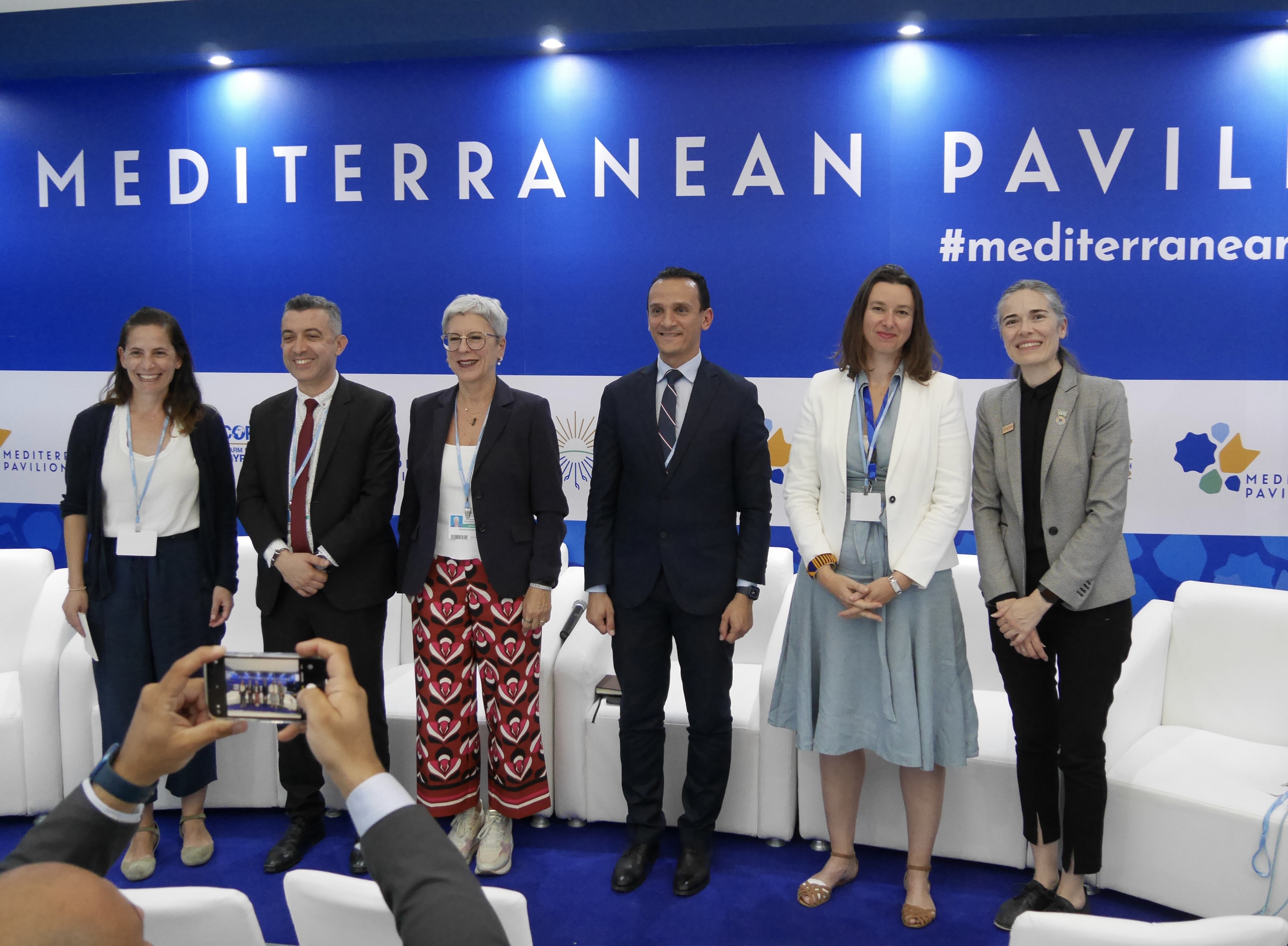
From left to right: Victoria Jimenez, Jauad El Kharraz, Roberta Boniotti, Abd Elkhalek, Mathilde Bord-Laurans and Mariana Castaño Cano.
On 7 November, PEEB Med was presented at the Mediterranean Pavilion by the Union for the Mediterranean, MeetMED and PEEB. With a budget of 460 million EUR, the initiative will start implementation in 2023 in seven Mediterranean countries -Algeria, Egypt, Jordan, Lebanon, Morocco, the Palestinian Territories and Tunisia- benefiting 14 million people and helping to avoid 1 million tonnes of CO2 equivalent over a 50 years period.
PEEB Cool launch
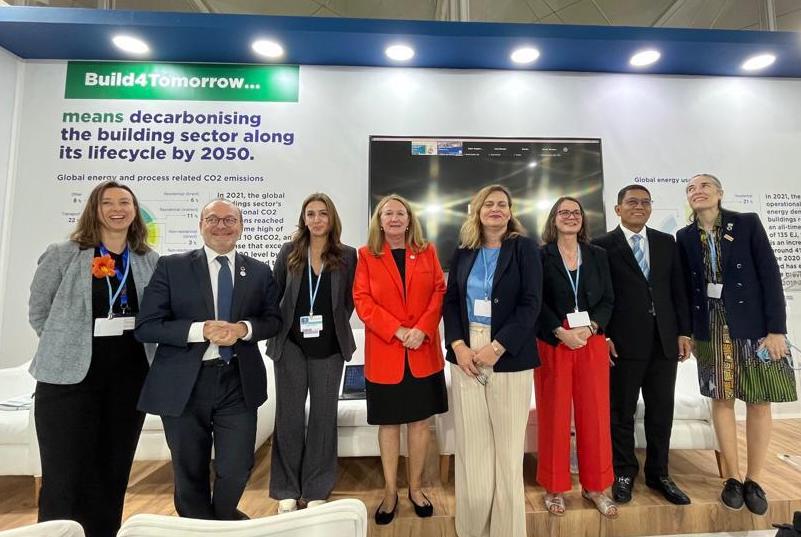
From left to right, Mathilde Bord-Laurens, Rémy Rioux, Sarah El Battouty, Ingrid Hoven, Teodora Obradovic Grncarovska, Vera Rodenhoff, Dadan Kusdiana and Mariana Castaño Cano.
On 9 November, a high-level event at COP27 Buildings Pavilion marked PEEB’s ambitious scale up to start in 2023 after the Green Climate Fund (GCF) recent approval of 220 million EUR funding to boost green buildings through the new initiative PEEB Cool in 11 countries: Albania, Argentina, Costa Rica, Djibouti, Indonesia, Mexico, Morocco, Nigeria, North Macedonia, Tunisia, and Sri Lanka.
PEEB Cool will be jointly implemented by the Deutsche Gesellschaft für Internationale Zusammenarbeit (GIZ) and the Agence Française de Dévelopment (AFD) that will disburse 1.1 billion EUR in loans and 4 million EUR as project assistance grants, while the German Federal Ministry for Economic Affairs and Climate Action (BMWK) will contribute 2.5 million EUR as grants for policy support and international awareness.
Sarah El Battouty.
Opening the event, Sarah El Battouty, Global Ambassador by the UNFCCC High-Level Champions and Founder of ECONSULT, gave an overview of the situation in Egypt, starting by throwing a simple question to the audience: “Why are there so few green buildings?”.
In her view, until we make green and smart buildings comfortable and beautiful, until we make them also affordable for the average person; until then, green constructions will not take off at scale.
In developing economies like Egypt, we see few green buildings because “green buildings are at the high end” and they are only accessible through very large budgets. (...) We must change this reality and make green buildings the new normal”, she added.
A social priority
Rémy Rioux.
Rémy Rioux, AFD Director General, reiterated the agency’s full support to PEEB Cool and underlined the importance of greening the buildings sector. “At the COP we talk a lot about energy and agriculture, but we must also talk about buildings” because “building resilient and efficient buildings is a major climate issue and a massive social priority, and it is also a major source of job creation, with 220 million jobs already in the sector; and it’s a major health issue as we must reduce the death toll due to heatwaves in the world.”
Ingrid-Gabriela Hoven.
Ingrid-Gabriela Hoven, Member of GIZ Management Board explained that “with the support the governments of France and Germany, we are piloting approaches on how to bring together financial solutions that are fit for purpose at the local level, with the type of technical cooperation that is needed in order to build the capacity and the regulatory frameworks to bring PEEB to scale”.
Ms. Hoven highlighted the importance of building partnerships between the public sector, financial institutions and the private sector, to have a scalable initiative benefiting many countries.
Looking into the future, Ms. Hoven emphasized the crucial importance of pricing carbon emissions from buildings. “Through the work that we have done on data collection, measurement, capacity building, we are in the position to put a price on the carbon saved by efficient buildings,” she said. “This is extremely important because only if we put a price tag and we can actually calculate what does it means to really transform the whole building sector, only then will we be in a position to mobilize more funding”.
Advancing legislation and governance
Indonesia is one of the countries that will benefit from PEEB Cool. Dr Ir. Dadan Kusdiana, Director General, Directorate General of Renewable Energy and Energy Conservation, Ministry of Energy and Mineral Resources, stressed the importance of international cooperation for climate action and shared how Indonesia is introducing new climate friendly regulations for the building sector in a country which is home to over 270 million people and that is highly exposed to climate impacts.
Dr. Dadan Kusdiana.
Indonesia has a target of reducing energy-intensity use by 1% per year overall which is a challenging target for a developing economy. In the buildings sector the country already has laws on energy efficiency and building codes towards this end, he explained. Indonesia also has buildings standards for a more efficient use of lighting, electrical appliances and air conditioning and there is a plan to encourage the installation of electrical cooking stoves to replace more energy intensive cooking stoves.
North Macedonia is another country that will participate in PEEB Cool. Dr. Teodora Obradovic Grncarovska, State Counsellor on Climate Change, at the Ministry of Environment and Physical planning, underlined the important role of this new cooperation initiative and explained that her country is in particular facing challenges in transposing European legislation into national law and in meeting every new international commitment, that, on the other hand she said, will bring new opportunities for greening the country’s built environment while generating social co-benefits.
Dr. Teodora Obradovic.
“These policies and actions in energy efficiency (in buildings) are a triple win, in the sense that they are not just reducing GHG emissions, they also have negative costs and they generate green jobs”. Green buildings, she said, should be included in the overall sustainable development investment strategies in North Macedonia and in every country. Ms. Obradovic underscored the importance of favouring appropriate governance and coordination structures in the countries in order to coordinate all international and bilateral support in the buildings sector.
The upscale of PEEB arrives at a critical moment when the energy crisis is making shockwaves through the world proving that energy-efficient and resilient buildings are essential to prevent or alleviate this and upcoming international shocks.
Vera Rodenhoff.
Vera Rodenhoff, Head of International Cooperation and Implementation Initiatives, at the German Federal Ministry for Economic Affairs and Climate Action (BMWK), referenced to the intersection between the energy crisis and the multiple crises currently ongoing -climate, health and access to adequate housing. Ms. Rodenhoff highlighted that energy efficiency in buildings will help our countries become energy independent, thereby improving our energy security.
She also said that PEEB’s upscale is a good example of the importance of international cooperation to achieve climate and energy security as well as social wellbeing. “We are very proud to have kick started this project together with France and I really acknowledge all the work that France put into that, also in Paris (at COP21) where the Global Alliance for Building and Construction was launched. (…) Collaboration works, innovation works and scaling works!”, she concluded while closing the event.
Learn more about PEEB Cool here.
Photos by: 10 Billion Solutions
http://www.peeb.build/news-events/COP27-marked-PEEBs-expansion
With buildings and construction making up 37% of energy-related CO2 emissions globally, the Programme for Energy Efficiency in Buildings (PEEB) and the UN Climate Change secretariat will host an event at COP27 to show the sector’s critical role in enhancing climate action and reporting under the Paris Agreement.
The event will take place at the PCCB Hub at the UNFCCC Pavilion and will be streamed live
In the face of the climate emergency, the building and construction sector needs to assume a vital role in leading the shift to low-emissions and climate-resilient development. So far, this sector is lagging. There is an urgent need to measure and report existing emissions and the actions implemented or planned to reduce them.
The recently published UNFCCC Buildings Monitoring Compendium supports developing countries in enhancing their knowledge on sectoral GHG emissions, emissions reduction target-setting and the design of mitigation and adaptation policies and measures. It supports countries to implement the Paris Agreement’s enhanced transparency framework (ETF) and contribute to the global stocktake process.
The UNFCCC secretariat and PEEB will discuss with experts and country representatives about their experiences in designing and supporting climate action in the building and construction sector.
UNFCCC COP27 events calendar link: Getting the Buildings Sector to Net Zero: Brick by Brick | UNFCCC
The event can be followed live here: Getting the Buildings Sector to Net Zero: Brick by Brick | UNFCCC
Agenda
Experts:
- Mariana Castaño Cano, PEEB (Moderator)
- Buildings & climate change: Anna Zinecker, PEEB/GIZ
- ETF and Global Stocktake in the context of NDCs and the SDGs: Marlan Pillay, UNFCCC
- Monitoring emissions from buildings for climate impact and mobilizing finance: Stefan Wehner, The Greenwerk
- Tunisia: Amira Gader, Chief Architect, Ministry of Health, Tunisia
- France: Yves-Laurent Sapoval, Ministry of Environment, France
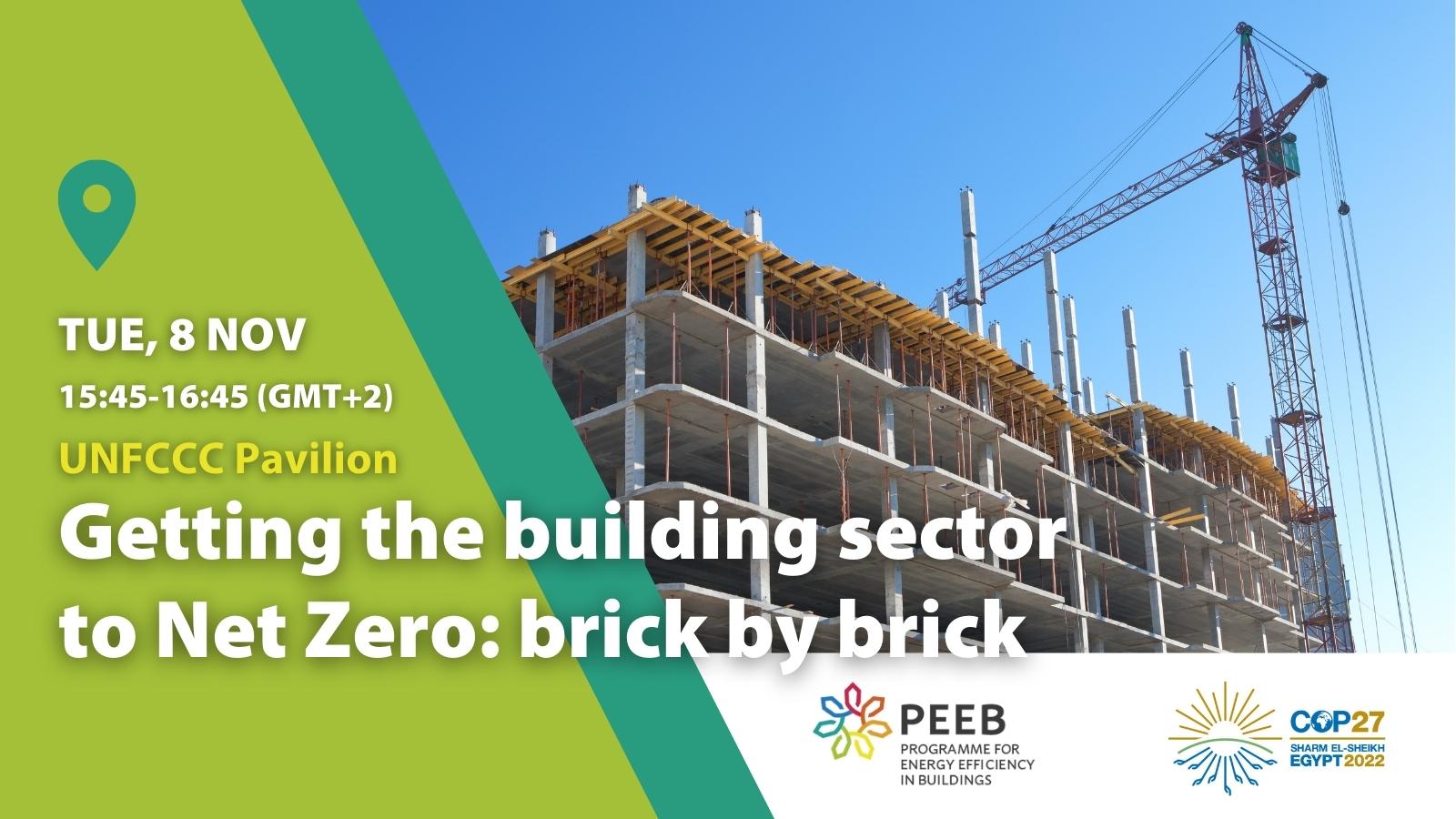
http://www.peeb.build/news-events/getting-the-buildings-sector-to-net-zero
COP27 in Sharm El-Sheikh marked the begining of a new, scaled up phase for the Programme for Eneregy Efficiency in Buildings (PEEB). On Wednesday, 9 November from 18:00 to 19:00 (CET +2), a high-level event at the Buildings Pavilion took place to annouce this new phase of the programe that first saw the light in 2016 at COP22, in Marrakech.
The event recording can be found here: Boosting green buildings to tackle the energy and climate crises on Vimeo
The energy crisis has sent shockwaves through the world. Energy-efficient and climate-resilient buildings are essential to prevent or alleviate this and upcoming crises. Promoting green buildings at scale can strengthen local economies, create jobs, provide resilient shelter, improve energy security, and lower living costs for households. Yet, greening the buildings and construction sector requires bold national commitments, massive investments, and sufficient capacity building, as well as stronger cooperation among all actors.
This high-level event at COP27 discussed how we can rapidly scale up international cooperation for global action towards green buildings. High-level representatives from partner countries, development banks and agencies deliberated on needs and opportunities to respond to the multiple energy, housing and climate crisis. Germany and France announced new partnerships with the Green Climate Fund and the European Commission and unveiled immediate plans to support countries and scale up action for green buildings through their joint Programme for Energy Efficiency in Buildings (PEEB). This will mobilise finance for green buildings in some of the fastest growing and most climate-vulnerable regions of the world.
The high-level event was followed by PEEB Reception at the Buildings Pavilion, presenting an informal opportunity to network with experts, country representatives and PEEB memebers, and everyone interested in boosting green buildings, to find joint solutions and new ways of collaboration.
Agenda
Welcome: Mariana Castano Cano, Moderator (PEEB)
Expert keynote on buildings and the climate: Sarah El Battouty, Global Ambassador UNFCCC High-Level Champions and Founder of ECONSULT
High-level dialogue on national ambitions and international cooperation for buildings and the climate: Rémy Rioux, Director General, AFD, France | Ingrid-Gabriela Hoven, Member of the Management Board, GIZ, Germany | Dr Ir. Dadan Kusdiana, Director General, Directorate General of Renewable Energy and Energy Conservation, Ministry of Energy and Mineral Resources, Republic of Indonesia | Teodora Obradovic Grncarovska, PhD, State Counsellor on Climate Change, Ministry of Environment and Physical planning, Republic of North Macedonia
PEEB Partnership Upscaling: Vera Rodenhoff, Head of International Cooperation and Implementation Initiatives, The Federal Ministry for Economic Affairs and Climate Action (BMWK), Germany
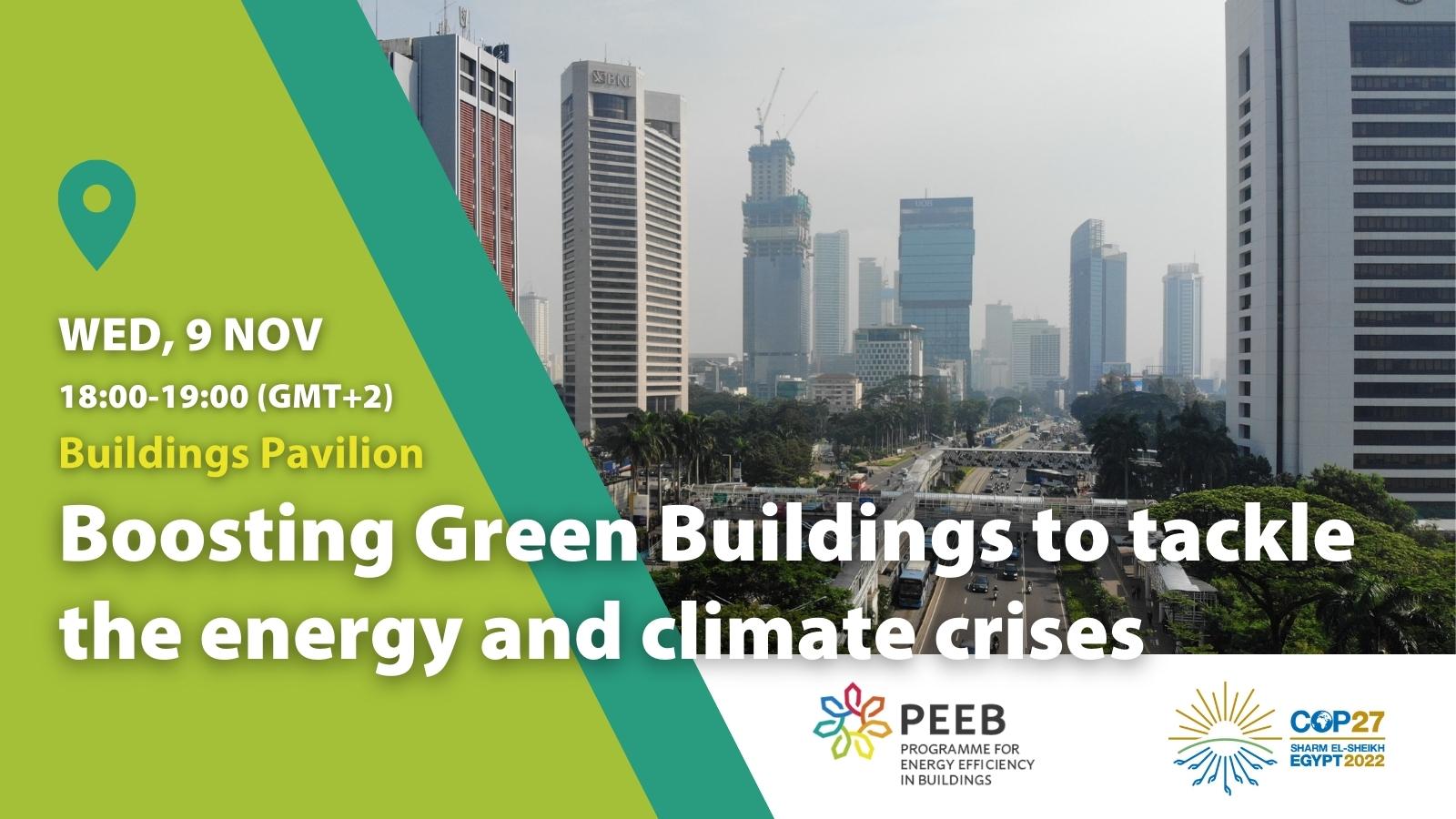
http://www.peeb.build/news-events/boosting-green-buildings-to-tackle-the-energy-and-climate-crises
Economic, energy and climate crises are surging across the world. According to UNEP, decarbonisation and climate adaptation must accelerate as the 1.5 degrees trajectory set in the Paris Agreement is moving out of reach. Buildings and construction remain among the most prominent sectors with the largest climate impact. Energy-efficient and climate-resilient buildings are essential to speed up climate action. Also, green buildings at scale can strengthen local economies, create jobs, provide resilient shelter, improve energy security, and lower living costs for households. Besides ambitious national policies, massive investments are necessary to transform the booming construction sector, weighing over USD 6 trillion globally this year.
In 2020, International Development Finance Club (IDFC) reported 16 billion dollars in investments towards energy efficiency in new buildings and industrial facilities. IDFC is committed to scaling up climate finance in line with the Paris Agreement agenda. Member banks across regions are increasingly financing green building and urban resilience projects, providing green bonds and concessional loans for construction projects and set ting financing criteria based on energy performance. Besides financial incentives, banks can also develop innovative public private partnerships such as revolving funds, energy service companies and other performance contracting schemes. COP27 is an opportunity to renew commitments, share knowledge among partners and set new impulses to scale-up financing solutions for green buildings.
The Programme for Energy Efficiency in Buildings (PEEB), jointly implemented by Agence française de développement (AFD) and Deutsche Gesellschaft für Internationale Zusammenarbeit (GIZ), will be present at COP27 to highlight the need for international cooperation and climate finance in the buildings and construction sector. New partnerships with the Green Climate Fund and the European Union will allow PEEB to boost climate action through grants and concessional loans in 16 partner countries in some of the world’s fastest growing and most climate-vulnerable regions. For this occasion, PEEB kindly invites you to attend its high-level event followed by a reception on November 9th starting at 6pm at the Buildings Pavilion. The side-event will welcome Rémy Rioux, Director General of AFD, in discussion with Ingrid-Gabriela Hoven, Member of the Administrative Board of GIZ, and partner country representatives.
The focal point for green buildings and construction at COP27 will be the Buildings Pavilion (lot. N°113) hosted by the Global Alliance for Buildings and construction. The Pavilion will showcase solutions through over 50 events and provide a space for policymakers, financial institutions, and businesses to meet. To connect with the buildings and construction community beyond the IDFC Pavilion, we invite you to look at this selection of side events addressing climate finance for buildings at COP27.
Towards Energy Efficient Buildings in the Mediterranean Region
Time and location: 7 November, 17:30-18:30, Mediterranean Pavilion, Blue Zone
Organisers: UfM, PEEB, MeetMED II
Experts from national agencies, the European Commission and AFD will showcase their collective action towards energy-efficient and climate resilient buildings in the Southern Mediterranean region and the need for additional financing support. AFD will launch its regional programme PEEB Med in partnership with European Commission.
Unlocking investments for resilient buildings using IFC’s Building Resilience Index
Time and location: 9 November, 09:00-10:00, Buildings Pavilion, Blue Zone
Organisers: IFC-World Bank Group, ARISE Network
IFC is presenting its new web-based Buildings Resilience Index tool designed to assess local hazards, identify risk mitigations measures and improve transparency for investing in resilient buildings. The event will highlight the role of financial institutions in accelerating the transition to both resilient buildings and showcase how Buildings Resilience Index can support them.
Financing a net-zero built environment
Time and location: 9 November, 15:00-17:45, Buildings Pavilion (Auditorium), Blue Zone
Organisers: BuildingToCOP Coalition (led by IGCC and WBCSD), C40 Network, UNEP-FI, PEEB, IFC
To achieve commitments set at COP26 by the Glasgow Financial Alliance for Net Zero (GFANZ), financial institutions must address decarbonisation across their asset portfolios. This session will highlight the importance of data collection and adequate property valuation, and showcase best practices from actors across the finance sector.
High-level Event – Boosting Green Buildings to Tackle the Energy and Climate Crises
Time and location: 9 November, 18:00-19:30, Buildings Pavilion (Auditorium), Blue Zone
Organisers: PEEB (led by AFD and GIZ)
Promoting green buildings at scale can strengthen local economies, create jobs, provide resilient shelter, improve energy security and lower living costs for households. Germany and France will announce new partnerships with the Green Climate Fund and the European Commission and unveil immediate plans to support countries and scale up action for green buildings through their joint Programme for Energy Efficiency in Buildings (PEEB).
Future proofing the built environment: Unlocking finance for inclusive & resilient housing
Time and location: 10 November, 15:00-16:30, UNFCCC Side Event, Tutenkhamun, Blue Zone
Organisers: WGBC, Habitat for Humanity
Providing adequate housing is a growing challenge for countries facing the surging impacts of climate change and rapid urbanisation. This session will showcase how building codes, empowered participation, collaboration, and climate finance can boost the delivery of resilient, healthy, equitable and efficient buildings.
Building for a billion: the Resilient Housing Implementation Lab
Time and location: 10 November, 17:00-18:30, Buildings Pavilion, Blue Zone
Organisers: Build Change
Under the Glasgow Breakthrough Agenda, High-level Champions have identified a key Breakthrough: ensuring better design, construction and access to finance to provide 1 billion people with decent, safe, affordable and climate-resilient homes. The event will notably showcase effective policies to channel investments towards resilient housing and discuss how to reframe this global development need as a key investment opportunity.
Net Zero Carbon Buildings in Cities: Getting the policy right
Time and location: 17 November, 12:00-13:00, Buildings Pavilion, Blue Zone
Organisers: Cities Climate Finance Leadership Alliance (CCFLA), German Federal Ministry for Economic Cooperation and Development
This event will highlight the importance of financing net zero carbon buildings at the city level. It convene high-level experts and city stakeholders to discuss city-level policies and financing modalities that can facilitate public and private investment in low-carbon buildings. CCFLA will showcase its city guide for zero carbon building instruments and reflect on the main barriers to investment and financial and non-financial/policy solutions.
http://www.peeb.build/news-events/boosting-climate-finance-for-buildings-at-cop27
Energy-efficient and climate-resilient buildings are more important than ever to prevent or alleviate ongoing energy, economic and climate crises. Promoting green buildings at scale can strengthen local economies, create jobs, provide resilient shelter, improve energy security and lower living costs for households.
In December 2021, the Directorate-General for Neighbourhood and Enlargement Negotiations (DG NEAR) of the European Commission has approved 30 million EUR funding to scale-up the Programme for Energy Efficiency in Buildings PEEB’s investment facility in the Mediterranean region. As a result, PEEB Med will be launched at COP27 and start implementation in January 2023 with a total budget of 460 million Euros.
Seven countries will participate in PEEB Med: Algeria, Egypt, Jordan, Lebanon, Morocco, the Palestinian Territories and Tunisia. The programme will directly benefit to 14 million people and help avoid 1 million tonnes of CO2 equivalent over a 50 years period.
PEEB Med will combine technical project assistance integrating energy and climate targets in line with the respective Nationally Determine Contributions. The programme will support countries during inception, design and construction of large public and private renovation and construction projects in the region.
In addition, the programme will provide investment grants to cover the extra cost of energy efficiency measures. The objective is to lower the financial barrier and the perception of risk of investing in energy-efficient buildings.
Through their scale or their replicability, supported projects will demonstrate the viability of energy efficiency measures and induce transformation in the construction sector through more ambitious public procurement requirements and hands-on capacity building for buildings sector professionals.
On Monday, 7 November 2022, PEEB Med will be officially launched at COP27 in Sharm El Sheikh at a special event at the first-ever Mediterranean Pavilion hosted by the Union for the Mediterranean. Click here for live stream to the event.
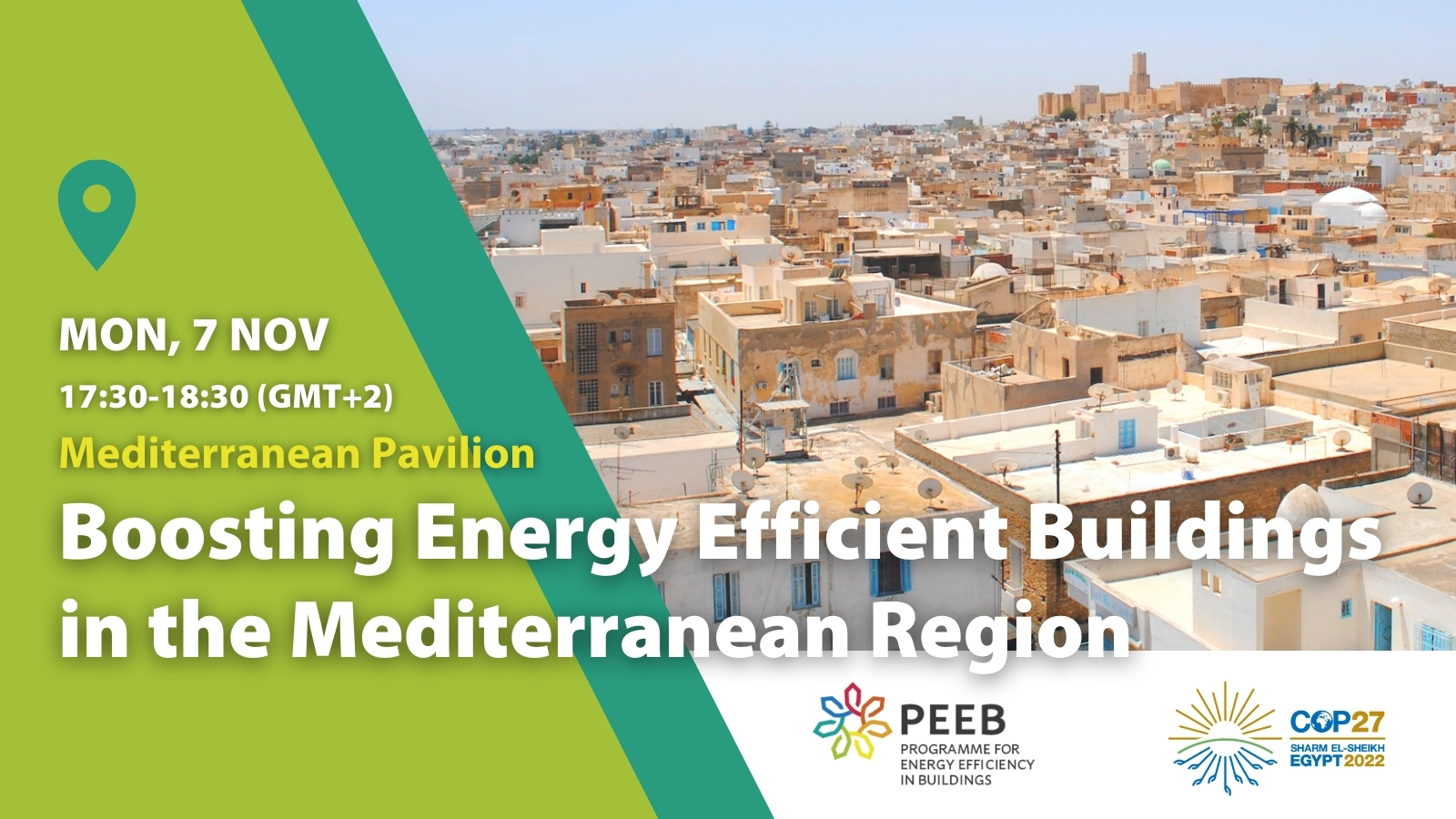
AFD will deploy PEEB Med in close coordination with the Mitigation Enabling Energy Transition in the Mediterranean region project (MeetMED II) to disseminate knowledge and unlock synergies between policy support actions and energy efficiency financing.
PEEB Med was announced earlier this year by Isabel Geppert, Head of the PEEB secretariat, at the World Urban Forum 11 in Katowice, Poland.
By viewing the video, you agree that your data will be transmitted to YouTube and that you have read the privacy policy.
http://www.peeb.build/news-events/peeb-med-to-be-launched-at-cop27
Albania, Argentina, Costa Rica, Djibouti, Indonesia, Mexico, Morocco, Nigeria, North Macedonia, Tunisia and Sri Lanka will benefit from PEEB Cool, a dedicated Programme for Energy Efficiency in Buildings supported by the Green Climate Fund.
18 October 2022. The Green Climate Fund (GCF) board has just approved 220 million EUR funding to boost green buildings. The fresh funding will allow a scale up of the Programme for Energy Efficiency in Buildings (PEEB) under the name PEEB Cool. It will be jointly implemented by Agence Française de Développement (AFD) and Deutsche Gesellschaft für Internationale Zusammenarbeit (GIZ) with a total budget of over 1.3 billion EUR.
In total, 11 countries in Africa, Asia, Eastern Europe and Latin America will benefit from PEEB Cool, whose mission is to transform the buildings and construction sector by advancing resilient and energy-efficient building design, construction and operation. Today, buildings and construction account for almost 40 per cent of energy-related greenhouse gas emissions, and the percentage would increase if it remains unaddressed as energy demand for space cooling is expected to triple by 2050.
Along with the contribution from the GCF, the Agence Française de Dévelopment (AFD) will disburse 1.1 billion EUR in loans and 4 million EUR as project assistance grants, while the German Federal Ministry for Economic Affairs and Climate Action (BMWK) will contribute 2.5 million EUR as grants for policy support and international awareness.
Albania, Argentina, Costa Rica, Djibouti, Indonesia, Mexico, Morocco, Nigeria, North Macedonia, Tunisia, and Sri Lanka will participate. Over 1.13 million people will see their living conditions improved from buildings that are energy-efficient and adapted to the effects of rising temperatures.
PEEB Cool will primarily support the development of new constructions, but it will also address the refurbishment of existing buildings. It is planned that 35,000 refurbished and new buildings will benefit from the programme’s direct support to become more resilient and efficient. Around 1.563 million tons CO2 equivalent will be reduced or avoided thanks to the impact of the programme.
CO2 emissions will be reduced at all phases of the construction and operation, and a strong emphasis will be put on reducing emissions from cooling through the development of bioclimatic buildings whilst also improving the users’ thermal comfort and security.
Together with cutting greenhouse gas emissions, PEEB Cool aims to increase buildings’ resilience to extreme climate events, but also to economic crises and energy scarcity. On the other hand, it is expected that PEEB Cool also helps create around 27,000 jobs, primarily in construction activities.
Manelle Ait-Sahlia, Deputy Head of the Energy Division at the AFD, explained that “through its Investment Facility, PEEB Cool will support local actors in implementing large-scale buildings projects and focus on improving living conditions of low- and middle-income families, which are particularly vulnerable to extreme heat. At the same time, we are also very mindful of closely following the GCF ambitious guidelines in terms of Environmental and Social standards, including gender equality, to make sure PEEB Cool puts people’s wellbeing at the center of its activities”.
Mike Enskat, Head of Sector for Energy, Water, Mobility (Global Programmes) at GIZ explained that PEEB Cool’s Enabling Facility “will focus on fostering policy framework for low emissions and climate resilient buildings such as green building codes, labels and incentives mechanisms for leveraging private investments. Capacity building for local actors is also very important for us as we want PEEB Cool to have long-lasting positive impacts in the countries that go beyond the duration of the programme”.
Isabel Geppert, Head of the PEEB Secretariat, welcomed the GCF funding approval and expressed that “PEEB and the funding partners look forward to working closely with the eleven countries to rapidly set up PEEB Cool. We are very conscious that with the ongoing global energy and climate crisis, the urgency and need for energy-efficient and resilient buildings has further increased in our partner countries. Indeed, they are critical elements in creating future-proof livelihoods.”
Learn more about the funding project approved, visit the GCF website.
http://www.peeb.build/news-events/The-Green-Climate-Fund-approves-multimillion-funding
Paris, 22 Jul 2022
In the context of the Green Buildings cooperation with the International Development Finance Cub (IDFC), PEEB organized in July 2022 an expert-led workshop to share insights on the Green Climate Fund (GCF) among development finance institutions. Five banks from Latin America, Africa and Europe attended the session.
Experts from the consulting firm E Co. who have been supporting PEEB in its appraisal process with the Green Climate Fund since 2020 facilitated the workshop. The experts started the session by a presentation of the GCF’s governance structures, their priorities in the buildings sector and practicalities of securing funding. Key pathways for climate impact of the GCF are decarbonisation of urban energy systems, energy efficiency in building stock, compact and resilient urban development as well as circular urban economy. They specified that GCF is currently prioritising climate change adaptation projects.
The experts also pointed to the complexity of the GCF’s governance structures and appraisal procedures. Participants from AFD and CABEI/BCIE shared their experience with the Green Climate Fund and confirmed having encountered similar difficulties during the appraisal and approval processes. The challenges are mainly due to the number of iterations with GCF, the difficulty to predict board decisions and to align procedures of accredited entities with the GCF.
The session highlighted that development finance institutions should familiarize themselves with the governance structures, priorities and procedures of the Green Climate Fund and underlined that the GCF is an essential instrument to provide technical assistance grants and concessional loans to leverage climate finance at scale for developing countries and emerging economies. Sectors such as infrastructure and built environment, which are particularly difficult to decarbonise and adapt to climate change, could particularly benefit from GCF support.
http://www.peeb.build/news-events/idfc-capacity-building-green-climate-fund
Bonn, 6 July 2022
With buildings and construction making up 37% of energy-related CO2 emissions globally, an event at the recent UN Climate Conference in Bonn focused on the sector’s critical role in enhancing and reporting climate action under the Paris Agreement.
In the face of the climate emergency, the building and construction sector needs to assume a vital role in leading the shift to low-emissions and climate-resilient development. But in many countries, the scale of emissions from buildings and construction, and the main sources of emissions, are unknown. There is an urgent need to measure and report existing emissions in a robust and efficient way, to prioritise and implement actions to reduce them. There is also a need for a coherent, coordinated, and multilateral approach across the value chain for a greater impact.
The recently published UNFCCC Buildings Monitoring Compendium supports developing countries in:
- Enhancing their knowledge of sectoral greenhouse gas emissions
- Setting emissions reduction targets
- Designing effective mitigation and adaptation sectoral policies
The Compendium is a valuable tool developing countries can use to implement the Paris Agreement’s enhanced transparency framework (ETF) and contribute to the global stocktake process. It was developed by UNFCCC with support from PEEB in collaboration with BPIE.
"The compendium is useful not only for policymakers in government but also for the construction industry, for civil society, for any other stakeholders who have an interest and the will to reduce greenhouse gas emissions from buildings and construction”, said Oliver Rapf, Executive Director, Buildings Performance Institute Europe (BPIE), and one of the authors.
“The compendium is designed to inspire change, to increase knowledge and capacity to address the climate impact of this very important sector. We need to make sure that we bend the emissions curve, that the buildings of the future are sustainable, green efficient buildings powered by renewable energy and which are affordable buildings to meet the needs of the billions of people on the planet", he added.
The event organized by the UNFCCC, PEEB and BPIE in Bonn on 11 June called out the stakes, opportunities and challenges of climate action in the building and construction sector. Speakers called out very clearly the opportunities that must be seized, especially leveraging the Compendium, highlighted the critical importance of having all players on board, and also the challenges in this sector, first and foremost the insufficient pace of change.
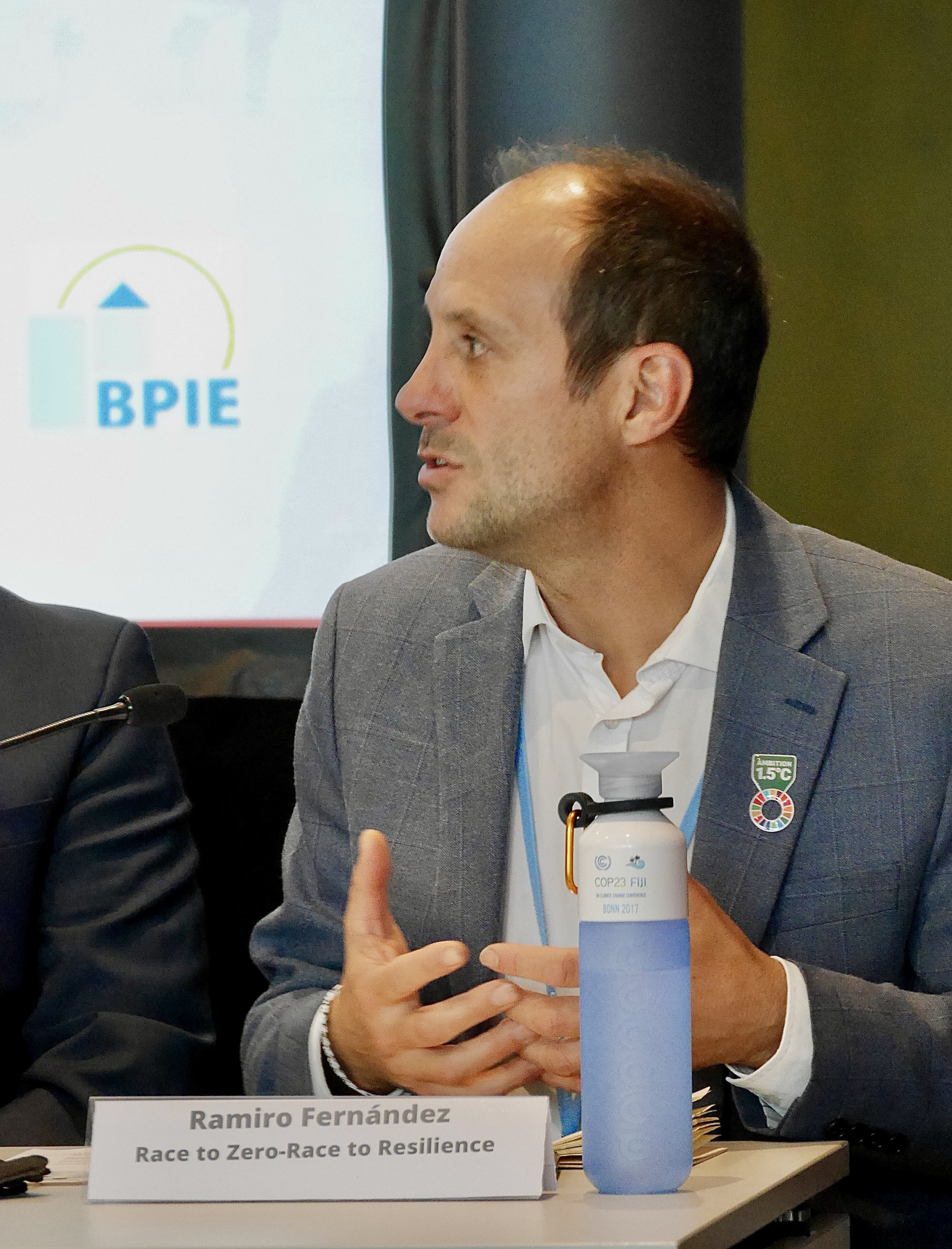
Ramiro Fernández, Director of the Race to Zero and Race to Resilience Campaigns Director, High-Level Climate Champions Team, emphasised the relevance to different parties and non-state actors of this sectorial approach, to accelerate the implementation of existing plans, but also to enhance the overall ambitions.
“We know this sector is a sleeping giant. There's a huge potential to enhance emissions reduction, but also this is a huge risk if we keep the business as usual trends in these areas. So definitely this compendium comes in a critical moment”, he said.
He also stressed the need for a multi-stakeholder approach to work with all the industries and sectors, with the local and national governments and with the energy sector as critical steps to achieving progress.
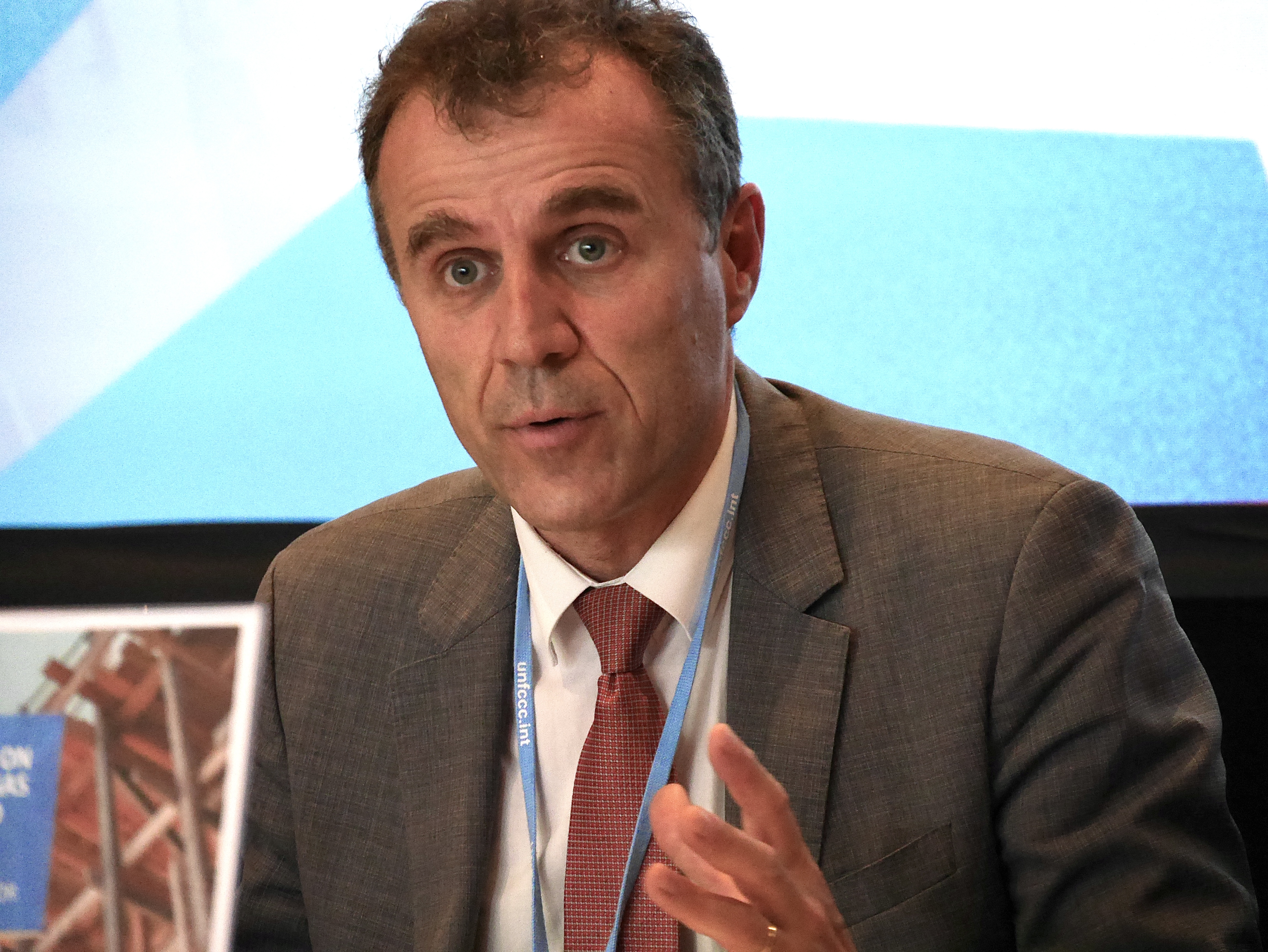
Stephane Crouzat, Climate Ambassador for France, reminded that a huge portion of all greenhouse gas emissions come from the building sector, and it’s absolutely essential to concentrate on addressing those, especially because we know emissions are going to increase as the global built area is expected to double within the next 30 years.
Ambassador Crouzat mentioned the strong headways made in Europe towards decarbonising buildings, for instance introducing technical regulation lifecycle carbon thresholds for new buildings.
“Europe is doing a lot of great things and trying to work towards zero positive emission buildings. The buildings sector is the second most cited policy in nationally determined contributions after renewable energy development”, he said.
But, similarly to other speakers, Ambassador Crouzat highlighted the critical need to pick up the pace: “We think that the building sector is so important that it deserves an extra push. You remember how in Glasgow there were the Glasgow breakthroughs on power, road, transport, steel, hydrogen, and we feel there is space for a breakthrough in the building sector.”
Nora Steurer, from the Global Alliance for Buildings and Construction, stated several key facts and figures that support that the buildings sector “has one of the most cost-effective mitigation potentials of any industry and it has massive co-benefits, including job creation”.
Steurer stressed that although we are making progress, “the percentage of countries that have mandatory building energy codes is far too low, at 22%. The transformation of the sector is a must.”
Jigme, Manager at the UNFCCC Transparency Division, provided important context on the finalization of the Paris Agreement’s operational rules at COP26 in Glasgow, propelling us past the design phase into the implementation phase.
However, this implementation is very urgent, because the current actions are far short of what is required by science and IPCC. “There are many challenges and opportunities, in my view, in the building sector as it continues to do its part to decarbonise and build climate resilience”.
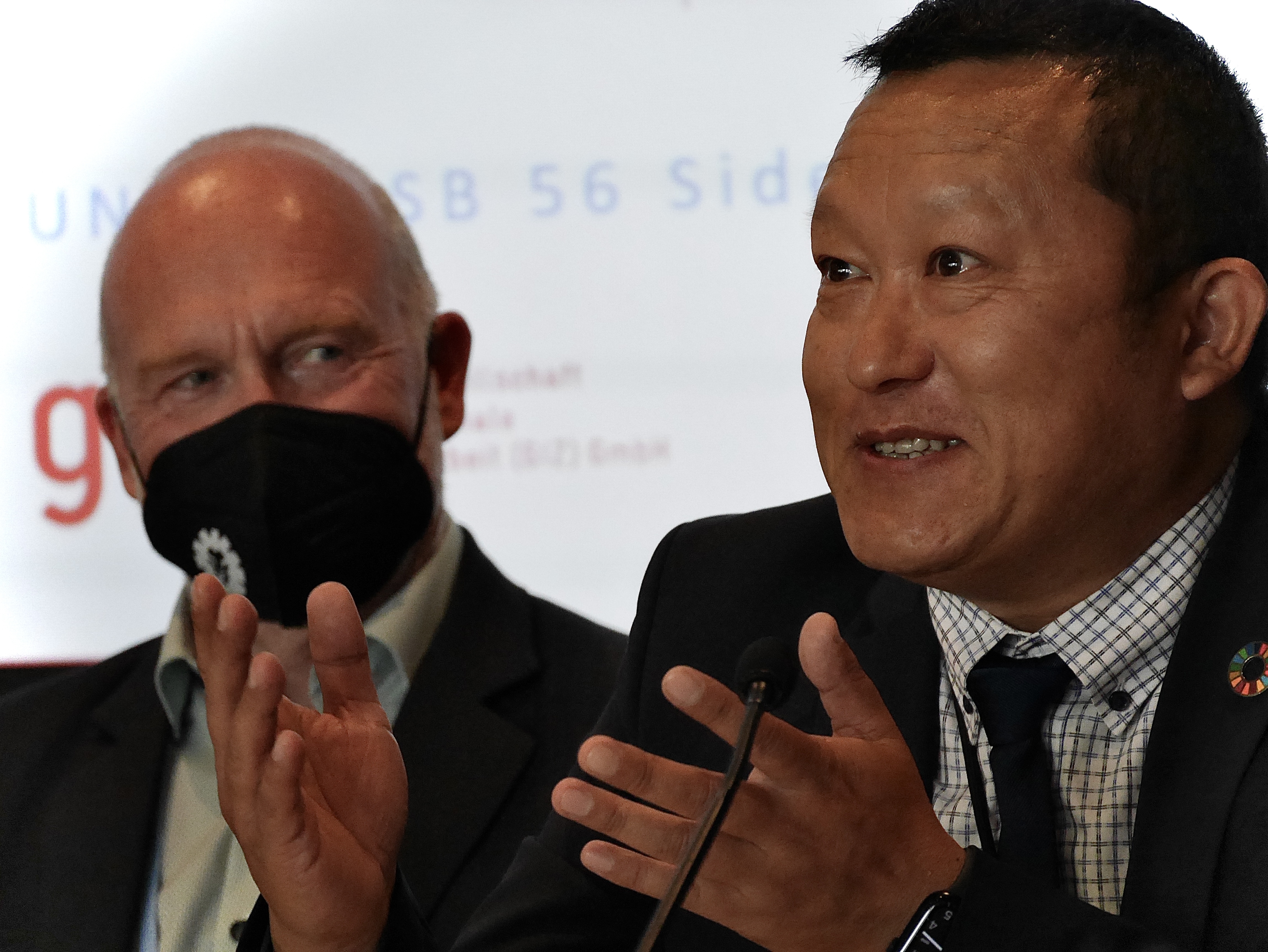
Jigme highlighted the importance of the Compendium, particularly for developing countries, in making science- and evidence-based decisions and policy choices. He stressed that the Compendium “can allow them to harness the maximum possible ambition within this sector”.
Oliver Rapf, Executive Director, Buildings Performance Institute Europe (BPIE), expanded on the purpose of the compendium, as a practical tool for policymakers and practitioners to develop mitigation strategies, monitor progress and collect data. All of this is designed to support the development of indices in this sector, and includes data, methodologies on the one hand, and practical strategies and measures on the other hand.
“The per capita use of building surface is growing. That's a trend, of course, which is driven by growing wealth, but it's also simply driven by the fact that there are still a lot of people on this planet who do not have access to decent housing. So, of course, the building surface will have to grow. Globally, the question is how can we make sure that this does not hinder us from achieving the Paris Agreement? The good news here is that we have a certain degree of decoupling between the growth of the surface and the growth of energy consumption and emissions. But the bad news is we're not bending the curve. We're still growing both emissions and energy consumption.”
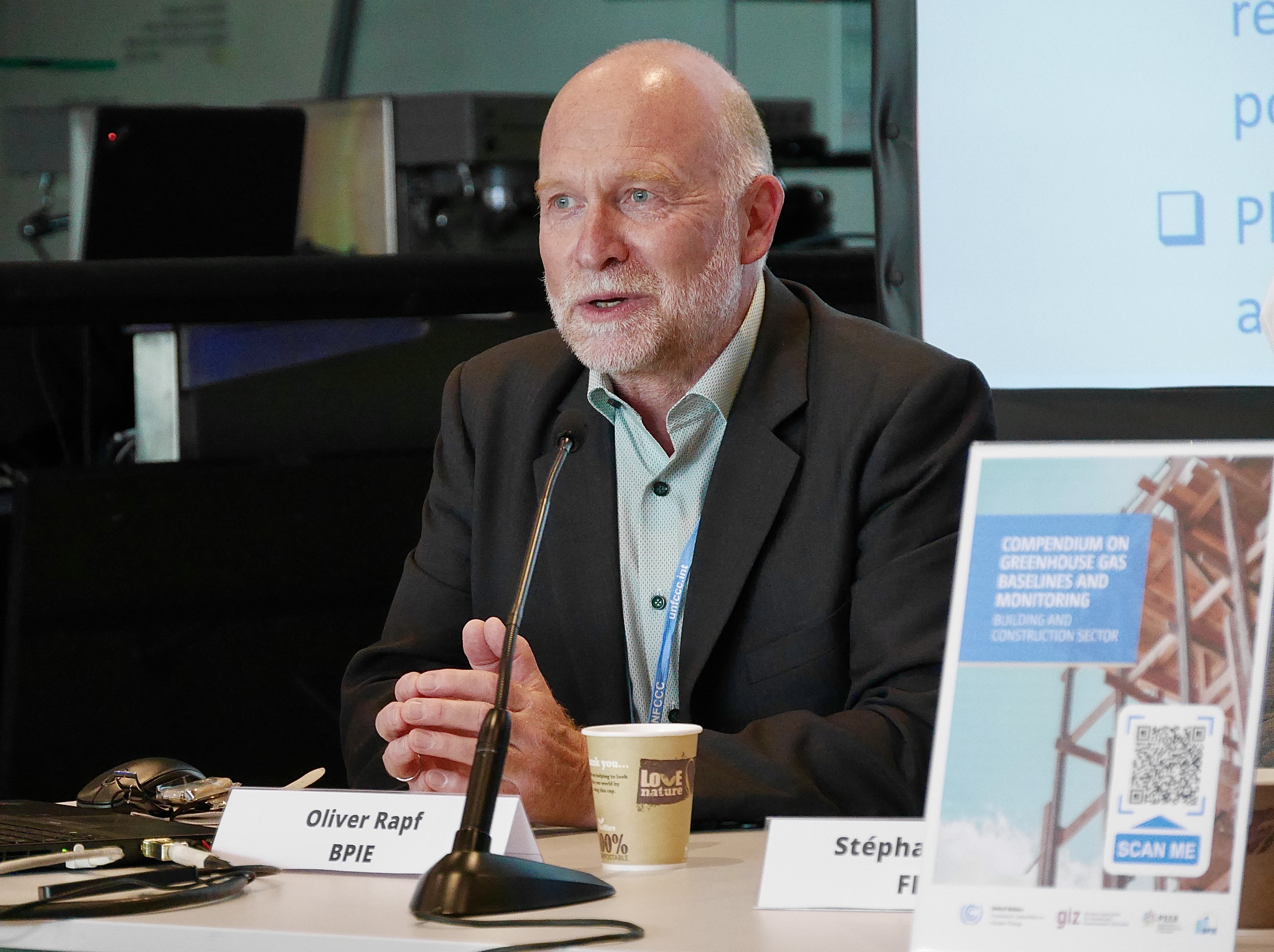
Rapf also remarked that all phases of the building's lifecycle are important, but the use phase represents the bulk: over 70% of GHG emissions from the sector are produced in the use phase, usually for heating, cooling, and lighting. This phase is, therefore, a clear priority, followed by the production phase and the end of life.
The palette of available policies is very rich, he said: “When policymakers think about what is possible, a very wide range of policies is available. They range from completely voluntary actions such as labelling of buildings or simply awareness-raising to mandatory performance standards for buildings or even mandatory renovation.”
Régis Meyer, Decarbonisation expert at the Ministry of Ecological Transition, France, shared insights about the National Low-Carbon Strategy and the role of buildings, and gave examples of regulations based on progressive obligations. “We succeeded to reduce only by about 12% of emissions during the last seven years. So now we have to speed up, and the aim is to almost fully decarbonise, going from 90 million tons of CO2 to 5 million tons of CO2 emissions from the building sector”, he added.
Régis Meyer also highlighted that the new French regulation in force since January 2022 is one of the first of its kind, and is expected to lead to a decrease of 30% of embedded carbon in construction between now and 2030. Also in terms of resilience, he stressed that “it is essential to adapt the buildings’ new designs to the future climate”.
Jérémy Bourgault, PEEB Programme Officer, Agence Française de Développement (AFD), stated that “massively investing in decarbonisation and resilience of our built environment is a unique opportunity to create local jobs and build capacities, notably in the aftermath of COVID 19, improving energy security and resilience to heat and extreme weather events of our infrastructures, and therefore our local communities.”
Bourgault also mentioned that development finance institutions have a significant role to play in shifting global finance towards greener buildings and construction practices. The share of such investments needs to increase drastically over the coming years, he said.
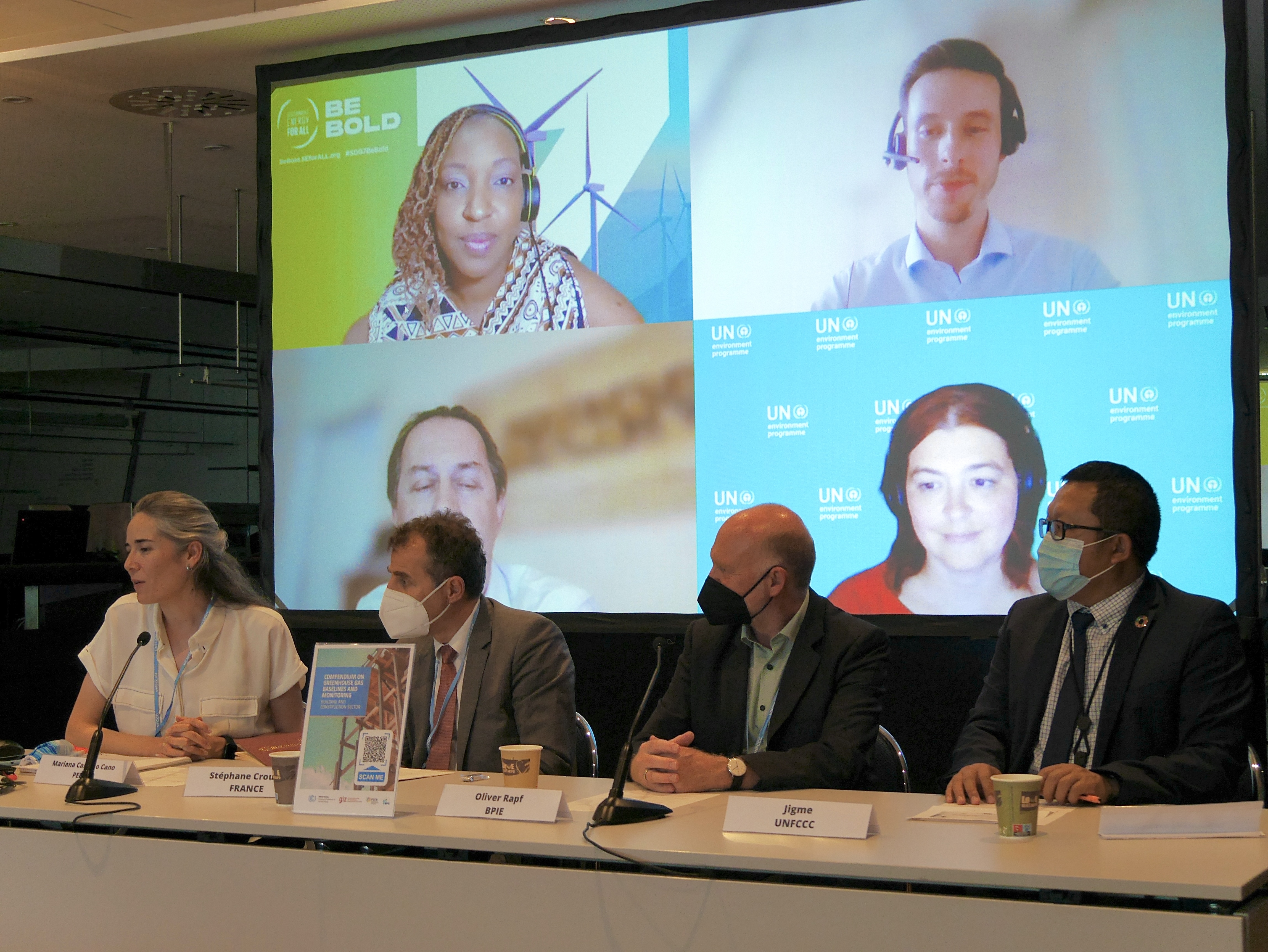
Elizabeth Chege, Energy Efficiency & Cooling Specialist, Sustainable Energy for All (SEforALL), stressed the need for more climate finance flowing into the sector, noting that in every $100, only 3% is invested in energy efficiency. Meanwhile though, “some of the countries across the [African] region have already started doing their national and energy efficiency plans, and part of that is to have a strategic plan as well as an implementation plan. Beyond that, we see that a lot of the countries also looking at upgrading the building codes if they have them.”
Chege also emphasized that with 800 million more people living in the African region by 2050 the need for low-emissions and resilient buildings in a warming climate is a major challenge ahead. The energy expert emphasized that in the world today, “1.2 billion rural and urban people are at high risk by 2030 because they lack access to cooling, and this access to cooling is not just air conditioning or thermal comfort, it's also cooling for our hospitals, vaccines or agricultural production”, among others critical needs.
In closing the event, Elizabeth Chege provided an additional perspective on buildings, observing that “we really need to have a balance between biodiversity and the built environment, and there's no reason to treat them separately. We need to work together.”
By viewing the video, you agree that your data will be transmitted to YouTube and that you have read the privacy policy.
http://www.peeb.build/news-events/How-to-monitor-GHG-emissions-from-buildings
If you are attending the World Urban Forum (Katowice, Poland, 26-30 June 2022), join us for this special networking event on Tuesday 28 June, from 2.30 to 4.00 pm, at the Multifunctional Hall Room 6. The event will start with a panel discussion on how to shift low-emissions and resilient buildings in the Mediterranean region, followed by a networking session.
The Mediterranean region is among the hardest hit by the consequences of climate change. Some areas might become inhabitable by 2050. Buildings and construction already make up about 40% of greenhouse gas emissions, and the global building stock is growing rapidly. As temperatures rise, cooling needs are becoming a key driver in energy use and greenhouse gas emissions.
Energy demand for air conditioning is expected to triple by 2050. Energy-efficient building designs and appliances are essential to achieve a greener urban futurein the Mediterranean region, reducing greenhouse gas emissions, and leading to more livable and resilient cities. Bold policies, massive investments and capacity building at scale are needed to transform the buildings and construction sector.
The high-level networking event will highlight the need for action through national commitments and international cooperation towards low emissions and resilient buildings in the Mediterranean region. High-level experts and representatives of national governments and the European Commission will showcase successful and upcoming initiatives to promote energy-efficient and resilient urban development in the region.
With this networking event, the Union for the Mediterranean, PEEB and meetMED, will raise awareness and create new opportunities to strengthen collaboration under the aegis of the European Commission to accelerate the transition to a low-carbon and climate-resilient built environment in the Mediterranean region.
PANELISTS
- Ms. Victoria Jimenez, Head of Sector, Urban Development, UfM
- Ms. Laura Liger, Policy Officer, DG REGIO, European Commission
- Ms. Sonja Leighton-Kone, Acting Deputy Executive Director, UNEP
- Dr. Abd ElKhalek, Assistant Minister, Ministry of Housing, Utilities and Urban Communities, Egypt
- Mr. Ilyas Essabai, Head of Energy Efficiency and Renewable Energy, Direction of Quality and Technical Affairs, Ministry of National Planning, Urban Development, Housing, and Urban Policy, Morocco
- Dr. Jauad El Kharraz, Executive Director, Regional Center for Renewable Energy & Energy Efficiency (RCREEE), Egypt
- Ms. Isabel Geppert, Head of Secretariat, Programme for Energy Efficiency in Buildings (PEEB), GIZ/AFD
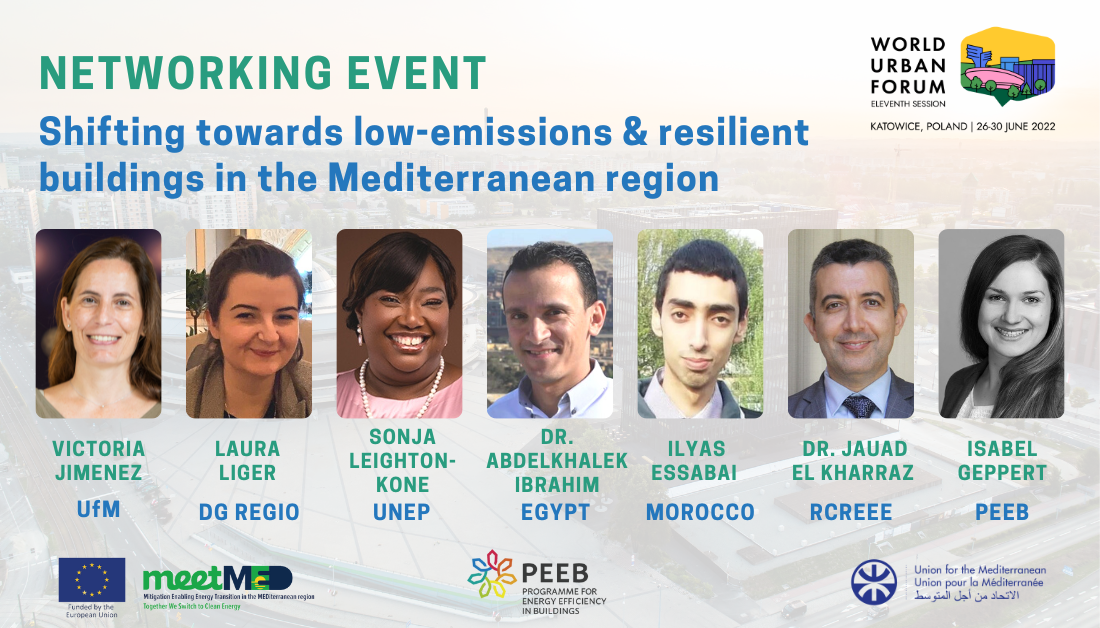
This event is open to all WUF11 participants on-site and a recording will be made available afterwards by the organizers. Check out the WUF11 programme for more details.
http://www.peeb.build/news-events/peeb-at-world-urban-forum
The health sector contributes to and is affected by climate change. On the one hand, the health care sector generates between 4 and 5% of the world's greenhouse gas emissions, and, on the other hand, these same infrastructures must become more resilient to the effects of the climate crisis, particularly heat. Furthermore, health buildings should be designed to improve the well-being of patients and the working conditions of medical staff, as well as maintain the continuity of cold chains, essential to ensure our health security.
The energy performance of essential health infrastructures such as hospitals must improve massively to address the pressing climate issues.
The Programme for Energy Efficiency in Buildings (PEEB) organised a webinar with several experts to present best practices in sustainable construction and renovation in the health sector, tools to stimulate their financing, as well as the highlights of a technical guide developed for the hospital sector in partnership with the Tunisian Ministry of Health and the Tunisian National Agency for Energy Management (ANME).
"Technical solutions for a more resource-efficient design exist," said Jérémy Bourgault of the Agence Française du Développement (AFD) and member of the PEEB secretariat. "These solutions can both increase energy security and climate resilience of communities, especially in hot climates, while reducing greenhouse gas emissions and operating costs."
This comes against a backdrop of great attention from international organisations such as the World Health Organisation (WHO), which has launched numerous programmes and initiatives in this area, including engaging all countries in promoting sustainable, climate-resilient and low-carbon health systems.
Elena Villalobos Prats, Technical Officer for Health and Climate Change at WHO, highlighted the usefulness of the work developed by PEEB in regard to the ambitions set at COP26 in Glasgow. There, countries commited to transitioning to sustainable, low-carbon health systems for the first time.
"Today, 58 countries have already committed to this initiative, and now they will need financial and technical support to implement these commitments," she added.
Halving energy consumption
The example of Tunisia fuelled the experts' discussions, as the Tunisian government has put in place a national energy transition strategy for 2030, which aims to increase the share of renewable energy to 30%, reduce primary energy demand by 30% and cut its carbon intensity by 40% by 2030. At the heart of this strategy are the many new health infrastructures that the country needs.
Rym Nafti, Head of PEEB in Tunisia, explained that with more than 5,000 health facilities, the sector accounts for 5% of building-related energy consumption in the country, with an energy intensity of 464 kW/h consumption per square meter per year. The estimated potential for reducing energy consumption in health buildings is 50%.
To ease this drastic reduction in energy consumption, ANME, the Ministry of Health and PEEB have developed a guide. The Guide for Energy Management in Health Facilities provides recommendations for the construction, equipment and operation of hospitals to promote energy efficiency and renewable energy.
Amira Gader Jaziri, Chief Architect of the Tunisian Ministry of Health, said that "the collaborative work made possible by the guide is bearing fruit, as it will be the basis for new hospital construction here in Tunisia."
She explained that 44 hospital infrastructure projects are being assessed for a total budget of 7 billion EUR (2400 billion dinars), financed by several international lenders in loans and grants. Within the framework of the PEEB, AFD is already funding the renovation and extension of two regional hospitals in Gafsa and Sidi Bouzid to the tune of 156 million euros, in accordance with the recommendations of the technical guide.
The guide describes how to reduce energy consumption in different areas such as heating, lighting, air conditioning, technical installations and equipment.
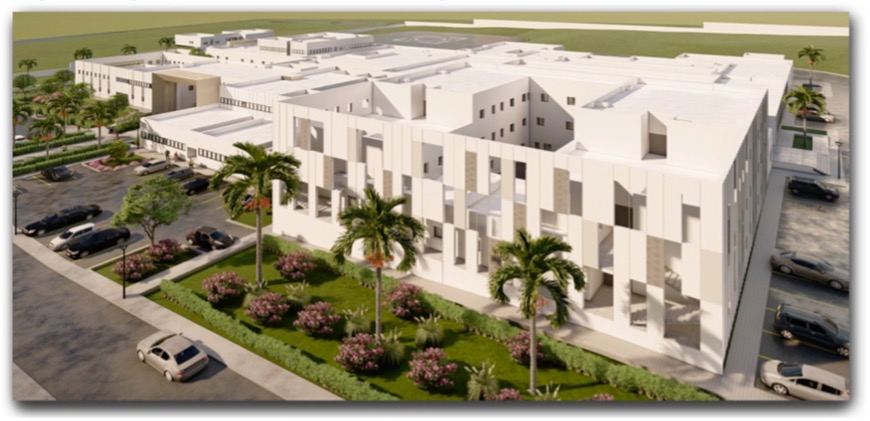
Future hospital in Sbiba, Tunisia
The main lines of action for building and managing a sustainable, more energy-efficient hospital with lower greenhouse gas emissions are described there, from the planning phase to the energy management system and the use of renewable energy for electricity production, including the eco-construction of the building.
More light, less air conditioning
The construction site of the Sbeitla hospital, 95% completed, presented by engineer Mohamed Ali Reghini and architect Nejib Krid from Bureau Asselec, is a perfect example of the application of these principles: harmonious architecture, use of local materials, low-nuisance construction site, energy management (favouring photovoltaic and natural lighting), water and waste management, and centralised technical management.
For example, the designers worked with patios, which provided a double benefit by letting in more natural light while helping to control temperatures. This is an essential stake because in Tunisia, particularly in Sbeitla, the variations in temperature between summer and winter are very significant. This system of patios, combined with insulation, also makes it possible to avoid mechanical air conditioning.
In general, a better commitment of the health sector to the energy transition is essential. It relies on three dimensions: political, by providing the impetus, the legal framework and good practice guides for building professionals; technical, by strengthening the building professionals’ technical skills required to construct or rehabilitate buildings integrating energy efficiency measures; and health-related, by establishing a link with health issues such as the well-being of patients and health professionals.
Nicolas Valour, project manager for health sector investments at Agence Française du Développement (AFD), identified the obstacles to a faster and more thorough development of sustainable hospitals, "including political ownership and drive – which still lacks – so that projects can integrate energy performance concerns. He also underlined the need to give more consideration to the point of view of the medical staff while in the planning phase.
"As we can see, the task is colossal," he added, welcoming that Tunisia is leading the way with its strategy for sustainable health buildings.
Bringing together a fragmented environment
Nora Steurer, Policy Officer at the Global Alliance for Buildings and Construction, GlobalABC, reminded the audience that the success of this initiative had been grounded on collaboration between the different players in a very fragmented sector, such as ministries contractors, architects, engineers and health care staff.
As such, the work in Tunisia highlighted in this webinar is a highly encouraging and relevant case study in preparation for COP27 in Egypt. This year's climate conference will be held on the African continent, which is facing immense needs in terms of health infrastructure and challenges due to climate change.
This webinar on hospitals is the first in a series of dialogues exploring solutions for making health, hotel and residential buildings more sustainable.
Read more about the series here. Watch the webinar here.
By viewing the video, you agree that your data will be transmitted to YouTube and that you have read the privacy policy.
http://www.peeb.build/news-events/hospitals-webinar-summary
PEEB, the UN Climate Change secretariat and the Buildings Performance Institute Europe (BPIE) are organising two side events at the upcoming UN Bonn Climate Change Conference (Bonn, 6-16 June) that will put buildings and construction at the heart of the climate talks.
With buildings and construction making up 37% of energy-related CO2 emissions globally, the main event, on Saturday, 11 June, will focus on the sector’s critical role in enhancing climate action and reporting under the Paris Agreement. The event "Buildings & Construction: Understanding emissions, setting Paris-compatible targets and providing inputs to the ETF and the global stocktake, the event will take place at 4.45-6.15 PM in Room Kaminzimmer, at the World Conference Center, Bonn. The event will be open to all conference participants and will be webcast live. To watch the event live, go to the UN Climate Change YouTube Channel and click on the reminder button.
In the face of the climate emergency, the building and construction sector needs to assume a vital role in leading the shift to low-emissions and climate-resilient development. There is an urgent need to measure and report existing emissions and the actions implemented or planned to reduce them. A coherent, coordinated, and multilateral approach is needed across the value chain for a greater impact.
The recently published UNFCCC Buildings Monitoring Compendium supports developing countries in enhancing their knowledge on sectoral GHG emissions, emissions reduction target-setting and the design of mitigation and adaptation policies and measures to mitigate climate change and enhance resilience. The Compendium is a valuable tool developing countries can use to implement the Paris Agreement’s enhanced tranparency framework (ETF) and contribute to the global stocktake process.
The UNFCCC secretariat, PEEB and BPIE will present the Compendium to delegates and experts attending the UN Climate Conference in Bonn in person and remotely. At the event, country representatives and development banks will also share their experiences designing and supporting climate action in the building and construction sector.
In addition, the side event Supporting the Implementation of the MRV Arrangements and Enhanced Transparency Framework will showcase support opportunities available to developing country Parties through international partners, including financial resources from the GEF for national reporting. Speakers from the CEEW (Council on Energy, Environment and Water), GEIDCO (Global Energy Interconnection Development and Cooperation Organization), PEEB, GIZ Transport, BPIE, GEF (Global Environment Facility), as well as UNEP CCC will be present. The event will take place on June 9, 2022 at 1.15–2.45 PM.
Updated information on the side events is available here.
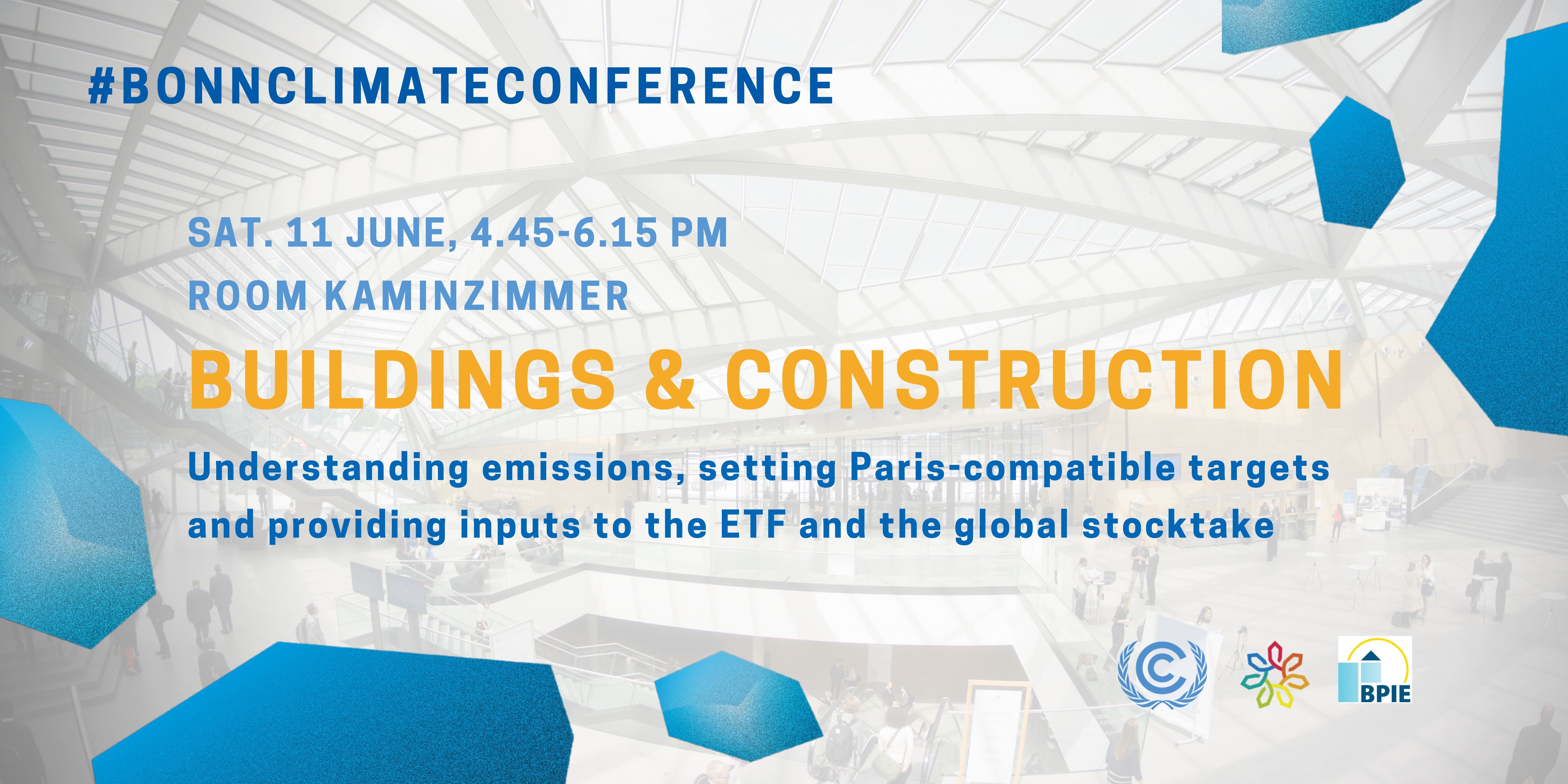
TEMPTATIVE AGENDA
| Duration | Segment | Speaker/s | Presence |
| 2 min | Welcoming by moderator | Mariana Castaño Cano, PEEB | In person |
| 5 min | Remarks | Dr. Mahmoud Mohieldin, Climate Champion, Egypt (tbc) |
In person |
| 5 min | Remarks | Stephane Crouzat, climate ambassador (France) |
In person |
| 5 min |
|
Nora Steurer, GlobalABC | Remote |
| 5 min |
|
Don Cooper, Transparency Division Director, UNFCCC | In person |
| 15 min |
UNFCCC Buildings Compendium presentation |
Oliver Rapf, BPIE | In person |
| 20 min | Policy action in the building sector From targets-setting to actoin |
COUNTRY REPRESENTATIVES: |
In person/ Remote |
| 10 min | Engaging development banks and the financial sector |
Jérémy Bourgault, PEEB/AFD | Remote |
| 10 min | Q-A | ||
| 5 min | Summary and way forwards ahead COP27 Scaling up action |
Elizabeth Chege, SEforAll | Remote |
http://www.peeb.build/news-events/unfccc-side-event
IDFC’s Green Buildings cooperation was launched at COP26 and is already underway in 2022 with a series of knowledge sharing events. PEEB conducted a first session on March 24th where development banks from Africa, Latin America and Europe shared their experience implementing successful green buildings projects and discussed barriers and opportunities to scale up investments.
A follow-up session on green buildings criteria and mainstreaming tools will take place on June 2nd followed in July by an expert-led workshop on how to mobilise Green Climate Fund support. Later this year, IDFC's Green Buildings Cooperation will partner up with the GlobalABC for two webinars on the role of development banks in accelerating climate adaptation as well as on embodied carbon and circular economy.
http://www.peeb.build/news-events/IDFC-programme
The building and construction sector play a critical role in global greenhouse gas emissions. Measuring and understanding these emissions is essential to plan and implement mitigation policies. Effective national strategies and measures to reduce GHG emissions can only be developed based on a solid understanding of the emissions over the entire building life cycle, from the production of building materials, to the construction, operation and, finally, the demolition and potential reuse of a building.
The UNFCCC Compendium on Greenhouse Gas Baselines and Monitoring in the Building and Construction Sector published by UNFCCC and developed by PEEB and BPIE includes two parts. The first part provides an overview of the different sources of GHG emissions from the building and construction sector, as well as methodologies for quantifying these emissions to feed into the preparation and reporting of national GHG inventories. The second part concerns itself with different mitigation actions, strategies, and policies to reduce GHG emissions from the buildings and construction sector. The Compendium will be launched at aside event in summer.
Based on the compendium, PEEB will publish methodological guidance on how to measure greenhouse gas emissions from buildings in 2022, including for climate finance proposals. This information will be widely shared within the context of the GlobalABC.
http://www.peeb.build/news-events/unfccc-compendium
Energy-efficient buildings help us save energy and money. They are also more comfortable to be in and better for the climate as they emit less greenhouse gas emissions. In short, advancing green buildings will be critical to achieving the Paris Agreement and the Sustainable Development Goals.
We know WHY we should green our buildings but HOW can we do it in practice? Which sectors have the largest potential for emissions reductions? How can buildings professionals implement energy efficiency measures in all phases of their work? How much does it cost?
The Programme for Energy Efficiency in Buildings (PEEB) has produced a series of technical guides targeting key sectors in its partner countries: Hospitals, hotels and residential buildings. These guides give concrete advice on how to make our buildings greener, based on a deep-dive into specific countries’ realities.
In the coming months, a series of Expert Dialogues will explain how to make buildings green in these key sectors. The events will present good practices and technical advice from the technical guides that can be scaled up and replicated elsewhere. Organized by PEEB in collaboration with the Global Alliance for Buildings and Construction, the expert talks share experiences with professionals to help them plan and implement energy-efficiency in buildings everywhere in the world.
The dialogues are conceived to be a dialogue to provide inputs and give room for discussion, from public and private sector experts and practitioners, from planners to architects, from national officials to investors, from facilities’ managers to professional associations.
Part I. How can we make hospitals green? (Webinar in French)
PEEB Expert Dialogue on how to improve energy efficiency in key health buildings
18 May 2022, 2-3 PM Tunis (GMT+1), 3-4 PM Paris/Bonn (GMT+2)
Human health needs sustainable buildings: by ensuring good indoor comfort and "Cooling for All", green building improves the well-being of patients and the working conditions of medical staff. As temperatures rise, health infrastructures must become more resilient to heat, both in urban and rural areas. Continuity of cold chains is essential to ensure our health security, especially for the transport and storage of vaccines and medical products.
Register for the event here.
Read the concept note here.
Part II. How can we make hotels green?
PEEB Expert Dialogue on how to improve energy efficiency in the tourism sector
Date to be confirmed.
Part III. How to make our homes green?
PEEB Expert Dialogue on how to improve energy efficiency in residential buildings
Date to be confirmed.
http://www.peeb.build/news-events/webinar-green-buildings
This article was originally published on the IISD SDG Knowledge Hub.
An era of massive construction is currently underway, with a new area the size of Paris being built every week. The global building floor area is expected to double by 2060, which will have a massive impact on the climate. The production of building materials and construction activities are already responsible for 10% of global energy-related greenhouse gas emissions
Building materials have a heavy carbon footprint and present a concrete challenge to the climate. The “embodied carbon” in buildings comes primarily from the energy-intensive production of cement, steel, aluminum, glass and insulation materials. The production of materials like cement also involves chemical processes, releasing additional greenhouse gases (GHGs), and leads to the depletion of natural resources like sand and the erosion of ecosystems.
Strategies to address embodied carbon – and ready solutions
We need to rethink the way we construct our buildings in order to reduce embodied carbon. The strategies to reduce embodied carbon already exist – from building smarter to decarbonising building materials. To shine a light on these solutions, the Programme for Energy Efficiency in Buildings (PEEB) recently published a working paper presenting key facts on embodied carbon, as well as practical strategies to reduce it. This video by PEEB explains the key facts.
PEEB sees three approaches: avoid embodied carbon by designing for less material use; shift to alternative building materials; and improve conventional materials by making them less carbon-intensive.
On the first strategy, avoiding embodied carbon by reducing material use, resource efficiency is the basis. We can build less, build with less materials, and build longer-lasting, more resilient buildings. = Circular approaches to construction can even turn buildings into banks of valuable materials that can be reused through “urban mining.”
The second and third approaches require a double strategy. We need swift action to reduce the emissions from the production of conventional building materials, mainly concrete and steel, but also aluminium, plastic and glass. At the same time, we need to increase the market share of alternative low-carbon materials such as bio-materials.
Low-carbon building materials and construction solutions already exist and are ready to be scaled up. Companies and start-ups across the globe have developed alternative materials which have become state-of-the-art products for today’s real estate markets. On the industrial side, large corporations like cement and steel producers are looking to decarbonise their production.
Construction in the spotlight at climate discussions
Despite its massive role in global emissions, embodied carbon from buildings is still a “blind spot” in discussions of how to reduce GHG emissions. At the UN Glasgow Climate Change Conference (UNFCCC COP 26), actors rallied to put the built environment in the spotlight. We need a “whole-life carbon” approach when it comes to dealing with emissions from the complex value chains that make up this sector..
Whilst solutions are there, dedicated policies and financing support are needed for nurturing a business environment that can tackle embodied carbon.
On 24 March 2022, the top solutions to advance policy and financing were discussed in a webinar on building materials co-organised by PEEB, GlobalABC, ABC21 and the ACT initiative. Experts from India, Morocco, France and the United States discussed the challenges and potential solutions to decarbonising building materials.
“India and Africa will add the size of Paris many times over to the world in the coming years,” highlighted architect Chitra Vishwanath from Biome Solutions in India, pointing to the massive growth in construction in developing countries. To avoid locking carbon into the system for decades, infrastructure investments have to be shifted urgently. Decisions that are taken now “will shape the production of cement and steel in 2050,” said Marlène Dresch from ACT Initiative, which supports companies in developing actionable decarbonisation strategies. She highlighted the urgency of a clear transition plan for decarbonising building materials aligned with the goals of the Paris Agreement.
Worldwide, there is an urgent need to make embodied carbon visible through better data and awareness. Building regulations still mostly target operational carbon – the energy used during the operation of a building. Performance-based building codes that include materials are only just emerging. Financing is needed to roll out technologies to reduce the carbon content from conventional building materials, and webinar participants pointed to the role of global carbon markets to accelerate this.
Anupam Badola from Dalmia Cement in India underlined the high share of construction demand from the public sector, where green procurement protocols and policies can create market demand for improved cement and steel. Asmae Khaldoun of Al Akhawayn University in Morocco highlighted the potential of bio-based and geo-based building materials as modern building materials, and their high potential to create local jobs.
What is next in 2022?
Reducing the energy use and GHG emissions caused by the way we construct is critical, and embodied carbon in buildings must be high on the agendas of policy-makers, companies and practitioners globally. In 2022, the Global Alliance for Buildings and Construction will use advocacy and research to elevate building materials and embodied carbon on the global agenda. Several members of the Alliance are working with development banks and investors to increase investments in buildings that address whole-life carbon.
By Anna Zinecker, PEEB (Bonn, GIZ) and Jérémy Bourgault, PEEB (Paris, AFD)
By viewing the video, you agree that your data will be transmitted to YouTube and that you have read the privacy policy.
http://www.peeb.build/news-events/iisd-building-materials
Production of building materials and construction activity are responsible for 10% of all energy-related greenhouse gas emissions globally. With the global floor area expected to double by 2060, there is an urgent need to address the issue of embodied carbon in buildings.
PEEB, GlobalABC, ABC21, and the ACT Initiative co-organised a webinar on building materials on 24 March 2022 to bring together experts from academia, industry and policy to discuss the challenges currently faced by this sector as well as the potential solutions for them.
The strategies to reduce embodied carbon exist – from building smarter to decarbonising building materials. To shine a light on these solutions, the Programme for Energy Efficiency in Buildings (PEEB) has recently published a Working Paper presenting the key facts on embodied carbon, as well as practical strategies to reduce it.
These strategies to reduce the carbon footprint of the construction sector were discussed, from resource efficiency and circular economy approaches to using alternative building materials and decarbonising the conventional ones. Many of these solutions already exist and are being implemented, but they are lacking in scale. Dedicated policies and financing support are needed to create a business environment that can tackle embodied carbon.
Chitra Vishwanath, architect and founder of Biome Solutions highlighted the massive growth in construction foreseen in the developing world while Asmae Khaldoun of Al Akhawayn University brought the potential of bio-based materials for construction to the fore. ACT Initiative’s Marlène Dresch underlined the urgency of transforming the production processes of building materials to avoid high-carbon lock-in, stating that “decisions taken now will shape the production routes in 2050”. Anupam Badola from Dalmia Cement in India underlined the high share of construction demand from the public sector, where green procurement protocols and policies can create market demand for improved cement and steel.
Reducing the energy use and greenhouse gas emissions caused by the way we construct is critical, and embodied carbon in buildings must be high on the agendas of policy-makers, companies and practitioners globally. In 2022, Global Alliance for Buildings and Construction will bring building materials and embodied carbon high on the agenda, highlighting the issue through advocacy and research. Several members of the Alliance are working with development banks and investors to increase investments in buildings that address whole-life carbon.
Links to the webinar recording are speaker presentations are available online.
By viewing the video, you agree that your data will be transmitted to YouTube and that you have read the privacy policy.
http://www.peeb.build/news-events/webinar-embodied-carbon
In November, the eyes of the world were turned to COP26 in Glasgow. We were asking for nothing less than for this UN Climate Change Conference to break ground for a zero-carbon buildings future. At COP26, buildings sector actors joined forces, through action around the first ever Buildings Pavilion, hosted by the Global Alliance for Buildings and Construction, building up to Cities and Built Environment day on 11 November.
Read our analysis of COP26 here
As a partner for the Buildings Pavilion, PEEB co-organized several events:
Investors' role in the race to zero: How to shift building investments towards Paris-alignment, Buildings Pavilion, 3 November 2021
The financial sector plays a crucial role in transforming the built environment towards net-zero carbon emissions. Speakers from French development bank AFD, Mexican housing bank Sociedad Hipotecaria Federal (SHF), venture capital provides Fifth Wall, Mexico’s Laudes Foundation showed best practices on how to shift investments, foster innovation and Research & Development to scale. They urged dedicated support for green buildings, ranging from mainstreaming green buildings into the work of development banks, improved regulation, green housing programmes to a tech fund for real-estate and the important role of philanthropy. The Programme for Energy Efficiency in Buildings (PEEB) and the World Business Council for Sustainable Development (WBCSD) as organisers of the event will bring recommendations into the work of the Global Alliance for Buildings and Construction (GlobalABC).Watch event
Shifting 5.8 trillion USD of real-estate investments towards Paris-alignment - the role of development banks, IDFC Pavilion, 4 November 2021
Of 5.8 trillion USD spent on buildings in 2019, only 3% went towards energy efficiency. The Inernational Development Finance Club (IDFC) gathering 26 national and international development banks is raising the topic of green buildings on its climate agenda. Earlier this year, PEEB and IDFC started a Green Buildings cooperation in the context of IDFC’s Climate Working Group to share knowledge and awareness among IDFC members on how to increase their investments in zero-carbon and climate resilient buildings. PEEB and its cooperation partners hosted their first Green Buildings event on the IDFC Pavilion at COP26. Representatives from Bancoldex from Colombia, Development Bank of Southern Africa (DBSA), Brazilian Development Bank (BNDES), KfW from Germany, Central American Bank for Economic Integration (CABEI) and a guest speaker from the French Caisse des dépots et consignations came together to present first initiatives and discuss how to scale up their green building portfolios.Watch event
Tools and NDCs towards zero-carbon and resilience Buildings Pavilion, 8 November 2021
FIABCI, GlobalABC, GBPN, PEEB and iiSBE Italia R&D hosted a hybrid presentation of effective tools and instruments towards carbon-neutral cities and buildings. Anna Schindler of the Office for Urban Development in Zurich introduced the carbon-neutral label by the Swiss Office of Energy for achieving the 2000WattSmartCity label. Peter Graham of the Global Buildings Performance Network (GBPN) launched the NDC Buildings Toolkit with tools, good practices and policy recommendations for setting up effective building NDC targets and actions. GlobalABC members and building sector experts are invited to contribute to the NDC Buildings Toolkit at GlobalABC’s collaborative space . Vu Thi Kim Thoa from PEEB introduced the Vietnam NDC Buildings and Construction Sector Roadmap 2050 which has been supported by PEEB. Finally, Andrea Moro, followed by Teresa Coady, introduced the iiBSE open-source building rating system for resilience, and its 12 Principles of Conscious Construction for the achievement of the GlobalABC mission and vision.Watch event
Buildings and Adaptation: a call for action, GlobalABC Pavilion, 8 November 2021
This event led by the GlobalABC adaptation working group presented key facts from the report “Buildings and Climate Change Adaptation : A call for action” (launched early 2021 at the Climate Adaptation Summit) and launched the “Adaptation of the building sector to climate change : 10 principles for effective action”. PEEB took part in the event to present its new paper “The adaptation imperative for buildings: How can development banks scale up low–carbon and resilient buildings?” and highlight why adaptation and mitigation should be addressed in tandem and the role of development banks to make the building sector more resilient. High-level speakers from FIABCI, FIDIC, the Coalition for Disaster Resilient Infrastructure and the Swedish firm SWECO also joined the panel to showcase their support to the 10 principles.Watch event
Building sector decarbonisation five years after COP21: What keys for success? What’s next?, French Pavilion, 11 November 2021
Buildings are responsible for 38% of energy-related CO2 emissions, more than other types of industry and transport. Five years after the Paris Agreement, GlobalABC and PEEB invited building sector leaders, innovators, institutions and international organisations to the French Pavilion at COP26. Together, they took a broad look at the progress made over the last years and discussed what lies ahead for buildings in the race against climate change. Pierre-André de Chalendar, President of Saint-Gobain, and Marjolaine Meynier-Millefert, Member of French Parliament and President of HQE-GBC Alliance, insisted on the importance of pursuing efforts to decarbonise buildings. Speakers from across the construction and real estate value chain joined in to express their commitments. While the sector must pursue its efforts to reduce operational greenhouse gas emissions, panellists raised awareness on the growing need to tackle the heavyweight of building materials. Participants also urged to join forces around a common set of principles to make our buildings more climate resilient.Watch event
http://www.peeb.build/news-events/summary-peeb-cop
How can decision-makers and practitioners incorporate building sector actions into their NDCs? Launched at the Cop26, the NDC Buildings Toolkit, being developed by GlobalABC, GBPN and PEEB, compiles practical data sources, tools and country examples for incorporating effective decarbonisation measures for buildings and construction into national NDCs.
GlobalABC members and register and contribute to the NDC Buildings Toolkit at the GlobalABC’s collaborative space!
http://www.peeb.build/news-events/ndc-toolkit
Sustainable urban development and construction, especially housing, is a high priority of the Government of Senegal. In cooperation with the Ministries of Environment and Sustainable Development (MEDD) and Urban Planning, Housing and Public Hygiene (MULHP), PEEB through the French Agency for Ecological Transition (ADEME) supports the implementation of key projects that integrate the principles of bioclimatic construction. These projects will demonstrate the feasibility and benefits of bioclimatic buildings. At the same time, they will inform the ‘100,000 social housing programme’ under development by the MULHP to spread them across the whole social housing sector of Senegal.
A call for proposal to senegalese developers and promoters in July 2021 yielded twelve proposals: educational, housing and administrative buildings from public and private sector. Two winners were selected on 9th of November, the Ban-Ban eco district project in Thiès, led by Worofila and Elémenterre, and the Fawru commercial building for agriproducts project in Matam, led by the Departemental councils of Matam, Kanel, Podor and Maison des Yvelines. A third project, already financed by the World Bank, was granted a lighter technical assistance in terms of capacity building on bioclimatic and low carbon techniques, for the construction of a primary school and a socio-cultural center in Saint-Louis, led by the Municipal Development Agency (ADM).
Both projects were selected due to their high replication potential for adopting energy efficiency and bioclimatic concepts and integrating bio-sourced local and low carbon materials. In 2022 the two winners will receive technical assistance from a team of experts which will help them in designing energy efficient and bioclimatic buildings in order to reduce need for air conditioning while providing a high level of comfort. These pilot projects will also benefit from the technical support to conduct cost-benefit analyses of identified solutions based on life-cycle costs to assess the upfront costs for low-energy buildings and explore options for climate financing and for scaling up.
http://www.peeb.build/news-events/project-pilot-senegal
Buildings – our homes, schools, offices - are at risk from extreme climate events such as floods, storms, heatwaves, droughts, soil erosion or wild fires. Developing countries and poorer populations, which are more exposed and more vulnerable to disasters, are disproportionately affected by climate change. Among the 100 fastest growing cities in the world, 84 are already at an extreme risk from climate change. Failure to adapt buildings can threaten socio-economic development. Yet, adaptation of the building sector remains largely unaddressed.
PEEB’s new briefing, the Adaptation imperative for Buildings, demonstrates the importance of implementing climate adaptation and mitigation in tandem to address current climate threats and avoid worst future impacts. Synergies between mitigation, adaptation and development goals in the building sector are numerous: passive cooling, flexible design, local materials, nature-based solutions or water conservation can both improve the resilience of buildings and reduce their environmental impact while increasing quality of life and local employment. These synergies must be brought to wider global attention in order to scale up action.
With over 10% of all investments worldwide, development banks can play a major role in scaling up low-carbon and resilient buildings by raising awareness, setting new standards and building capacities. The briefing presents a set of recommendations and case studies to help development banks mainstream climate adaptation and mitigation across their investments in partner countries.
http://www.peeb.build/news-events/adaptation-development-bank
At COP26, members of the International Development Finance Club (IDFC) will start a cooperation on green buildings at a side event at the IDFC Pavilion. IDFC with its 26 Members from developed and developing countries has a strong commitment to increasing the quality and quantity of climate finance to further align financial flows with the Paris Agreement and SDGs. Buildings and construction are the sleeping giant for climate change mitigation and adaptation. Green buildings can achieve up to 80% energy savings, bring significant health and well-being benefits and increase local resilience to climate change. They make higher-value and lower-risk assets compared to conventional buildings. In 2019, USD 5.9 trillion were invested globally into buildings and construction. Out of this, only USD 152 billion, 3% were directed towards energy-efficient construction.
Development banks have a key role to play to trigger investments in green buildings. To increase the volume of green building financing and accelerate the transition towards a climate-friendly and resilient building sector, IDFC is starting a Green Buildings cooperation group in the context of its Climate Working Group. With technical support from PEEB, this group will facilitate knowledge sharing and exchange among its members around good practices, organise international events and create awareness, and explore matchmaking opportunities for project financing to upscale green building portfolios. Watch online
http://www.peeb.build/news-events/idfc-peeb
A new area the size of Paris is built every week, as the world is going through an unprecedented era of massive construction. As a result, the global building floor area is expected to double by 2060. The production of building materials and construction activities is responsible for 10% of global energy-related greenhouse gas emissions. The manufacturing of cement and steel and other conventional materials causes most of these emissions.
We need to rethink how we construct our buildings to reduce embodied carbon. Strategies range from building less, to improved designs that have a longer lifetime, require less material or use low-carbon materials. For building materials, we need a double strategy: We need swift action to reduce the carbon footprint of conventional building materials such as concrete and steel. At the same time we need to increase the market share of alternative soutions, such as bio-based materials.
This PEEB Working Paper, Embodied Carbon – A Hidden Heavyweight for the Climate, presents the key facts on embodied carbon, as well as practical strategies on how to reduce embodied carbon during the planning, design and construction process, as well as for building materials. To promote action on embodied carbon, it then lays out how policy and financing can be used to accelerate the decarbonisation of building materials and construction.
http://www.peeb.build/news-events/embodied-carbon
Financial incentives are essential but often not sufficient to encourage the construction of energy-efficient buildings. It is important to create additional and complementary support and management strategies that are more compatible with the realities of the buildings and construction sector at the local, sub-national and national public levels.
There are many good practices from different countries which are used to promote social acceptance and to mobilize private sector participation and finance for energy-efficient buildings. The most common ones relate to the simplification of public procedures, such as faster building permit processes for green buildings. Project bonuses, such as expanded floor areas, are also used in different countries. Incentives and recognition as well as market instruments are also common as well as incentives related to technical expertise.
The PEEB Paper Non-monetary incentives for green buildings – Mobilizing private investments provides an overview on common good practices as orientation to governments and policymakers. These incentives can also be used to promote a green economic recovery from the effects of the COVID-19 pandemic, while improving the habitability of buildings and public health, and reducing the risks of climate change.
http://www.peeb.build/news-events/non-monetary-incentives-for-green-buildings
The EU’s initiatives on Sustainable Finance will have an impact on the buildings sector. PEEB is closely monitoring the ongoing EU sustainable finance agenda and published two publications to support actors in the buildings sector in understanding their impact on buildings: a briefing on the EU taxonomy and a background paper on the opportunities for EU sustainable finance in external action.
The EU taxonomy briefing explains this initiative and its impact on the building sector. As a classification system for economic activities that can be considered environmentally sustainable, the EU taxonomy can have a profound impact on financing decisions. Following the enacting of this regulation through the EU and its member states, only investments that comply with technical screening criteria can be communicated as “sustainable”.
The background paper on EU Sustainable Finance in external action analyses the EU’s important role in global financial flows and the EU’s recent sustainable finance initiatives, and the potential to influence the massive sustainable finance challenge for buildings. It finds that the EU is in an excellent position to promote investment projects and national investment frameworks for sustainable and Paris aligned activities in partner countries and gives recommendations to enhance this.
http://www.peeb.build/news-events/eu-taxonomy-financing
Healthcare facilities that are energy efficient are important for patient comfort and can save costs that can be reallocated to patient care. Still this is not a priority for architects or engineers involved in construction and rehabilitation of healthcare facilities. PEEB therefore developed an energy efficiency guide for healthcare facilities in Tunisia, together with the Tunisian Ministry of Health and the Tunisian Energy Management Agency (ANME). This guide complements the PEEB financing for two hospitals.
This detailed guide gives concrete recommendations to energy managers and architects working in the health sector. It covers areas such as the orientation of waiting areas and patient rooms, energy efficiency and management of different hospital installations, and the integration of renewable energy sources to provide a safe and secure power supply for its day-to-day functioning. The guide also contains an overview of the current state of public and private sector health buildings in Tunisia. An accompanying quick checklist for integrating energy efficiency in health buildings is under development.
Awareness raising and trainings sessions on the guide for energy managers and architects in Tunisia’s regions are planned for the summer of 2021.
http://www.peeb.build/news-events/peeb-tunisia-hospital-guide
The effects of climate change on communities around the Mediterranean are bound to be severe, given that the Mediterranean Basin is warming up 20% faster than the global average. Spatial planning, urban design, construction technology and architecture play a central role in mitigating and adapting to ever more frequent extreme climate events in the region.
On 22 March 2021, the UfM Secretariat, in collaboration with PEEB and the Cities Climate GAP Fund, organised a virtual workshop titled “Natural cooling: an indispensable element of future-oriented housing policies and projects in hot climates” to show ways and means of planning, designing, and financing energy-efficient, thermally adapted large-scale building projects that are well embedded in climatic conditions in the Mediterranean region.
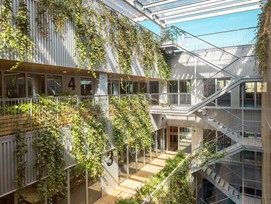
Headquarters of Doctors Without Borders in Barcelona, Spain
In the keynote speech, Christiana Hageneder, head of PEEB Secretariat, highlighted the benefits of better building design to reduce the cooling needs and utility costs. Grzegorz Gadja (European Investment Bank, EIB) underlined that EIB is highly interested in financing sustainable housing projects that ideally feature the promotion of locally adapted architecture, and building materials, as well as the inclusion of water and greenery elements to reduce cooling needs. Cecilia Colomer (Institut Municipal de l'Habitatge i Rehabilitació de Barcelona) illustrated design strategies that Barcelona promotes to avoid solar radiation and enhance ventilation such as building orientation and residential blocks allowing for natural cross ventilation. Giulia Macagno (Cities Climate GAP Fund) presented the newly launched GAP Fund and its support for early stage project development, among others for natural cooling in buildings projects. Jeremy Bourgault (PEEB) gave an overview over available support for project development and financing in the Mediterranean through the PEEB, while Helen Naser (PEEB) introduced representatives from highly relevant other ongoing projects that promote and support energy efficiency and natural cooling in buildings in the Mediterranean (meetMED II, BuildME, CoolME)
UfM Member States and participants of the online workshop are now encouraged to continue identifying and promoting affordable and sustainable housing projects in their countries through an energy-efficient and natural cooling approach.
http://www.peeb.build/news-events/natural-cooling-mediterranean
In line with the European policy towards its Southern neighbourhood countries and partner countries’ objectives in their energy and climate change transition, MeetMED II project aims at contributing to enhancing energy security of beneficiary countries while fostering their transition to low carbon economy. This shall contribute to more stable, efficient, competitive and climate-resilient socioeconomic contexts. A first project phase (MEETMED I, from 2018-2020) has paved the way for this second project phase (2021-2024) by identifying specific bottlenecks to address on the theme of energy efficiency in the building and appliances sectors. Indeed, the building sector is one of the largest energy-consuming sectors, responsible from 20% up to 35% of energy consumption of the MeetMED target countries.
This second phase aims at strengthening the implementation of EE measures and improving countries’ energy mix by focusing on building and appliances’ sectors. The multiscale, multi-partner and inclusive approach at local and regional levels will foster regional cooperation. The project aims at supporting the massive deployment of renewable energy and energy efficiency measures in building and appliances’ sectors (Sub-objective 1), while at the same time increasing public awareness on energy’s major stakes and challenges, and needed investments in these sectors (Sub-objective 2).
The design and implementation of the MEETMED project is entrusted to MEDENER, which is an international no-profit organization gathering agencies from North and South of the Mediterranean region in charge of implementing public policies on energy efficiency and promotion of renewable energy sources; and to the Regional Centre for Renewable Energy and Energy Efficiency (RCREEE), which is an intergovernmental organization aiming to enable and increase the adoption of renewable energy and energy efficiency practices in the Arab region. Experts will be mobilized around tackling regulatory matters as well as technical, financial and social issues, from the identification of projects to their implementation and monitoring phases. Based on the experimentation of several new tools and actions, it will act from the local up to the regional level, and increase the sharing of experience for more robust and impactful measures to be widely replicated.
MeetMEDII was launched on 7th of April. PEEB took part to the third session “Round table on regional initiatives” to give an overview of PEEB activities in Morocco and Tunisia.
By viewing the video, you agree that your data will be transmitted to YouTube and that you have read the privacy policy.
http://www.peeb.build/news-events/meet-med
What are good NDC targets, and how can NDC targets be translated into action? How can countries be supported to scale up their efforts?
This online discussion, hosted by the NDC Partnership and organized by GIZ/SPA and PEEB brought experts and practitioners on buildings, energy and climate together to discuss these questions.
Buildings are responsible for 38% of total global energy-related CO2 emissions. They have a huge potential for adaptation and large co-benefits for employment, health, the economy and Green Recovery. Nevertheless, only 183 out of 3.864 implementation requests for support received by the NDC Partnership ask for support on buildings. This is also reflected in NDCs, while 53 countries mention energy efficient buildings in their NDCs, and 38 specifically call out building’s energy codes, concrete targets and implementation are lacking.
Building on GlobalABC’s Guide for incorporating Building Actions in NDCs, GBPN and PEEB presented work on an online toolkit for developing and implementing effective NDCs. This toolkit will be launched in summer on the GlobalABC website.
Vietnam’s Ministry of Construction presented its work on NDC implementation in the housing sector and a preparations for a green housing programme.
Participants agreed that there is an urgent need for more effective and concrete NDC targets for buildings, combined with long-term strategies. At the same time, this needs to be combined with more action to implement NDCs, through roadmaps with concrete steps, but also coordination and financing.
The presentations and recording of the session are available by clicking on the links.
http://www.peeb.build/news-events/webinar-mitigation-heavyweights
At the celebrations for the 5th anniversary of the Paris Climate Conference, PEEB featured prominently in the event organised by the French government as a central implementation programme. PEEB’s new video presents its activities in Africa, Latin America and Asia, and calls for broader and renewed action to promote greener and more resilient building sectors worldwide.
By viewing the video, you agree that your data will be transmitted to YouTube and that you have read the privacy policy.
{video}2{/video}
http://www.peeb.build/news-events/5-year-anniversary-of-the-paris-agreement
1.000 delegates from ministries and provincial authorities, national and international organizations and experts, building and construction companies and professionals and academic institutions joined the Vietnam Green Building Week 2020 from 9-11 December 2020.
The Ministry of Construction of Vietnam and the United Nations Development Programme (UNDP) co-organized the event which was supported by the International Finance Corporation (IFC), Deutsche Gesellschaft für Internationale Zusammenarbeit (GIZ) GmbH and other institutions.
PEEB held a workshop on Green Building Financing Mechanisms, conducted by IFC and GIZ. This was the first platform of this kind to initiate a continuous dialogue between green developers and banks in the presence of the State Bank of Vietnam, the Ministry of Construction and key finance institutions. PEEB presented the concept for the development of a national green housing programme for mid-income families with support from the French Agency for Development AFD and GIZ. PEEB also presented the Low carbon building and sustainable cities pilot initiative supported by the French Agency for Ecological Transition ADEME under PEEB.
PEEB also supported the Vietnam Green Urban Institute in the national Green Architectural Design Student Awards 2020 competition which was held on December 11th as part of Green Building Week. Seventy graduate students from eleven universities across the country took part in the competition this year, submitting a total of 50 projects on a variety of themes including housing, industry, culture, tourism and education.
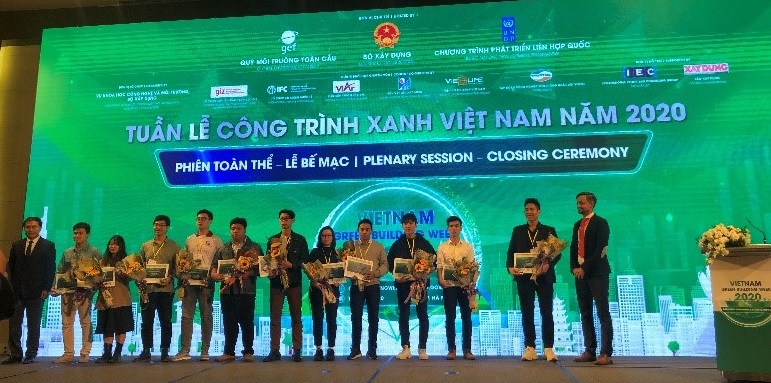 Ceremony for the Green Architectural Design Student Awards
Ceremony for the Green Architectural Design Student Awards
The national University of Civil Engineering graduate, Doan Van Thuong won the first prize for his design for a floating Village in a mangrove forest on the Giao Thuy Estuary. The Vice Minister Le Quang Hung of the Ministry of Construction and the Director Kia Fariborz from GIZ´s PEEB component in Vietnam gave the rewards to the winners which were honoured at a ceremony held by the Vietnam Green Urban Institute and GIZ.
The Council for the selection of the winners applied general green architectural design criteria and the PEEB criteria for Energy Efficient Buildings, which sets the standards for green buildings as a mitigation action under Vietnam’s Nationally Determined Contributions to the Paris Agreement.
http://www.peeb.build/news-events/green-building-week-2020
Sustainable urban development and construction is a high priority of the Government of Vietnam. In cooperation with the Ministry of Construction (MoC), PEEB through the French Agency for Ecological Transition (ADEME) supports the implementation of lighthouse projects that integrate the principles of bioclimatic construction. These projects will demonstrate the feasibility and benefits of bioclimatic buildings. At the same time, they will inform the social housing program under development by PEEB to spread them across the whole social housing sector of Vietnam.
A call for proposal to Vietnamese developers and promoters in June 2020 yielded seven proposals: three in the educational sector and four in housing (two social housing projects). Two winners were selected, Capital House with the Thu Do School project in Hanoi, and NHS Construction Investment JSC with the To Huu Social Housing Project in Hanoi:
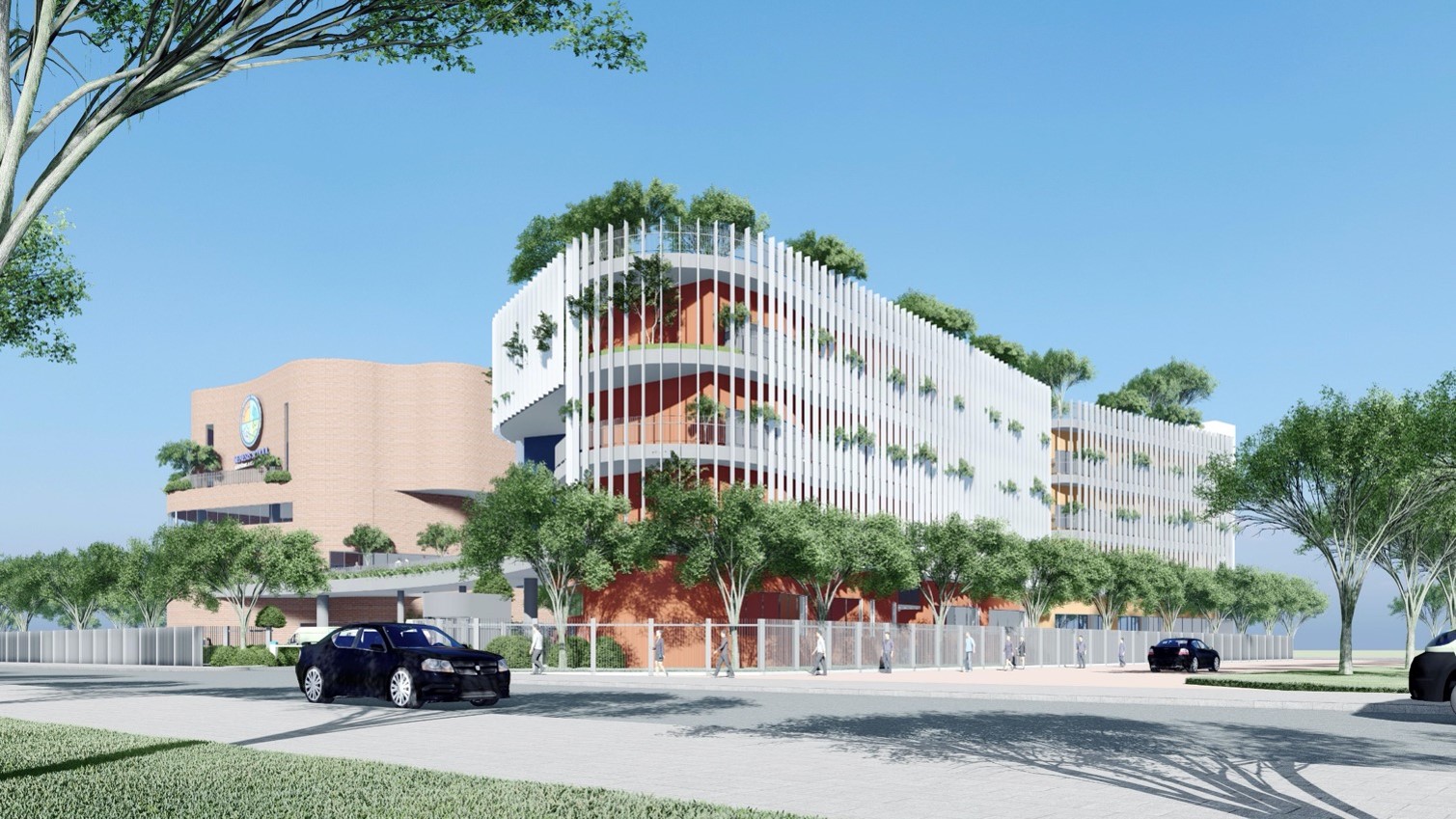
Capital House and the Thu Do Shool project in Me Tri Ward, Nam Tu Liem District, Hanoi
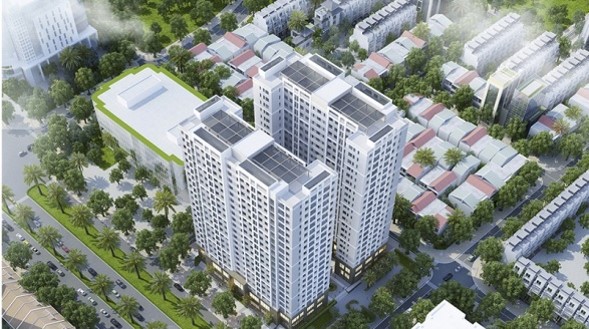

NHS Construction Investment JSC and the To Huu Social Housing Project in Nam Tu Liem District, Hanoi
Both projects were selected due to their high replication potential for adopting energy efficiency and bioclimatic concepts. In 2021 the two winners will receive technical assistance from a Franco-Vietnamese team of experts which will help them in designing energy efficient and bioclimatic buildings in order to reduce need for air conditioning while providing a high level of comfort. These pilot projects will also benefit from the technical support to conduct cost-benefit analyses of identified solutions based on life-cycle costs to assess the upfront costs for low-energy buildings and explore options for climate financing.
http://www.peeb.build/news-events/vietnam-support-to-bioclimatic-projects
The health sector in Tunisia features a current building stock of more than 5000 buildings (from large university hospitals to local health posts, private clinics and laboratories) with a surface of almost 800 000 m2 and a capacity of 5600 hospital beds. They not only deliver health services to the Tunisian population, but also represent 5% of total energy consumption in the buildings sector. In comparison to similar health establishments in Europe, there still exists an energy savings potential of approximately 50% - while at the same time providing the opportunity to improve patient comfort. These are the findings of a mapping of the Tunisian building sector supported by PEEB for the National Energy Management Agency (ANME), in collaboration with UNESCWA and KfW.
The Tunisian Ministry of Health is actively engaged in improving and extending its services and health facilities. It has a total of 44 ongoing projects with a number of international partners, among others PEEB. Two large regional hospitals will incorporate extensive energy efficiency measures with PEEB support. Both hospitals will outperform the planned energy regulations for hospital buildings by 20%. The required financing of EUR 156 million will come from AFD, with an additional EUR 2 million from the European Union.
PEEB is additionally providing the Ministry of Health with technical assistance for the duration of the design and construction phases for helping to achieve the international version of the French Green Building certification system “Haute Qualité Environnementale (HQE)”. A technical guide on energy efficiency in health facilities which is currently under preparation together with ANME and the Ministry of Health will be used to transfer this knowledge to other hospital projects. Awareness raising sessions about the technical guide are furthermore foreseen for ministry and hospital management staff.
These scale effects lead to a high leverage in energy-efficient investment and CO2 savings.

http://www.peeb.build/news-events/hospitals-in-tunisia
The webinar “Financing the Upscaling of Building Energy Efficiency Programs for Climate Change Mitigation and Sustainable Development in the Arab Region” organized by UN-ESCWA and the Islamic Development Bank on December 3, 2020, looked at barriers for financing energy efficiency specific to the region, as well as business models and financing instruments to overcome those, based on a toolkit report under finalization.
There was a common agreement among speakers and panellists about the need for more private, public and climate financing to reach the buildings sector in the Arab region, in order to realize its full potential to contribute to the SDG 7’s targets. While some panellists brought forward the positive role of economic recovery and job creation by the buildings sector due to its high economic multiplier effect, others emphasized the role of building up more investment transaction facilitators as mediators among the different stakeholders. Great importance was also given to the need to come to a common understanding among energy efficiency professionals and bankers and investors on what an energy efficiency investment means, and how its impact can be measured.
PEEB contributed with examples of business models for both renovation and new construction that have energy efficiency at its core and presented national energy efficiency incentive programs backed by climate finance that could serve as examples for further scaling up. PEEB also suggested to look beyond financial incentives to non-monetary incentives that can promote the energy efficiency potential in buildings, and to connect current green finance trends to the buildings sector to leverage more financing.
http://www.peeb.build/news-events/pushing-progress-on-energy-efficiency-in-buildings-in-the-Arab-region
The webinar “Financing energy efficiency in buildings for a Green Recovery in Africa: Health, Jobs and Climate” was co-organised by PEEB as part of the Energy Talks of the Africa-EU Energy Partnership (AEEP). It explored how financing for energy efficiency can boost a Green Recovery and benefit the health sector. A policy brief summarizes findings and gives further information.
In the health sector, green buildings can make a substantial contribution to the well-being of patients and medical staff. Energy efficiency can massively reduce the energy consumption and associated cost of medical facilities which often have a high energy consumption, also in off-grid settings. Besides its benefits for health, energy and climate, promoting green buildings is a major strategy to foster economic growth and job creation to respond to the economic crisis after the Covid-19 pandemic.
After opening remarks by the European Commission and African Union Commission, speakers from DG DEVCO and European Investment Bank (EIB) presented initiatives to boost energy efficiency. An expert from the Ministry of Health in Senegal talked about green rural health centers that benefit patients and carers, and save cost. Tunisia’s representatives from the Agence Nationale pour la Maitrise de l’Energie (ANME) and Ministry of Health and shared their experience in paving the way for large-scale construction of green hospitals pointed out a potential to reduce energy consumption by 50 percent. PEEB presented how financing and policies for green buildings can boost economic recovery and create jobs.
The panel discussion pointed to the need for financing energy efficiency in Buildings to boost COVID-19 economic recovery while improving comfort and reducing the energy consumption.
http://www.peeb.build/news-events/energy-talks-of-the-africa-eu-energy-partnership
What is the potential of energy efficiency in buildings in cities? Are these projects expensive? What are the financial implications and business models for financing such projects? In a discussion with city representatives, PEEB addressed these questions to support cities in successfully implementing such projects.
This Capacity Hub session was organised by PEEB in the context of the online conference “Local Climate Solutions for Africa (LoCS4Africa) 2020 - Financing for Change”, co-hosted by ICLEI Africa, the City of Kigali and the Government of Rwanda.
The training session was held virtually in Kigali for LoCS4Africa, with over 60 participants from cities across the African continent. We discussed financing strategies and the major barriers for cool buildings in cities in Africa.
The webinar covered the following topics:
- Design and technical solutions for energy efficient buildings
- Potential and benefits of energy efficient buildings
- Economic opportunities in developing countries
- National and international mechanism for financing energy efficient projects
- Strategies for getting support and starting a project
- Business models for financing energy efficient projects
A recording of the training session is available on the LoCS4Africa Webpage: link (free registration required)
http://www.peeb.build/news-events/training-for-cites-on-financing-at-ICLEI
A roundtable presented the findings of a national study to identify the baseline energy consumption of the buildings sector in Tunisia. This publication was the fruit of the joint efforts of German Development Bank (KfW), the United Nations Economic and Social Commission for Western Asia (UN ESCWA), as well as the German Agency for International cooperation (GIZ), represented by PEEB.
Implemented in close partnership with the Tunisian National Energy Management Agency (ANME), this extensive quantitative research provides the most up to date information on existing and future building stocks in Tunisia, as well as their current and projects energy consumption. The studies’ results will be used for the development of the next five-year (2021-2025) energy management plan.
A snapshot on some of the key results: The estimated building stock in the residential and tertiary sector amounts to 533 million square meters, of which residential buildings make up around 80%. Within the residential sector, final energy consumption has risen by almost 20% from 2014 to 2017 – a large driver of which is electricity consumption for cooling (22% of electricity consumption was for cooling in 2017, up from only 4% in 2009!). This points at the necessity to manage thermal comfort better while reducing costly (peak) energy demand and emissions from cooling – through better building design, but also more efficient appliances.
Among the recommendations of the workshop was also an even closer collaboration between the national electric utility (Société Tunisienne d’Electricité et du GAZ, STEG) and the National Institute for Statistics (Institut National de Statistique, INS), who could help monitor the achievement of set targets through inclusion of energy-performance related key indicators in their periodical surveys and national census.
http://www.peeb.build/news-events/tunisia-mapping
Stimulus programmes for the building sector can boost a Green Recovery, with massive benefits for jobs, the economy, and the climate. To avoid business-as-usual and put the buildings sector on a green trajectory, building programmes need to have “strings attached”: a green conditionality that incentivises and accelerates investments from the private sector.
PEEB collected examples of successful green building programmes to support governments in setting up stimulus programmes to respond to the economic crisis. Working with a coalition under the Global Alliance for Buildings and Construction (GlobalABC), PEEB analysed eight programmes that stimulate investments into green buildings. Financial incentives compensate for the extra cost for reaching higher standards in renovation or new construction projects. The programmes use various instruments to reach their target groups: e.g. green mortgages to households; bridging loans to developers; grants to homeowners or housing associations and green bonds.
A GlobalABC webinar presented how to use these programmes as a blueprint for green recovery programmes and possibilities for financing them.
http://www.peeb.build/news-events/green-buildings-against-the-crisis
Mexico's Ministry of Environment (SEMARNAT) presented a guide for improving energy efficiency in hotels in hot climates.
The guide provides practical advice on different energy efficiency and renewable energy technologies as well as passive measures to reduce energy consumption. It illustrates the mitigation potential of the sector in Mexico with practical examples.
A five-star hotel in a hot humid climate could achieve this 30%-energy reduction with a return on investment (ROI) of under 3 years. Simulation results suggest that if only 10% of the hotels in Mexico were to reduce energy consumption by 30%, the calculated annual mitigation potential would be around 287 million tons of CO2eq.
The guide illustrates the path to achieve different mitigation scenarios: 15%, 30% and net zero. PEEB supported SEMARNAT in the development of the guide and in the actualisation of the national standard for sustainable hotels (NMX-AA-171-SCFI-2014), which includes energy efficiency and renewable energy. The hotel sector in Mexico represents a great potential to contribute towards the NDC.
http://www.peeb.build/news-events/hotel-guide-mexico
In early September, the NAMA Facility gave their approval to pursue the second stage of the Detailed Preparation Phase (DPP) of the NAMA support project (NSP) 'Improving Energy Performance of Moroccan Households', which GIZ and AFD are preparing together with the Ministry for National Territory Planning, Urbanism, Housing and City Politics, the Ministry of Energy, Mining and Environment as well as national public real estate developer Al Omrane.
This ambitious national programme aims at putting the residential buildings sector in Morocco on a lower emission pathway while supporting local economic development in the buildings and construction sector as well as the refrigeration and air conditioning sector. The final decision on implementation is expected for early 2021.
http://www.peeb.build/news-events/nama-proposal-morocco
'We need to accelerate the uptake of green buildings and enable solutions for cooling that encompass both building design and efficient technologies.'
Energy needs for space cooling could triple by 2050, especially in hot and tropical countries. Residential buildings are responsible for over two thirds of this increase. This trend is set to continue, driven by the expected doubling of the building floor area by 2060 and a warming planet.
To provide thermal comfort in buildings, they need an excessive amount of energy for mechanical cooling. 'Cool buildings' can be the solution: They are designed with regard to the local climate, adapt to their environment and include design elements to produce indoor comfort naturally. Elements for external shading such as roof overhangs or vegetation as well as natural ventilation systems, green courtyards and smart urban design that avoid heat islands in dense cities can reduce the internal temperature by at least 5°C, increase thermal comfort significantly, and limit the massive growth in energy needs for cooling, save money, and reduce energy poverty.
Strategies to provide comfortable living conditions without harming the climate are already at our disposal. They include the 'avoid-shift-improve' approach: 'Cool buildings' avoid unnecessary demand for energy for cooling, shift the remaining cooling needs to solar systems or district cooling, and improve the efficiency of conventional systems and appliances.
Strategies for cool buildings: How can we accelerate the uptake of green buildings?
Together with The Cool Coalition, GlobalABC and SEforALL, PEEB has outlined strategies to accelerate the uptake of 'cool buildings' in an article and a webinar on the cooling challenge. They include:
- Good urban planning to avoid heat island in dense cities
- Policies that are co-created with the private sector and communicated widely such as building codes, financial incentive programmes for green buildings, and non-financial incentives such as fast-track permitting for green buildings
- Campaigns to highlight the issue such as those launched by The Cool Coalition, GlobalABC, SEforALL, and PEEB
By viewing the video, you agree that your data will be transmitted to YouTube and that you have read the privacy policy.
http://www.peeb.build/news-events/cool-buildings-against-the-cooling-challenge
Senegal has a large programme for renovating and building new health centres. Air conditiong, medical equipment and hot water use consume a lot of electricity in these facilities. Health centres, which do not include bioclimatic design principles, can lead to feelings of discomfort due to high indoor temperatures. Power cuts in rural areas can also lead to increased use of environmentally harmful diesel generators.
PEEB supports the integration of energy efficiency in three rural health centres in Senegal. Experts provide trainings for ministry staff on energy efficiency at the planning stage and suggest improvements to standard plans and planning documents. Low and medium cost measures such as roof insulation, shading, photovoltaic systems, solar water heaters and using local materials can save a lot of energy.
Passive building design combined with ceiling fans can reduce the hours of discomfort during the day from 85% to 5% of total hours of occupancy. They can save each health centre up to EUR 20,000 annually and improve work and health conditions for staff and patients.
http://www.peeb.build/news-events/energy-efficiency-in-health-sector-senegal
Are green buildings more expensive than others? How can I calculate the lifetime cost of a project? How can I convince a bank to finance my project? What national and international sources support energy efficiency in buildings? These and other questions were on the agenda in an online training on financing energy efficiency in buildings in Senegal. 45 professionals from the building sector participated, ranging from architects, engineers and project developers to university lecturers and bankers.
The course covered the following topics:
- Understanding of the economic and environmental dimensions of energy efficiency in buildings, from the local to the international level
- Technical requirements for design and operation
- Financial methods and evaluation criteria for energy-efficient projects
- Financing options, business plans, and risk assessments
Planned as 'live' trainings in Dakar in April, these trainings were quickly turned into online trainings and the consultant recorded the sessions for an online platform. Participants working from home watched these videos, engaged in discussions online, worked on exercises and joined weekly live sessions with the teachers. A repetition of the training course for a new cohort is in discussion.
The training modules on financing energy efficiency in buildings were developed by PEEB and used in trainings in Mexico, Morocco, Tunisia and Vietnam.
http://www.peeb.build/news-events/senegal-online-trainings
PEEB is working with private sector real-estate companies to meet the standards of the Moroccan Building Energy Efficiency Code (RTCM). For five residential building projects located in different climate zones, ambitious energy efficiency measures were identified so that these projects ensure energy performance levels that are in line with the RTCM and beyond. To identify the optimal energy performance level, PEEB provides real-estate companies with an incremental cost-impact analysis to highlight the potential competitive and environmental advantages of energy-efficient residential buildings. Companies aim to generalise these measures across their projects, using either own project holder financing, national or international financing.
The selected residential building projects vary from social housing and mid-income housing to self-assisted constructions. The energy performance of these building types has the potential to exceed the minimum requirements of RTCM by up to 30% only by applying energy efficiency measures to the building envelope.
Morocco's building code has been in force since 2015, but its application by the private sector is improvable. The absence of technical capacities, financial incentives and effective conformity checks prevent the private sector from complying with current regulations. This complements PEEB's support of the National Alliance of Buildings for the Climate in a joint effort with institutional partners in Morocco to raise the involvement of the private sector in a low-emission buildings and construction sector.
http://www.peeb.build/news-events/morocco-private-sector-in-line-with-building-code
The construction sector is essential for an economic recovery after the COVID-19 crisis. It holds the potential for a double win: providing a powerful tool to stimulate the economy, while moving the whole sector to a new and greener state. For small extra investments, green buildings can achieve massive long-term savings of cost and greenhouse gas (GHG) emissions.
PEEB and its implementing agencies AFD, GIZ and ADEME are working to identify strategies how countries can support green construction to help both the economy and the climate. A combination of instruments such as financial incentives or public procurement can be employed targeting either investors or private households. Ambitious policies and standards for green buildings should be developed in parallel to ensure a lasting transformation of the building sector.
'Strings Attached' - Green Conditionality for Stimulus Packages for Building Sector
Green stimulus packages for the construction industry need to have 'strings attached': A 'green conditionality' is needed to set the bar higher for buildings that receive support. PEEB outlined ideas for basic criteria for the construction sector, as well as examples from green building programmes that helped recover from the financial crisis in 2008, in an article on stimulus packages for the building sector.
Basic criteria for green buildings can favour a sustainable development of the construction sector in the long term:
- Reward higher energy or low-carbon performance goals with higher financial incentives
- Include energy efficiency and environmental criteria in public and private procurement documentation and lending
- Favour green buildings through green criteria for public procurement or 'fast track' processing of building permits
- Gear short-term economic stimulus programmes towards a country's climate and sustainable development
http://www.peeb.build/news-events/stimulus-green-construction
'National alliances that bring together the different stakeholders along the buildings and construction value chain are a formidable means of overcoming the fragmentation in the sector, and ramping up both the level of action and ambition towards zero emission, efficient and resilient buildings and construction [...]' - Martina Otto, GlobalABC
This PEEB report shows how national alliances can help speeding up the energy transition in the building sector. It demonstrates their potential and importance in working for the transition towards low emission, resilient and efficient buildings. The report explores the experiences of five national alliances in France, Germany, Mexico, Morocco and Tunisia, and gives recommendations for establishing new ones.
The core take-aways about national alliances are:
-
National alliances are key in mobilising real estate actors towards the energy transition and have a great potential for uniting different professions through common goals. They lead to better regulatory frameworks, highly innovative industry products, voluntary commitments and capacity development.
-
National alliances are developing around the world. They can be public or private sector driven and range from volunteer-based alliances to formalised structures. Some already have an activity record of more than 10 years, while others have just been created. Some may not even have been identified yet.
-
Success factors are the development of a common vision and goal, simple and engaging organisational structures, and clear joint communication.
http://www.peeb.build/news-events/national-alliances-report
Energy efficiency in buildings and urban planning was a focus of the 2019 Global Business Summit of the International Real Estate's Federation (FIABCI) in Ghent.
Private sector actors are key to making the transition low-emission, resilient and energy-efficient buildings happen. FIABCI's 2019 global business summit showed the urgency of action in the buildings and construction sector to keep global warming below 2°C, but also the opportunities of this transformation.
Keynote speaker Erik Ubels, Chief Technology Officer of the Dutch real-estate technology company 'The Edge' inspired the audience with his vision: Smart and sustainable buildings that integrate technology infrastructure starting from the design stage. These buildings have one goal in mind - optimising the well-being and productivity of employees while keeping the carbon footprint of the building as low as possible.
Panel discussions and inputs from speakers with various professional and geographical backgrounds demonstrated that good practices and initiatives exist around the world. What is needed now is a mainstreaming of energy-efficient buildings and adequate urban planning into the different professional groups - from brokers to investors, architects and occupants, facility managers and valuers.
PEEB supported FIABCI in agenda-development, session-organisation and moderation, and animated three workshops on investment, digital tools and business models for green buildings. In her closing remarks, Christiana Hageneder, head of PEEB Secretariat, summed up the main messages: 'The case for green buildings is clear and necessary tools exist. It is now time to act.'
The Global Business Summit (GBS) is FIABCI's second-largest annual event. Hosted by FIABCI Belgium in Ghent on 6-7 December, its 2019 edition brought together around 200 international representatives from the real-estate industry.
http://www.peeb.build/news-events/green-buildings-at-fiabci-global-business-summit
Morocco's residential sector is growing – as is energy demand. To keep in line with Morocco's NDC objectives, a financing mechanism to support energy efficiency is under preparation with support from the NAMA Facility. Within this NAMA support project, real estate developers will be supported to construct new energy efficient buildings (through the public housing developer Al Omrane) and retailers will be incentivized to market highly efficient appliances.
The Ministry of National Territtoy Planning, Urban Planning, Housing and City Policy, the Ministry of Energy, Mining and Environment, and the public housing developer Al Omrane are central stakeholders in this project that will be implemented jointly by AFD and GIZ. The project will leverage substantial public and private funds and support the implementation of Morocco's ambitious NDCs. AFD (Agence Française de Développement) will additionally provide a EUR 100 million loan to Al Omrane. Approximately 160kt of CO2e will be mitigated over the five-year duration of the programme and 955kt of CO2e over the lifespan of buildings and appliances.
The GIZ energy cluster in Morocco and the Programme for Energy Efficiency in Buildings are working with the Moroccan partner ministries to receive EUR 20 million of climate financing from the NAMA Facility to implement the project. A final decision is expected after the detailed preparation phase by the end of 2020.
Press release of the Government of Morocco:
http://www.maroc.ma/en/news/energy-efficiency-building-sector-moroccan-project-obtains-eu20-million-financing-nama-facility
http://www.peeb.build/news-events/morocco-nama-facility-financing-project
In 2019, action on buildings moved to the centre stage. Led by the Global Alliance for Buildings and Construction (GlobalABC), buildings featured prominently at the climate change conference COP25 in Madrid. Topics ranged from zero carbon buildings to circular economy approaches in the buildings sector.
Two high-level events under the Marrakesh Partnership for Global Climate Action (MPGCA), and a large number of side events, highlighted the need for action in the buildings sector. A full list of activities can be found here.
MPGCA Human Settlements Action Event: recorded session here
Under the topic ‘Climate emergency - time to act for zero carbon cities and buildings’ the Human Settlements Action event organized under the Marrakech Partnership for Global Climate Action (MPGCA) presented solutions from national and local governments, as well as finance institutions, civil society, and private sector to make our cities and our buildings future proof.
MPGCA Nexus Roundtable on Circular Economy: recorded session here
This roundtable looked at how circular economy principles can be applied to cities and in the built environment to drive climate action. The role of cities as circular economy agents was discussed.
Moving towards zero carbon buildings – Solutions, tools and progress from around the world
Side event “Moving towards zero carbon buildings – Solutions, tools and progress”, UNFCCC side event, 3 December
GlobalABC members and PEEB country representatives presented innovative policies and tools to reduce GHG emissions from the built environment. Representatives from the PEEB partner countries Mexico and Tunisia present their practical experiences on NDC implementation.
Side event “Embedding buildings and Construction into NDCs”, NDC Hub, 5 December
Practical solutions for building sector NDCs are urgently needed. Organised as a peer-to-peer exchange, the event emphasized the need for leadership, and encouraged countries to step up action. Nouzha Bouchareb, Minister of National Territory Development, Urban Planning, Housing and City Policy, Morocco, urged participants to maintain the momentum created since COP21, especially with the private sector. Ms. Rana Adib, Executive Secretary, REN21, highlighted the need to reach stakeholders and generate reliable and relatable data to improve the situation. The event was co-organised by the Global Alliance for Buildings and Construction (GlobalABC) and the Programme for Energy Efficiency in Buildings (PEEB), and brought together speakers from PEEB partner countries Mexico and Vietnam present their NDC experience on embedding buildings and construction into NDCs.
Prioritizing mitigation actions in the transport and buildings sectors – the role of robust emission quantification methodologies, UNFCCC Pavilion, 9 December
Monitoring emissions from the building sector is essential to develop robust NDCs. PEEB supported the UNFCCC secretariat with the development of a chapter on the quantification of building sector GHG emissions at national level for a compendium of monitoring methodologies.
Representatives of UNFCCC and PEEB presented UNFCCC's compendiums for buildings and transport sectors. These include methodologies for national GHG emission calculation. This helps to prioritize mitigation actions by looking at all building stages.
As we head into 2020, buildings are high on the agenda. The report by the UK government on energy transitions features buildings as a key sector. The lead-up to the climate change conference in Glasgow in 2020 will be about raising the ambition of all actors to make our buildings future-proof.
http://www.peeb.build/news-events/cop25-buildings-events-selection
How can digital solutions improve energy efficiency in buildings? Smart and efficient – Digital solutions to save energy in buildings gives answers to this question. This new PEEB report is both a think-piece and a practical guide for building sector professionals. It draws on the current literature and interviews with 28 experts worldwide. We showcase how digital solutions can support the transition to more energy-efficient buildings, from design to demolition, and point out the limitations and gaps.
The report highlights a few main take-aways:
-
The biggest potential for energy efficiency will likely not be in fully automated buildings, but in smart, easily accessible, and widely used applications.
-
New business models like shared living or build-to-rent might benefit energy efficiency and can be implemented with the help of digital solutions.
-
The operation phase accounts for about 80% of costs and energy consumption in the lifetime of a conventional building. Fast and easy tools to monitor and optimise real energy performance are needed.
-
Building data is still a massively underused resource. Benchmarking building performances can be a quick and cost-effective way to identify savings for future buildings.
Overall, a clear focus on users and ‘making it simple’ is essential. Buildings do not need to become completely ‘smart’ to achieve energy efficiency. Many digital solutions are available on the market, but there is still much room to better integrate existing tools.
http://www.peeb.build/news-events/digital-solutions-report
Green buildings are a global trend – and developers around the world are implementing profitable business models that bring green buildings to the market.
PEEB's new report Business models for green buildings aims to inspire actors along the green building value chain to adapt and expand their activities. From pre-fabrication of energy efficient buildings to net zero social housing using governmental support programs, and from energy performance contracting to cooperative housing, real estate actors have shown the way ahead.
Developers of green buildings share a strong strategic commitment to sustainability, combined with a drive towards innovation that anticipates the demands of future customers and gives their business a competitive edge. They take a collaborative approach and work in partnership with companies from other fields such as energy efficient technologies, landscaping, or mobility.
'New construction needs to address the needs of future generations', says Michael Bauer, Partner at Drees & Sommer, one of Europe's leading real estate consulting companies and contributor to the publication. 'In buildings with lifetimes of 40+ years, future customers place increasing value on environmental performance, health and well-being. To achieve high quality buildings, energy efficient building design and technologies are essential.'
'Build to rent' is one of five business models identified in the publication. It is also known as 'design, build, operate'. The video describes this business model and how it allows developers to integrate energy efficiency in their activities.
By viewing the video, you agree that your data will be transmitted to YouTube and that you have read the privacy policy.
http://www.peeb.build/news-events/business-models-report-and-video
Zero Carbon Buildings for All, a multi-partner global initiative endorsed by the UN Secretary General, was featured at the 2019 UN Climate Action Summit. Zero Carbon Buildings for All aims to leverage the leadership of government, industry and civil society to both secure commitments to ambitious targets (national policy roadmaps to decarbonize new buildings by 2030 and existing buildings by 2050) and mobilize significant funding (at least $1 trillion in Paris Agreement-compliant buildings investment in developing countries by 2030).
“We will not solve the climate crisis if we do not tackle the building sector,” said Christiana Hageneder, from the Program for Energy Efficient Buildings (PEEB). “Energy-efficient buildings are gaining ground worldwide—now we need to get to scale. The leadership of the nations committing to Zero Carbon Buildings for All will help us do that.”
Financial institution supporters include African Development Bank, International Finance Corporation, Investment Fund for Developing Countries (Denmark), European Bank for Reconstruction and Development, European Investment Bank, and others.
Private sector supporters include building design firms like Gensler and BuroHappold, and building technologies firms like ROCKWOOL Group and Saint-Gobain, among others.
Civil society partners include the Global Alliance for Buildings and Construction, Global Environment Facility, Pacific Northwest National Laboratory, Program for Energy Efficiency in Buildings, Urban Land Institute, World Economic Forum, World Green Building Council, World Resources Institute.
http://www.peeb.build/news-events/zero-carbon-buildings-for-all
On September 26th, 2019, more than 100 representatives of academia, national and sub-national governments, associations, international cooperation agencies and private sector companies gathered to kick-start the Mexican Alliance for Buildings and Construction (GABC_Mx).
The Alliance works in five priority areas to move towards efficient, resilient and low-carbon buildings: education and awareness-raising, public policies, market transformation, financing and, measurement and collection of data and information.
The Alliance is a space to jointly facilitate the design and implementation of actions for a national agenda for sustainable, low-carbon, safe and resilient building sector. The Alliance's Statement underscores that although Mexico has made significant progress on the field of sustainability in the built environment, the country needs to work in a coordinated manner to achieve its objectives of social development and poverty alleviation, sustainable development and climate change.
The workshop of the Global Alliance for Buildings and Construction Mexico, was fostered by the Alliance for Energy Efficiency (ALENER) with support from the International Energy Agency (IEA), the Programme for Energy Efficiency in Buildings (PEEB) and the World Resources Institute (WRI).
The work of the Alliance is aligned with the objectives of the Paris Agreement and Mexico’s NDCs for the construction and buildings sector, and promotes the Regional Roadmap for Buildings and Construction for Latin America of the GlobalABC.
http://www.peeb.build/news-events/mexico-national-alliance-kick-start
More than 50 % of the world’s new buildings are constructed in Asia every year, and the building sector accounts for approximately 25 % of Asia’s overall energy consumption. In the Asia-Pacific region, energy consumption in buildings will continue to grow rapidly as a result of new construction spurred by high economic growth and the increasing demand for cooling in tropical climate regions (GABC. Global Status Reports 2017 and 2018).
On 5 September in Bangkok, over 40 participants from 15 countries in the region discussed during the GlobalABC Regional Roundtable for Asia Pacific solutions for the building and construction sector to match the climate related objectives set out in the Paris Agreement. This Roundtable was organized by the Global Alliance for Building and Construction (GlobalABC) in partnership with the French Agency for Environment and Energy management (ADEME), the Programme for Energy Efficiency in Buildings (PEEB) and the United Nations Economic and Social Comission for Asia and the Pacific (UN ESCAP).
During the Roundtable, the International Energy Agency (IEA) introduced the status and methodology of the “Asia Roadmap for Buildings and Construction 2020-2050” which the IEA is currently elaborating within the framework of the GlobalABC. The Asia Buildings Roadmap outlined the eight categories derived from the GlobalABC Global Roadmap:
|
1. Urban planning 2. New buildings 3. Building retrofits 4. Building operations |
5. Systems 6. Materials 7. Resilience 8. Clean energy |
Each category includes key actions, policies and technologies needed to transform the buildings and construction sector and will eventually include achievable and aspirational targets for 2030, 2040, and 2050. The participants were invited to provide input and discussed in three groups the proposed key actions, policies, and technologies.
Their key findings include:
-
More ambitious codes and policies are needed,
-
Finding ways back to traditional design and architecture could be helpful (e.g. in Mongolia a locally adapted building technique adapted to the country’s extreme climates was recently re-discovered),
-
Well-adapted buildings also need to be linked to municipal planning, and capacity building is especially important at the local/municipal level,
-
A stronger reflection of resilience in building codes is needed; also dedicated policies on locally adapted construction methods, dedicated governance and coordination on resilience policies, putting crises plans in place for resilience,
-
In addition to policies, developing and working with new business models is important,
-
Integrated spatial planning needs linking to net zero building codes, green certification at neighbourhood levels and district energy approaches considering buildings at city scale/in their environment instead of as individual entities,
-
Vertical integration across governmental restriction and linking zoning to national development planning while at the same time working towards decentralization at local and municipal level
These key findings will be included into the next iteration of the Asia Buildings Roadmap which will be communicated back to participants for feedback. The Roundtable also provided a unique opportunity for facilitating good practice peer-to-peer exchange and fostered matchmaking between GlobalABC members who continue cooperating in selected areas to accelerate zero-emission, efficient, and resilient buildings and construction sector.
http://www.peeb.build/news-events/roadmap-for-buildings-andconstruction-in-asia
A young and growing population in Vietnam means there is a huge demand for new housing. Especially young urban families with one or two children are in critical need for affordable housing. Just until 2025, more than 100,000 apartments are needed.
Following the success of previous programmes, the Vietnamese Ministry of Construction (MOC) is preparing a new National Housing Programme for low-income households. For this new programme, the Ministry wants the housing solutions to be highly energy efficient. This will save greenhouse gas emissions and contribute to the country’s Nationally Determined Contribution (NDC) targets, while reducing energy bills for its inhabitants.
The concept for the new Housing Programme aims to stimulate both, supply and demand:
- Green loans to mid-income households with a duration of about 15 years (market demand)
- Green credits to energy efficient housing investors within a term of 3-5 years (market supply).
PEEB supports the development of the new Housing programme: the French Development Agency AFD analyses appropriate financing schemes, and the German Technical Cooperation GIZ conducts a Technical Feasibility Study. The French Environment and Energy Management Agency ADEME contributes its experience working with housing developers in Vietnam on well-adapted bioclimatic design solutions.
In June 2019, the AFD energy task team leader, Mr. Fabrice Juquois, visited the Ministry of Construction in Hanoi and the President of the Vietnam Real Estate Association (VNREA), Mr. Nguyen Tran Nam.
There are signs that public financing to the real estate market will be tightened, moreover, the real estate market is showing positive signs towards green buildings. Nguyen Tran Nam, president of the Vietnam Real Estate Association, pointed to the great potential for green buildings. In addition, green building opportunities do not solely depend on businesses, but also on buyers’ awareness and decisions.
Therefore, PEEB´s technical assistance to the Ministry of Construction to review the legal framework and the development of green building opportunities with additional funding comes just at the right time.
(published 28.03.2019)
http://www.peeb.build/news-events/vietnam-green-loans-for-families
Building codes are nothing without the people working to enforce them. Many countries have adopted ambitious and comprehensive requirements for energy-efficient buildings. The challenge now is to get public and private developers to respect these standards.
Morocco is such a country. The comprehensive Building Energy Efficiency Code (known as RTCM) entered into force in 2015. Nevertheless, getting compliance and enforcement on a large scale is still a challenge, as many project developers are not familiar with the new regulations.
Agents of the Moroccan Ministry of National Territory Planning, Urban Planning, Housing and City Policy are essential actors to ensure the mandatory national regulations are respected. At the regional level for example, housing and city policy departments of the Ministry are responsible for the compliance of social housing buildings with national standards. Building constructors must respect these standards to receive compliance certificates. Only then can they benefit from tax exemptions that are provided by the state to encourage investments in social housing. An excellent grasp of the legislative, institutional, and regulatory framework of energy efficiency in buildings in Morocco is essential for this task.
Two trainings were organised by the Ministry and PEEB in March 2019 to support technical staff working in the central and regional departments of Housing and City Policy. The trainings provided knowledge about the standards and actors in the field, as well as practical examples. Public and private real estate developers presented how they comply with the requirements of the RTCM to prove that the RTCM can be applied.
As a result, staff feel confident to integrate energy efficiency measures in buildings. This is particularly relevant in the context of Morocco’s national administrations exemplarity program which encourages public administrations to be a role model in implementing the national sustainable development strategy.
(published 28.03.2019)
http://www.peeb.build/news-events/morocco-building-codes-need-compliance
Mexico is a pioneer in climate change policies and has ambitious targets for mitigation in the building sector. With its NDC, the country aims to unconditionally reduce the GHG emissions of the Residential and Commercial Sectors in 2030 by 18%. That is a reduction of 5 MtCO2e in relation to the trend scenario.
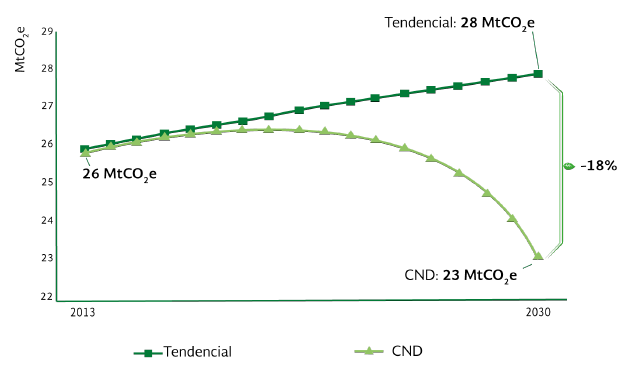
Hospitals and hotels everywhere are large consumers of energy. In Mexico, hospitals consume about 220 and 350 kWh/m2 per year, that is about two times of the energy consumption of residential buildings, and hotels consume around 120-200 kWh/m2 annually. Mexico’s boom presents both an opportunity and a challenge: For the period 2005- 2030 the Mexican government projects the construction of 100 Mio m2 of educational buildings, 40 Mio m2 of hotels, 30 Mio m2 of commercial buildings and about 10 Mio m2 of new hospitals.
PEEB invited private developers and builders to discuss how energy efficiency can be integrated in large-scale projects for hotels, hospitals and commercial buildings. The private sector participants showed a strong interest in taking action. However, participants saw a huge need for advice on how to design energy efficient building projects and financing schemes with more attractive conditions to include these additional measures.
Discussions with the Mexican development bank Bancomext, Carbon Trust and CI Banco pointed the following tasks to make large-scale financing for EE in buildings more attractive:
• Developing new EE credit products
• Incorporating potential energy and operation cost savings into the financial analysis
• Developing Public-Private Partnerships (PPP) with state governments
• Providing international support for energy diagnostics as developers do lack knowledge and resources to conduct them as part of their feasibility studies
• Grouping various projects to make them attractive for national or international financing
• Developing green bonds (> 50 Mio US$)
PEEB is currently in discussions with the Foundation HELVEX, the Initiative Innovation Mexico and the Mexican Social Security Institute (IMSS) to identify suitable hotel and hospital projects for PEEB support.
http://www.peeb.build/news-events/Mexico-hotels-and-hospitals-present-a-huge-opportunity-for-saving-greenhouse-gas-emissions
At a Welcome Ceremony for new countries on December 11th, 2018 in the French Pavilion at COP24, Ms Brune Poirson, French State Secretary to the Minister for Ecological and Inclusive Transition and Rita Schwarzelühr-Sutter German State Secretary to the Federal Ministry of Environment, Natural Conservation and Nuclear Safety welcomed testimonials on the importance of energy efficiency in buildings from existing members of the GlobalABC, an initiative launched at COP21 as part of the Lima Paris Action Agenda, and the PEEB, a global joint French-German initiative to promote energy efficiency in buildings, on a large scale.
Both GlobalABC and PEEB partners recognize that progress towards a zero-emission, efficient and resilient buildings and construction sector is essential to achieving the targets of the Paris Agreement, the Sustainable Development Goals as well as the targets of the New Urban Agenda as set by the United Nations. Progress towards sustainable buildings and construction is made, but improvements are still not keeping up with the increases in floor space. To be on track to meet global climate ambitions set forth in the Paris Agreement, energy intensity per square meter of the global buildings sector needs to improve on average by 30% by 2030 (compared to 2015).
The GlobalABC aims to mobilise all stakeholders, including member states and non-state actors from the Buildings and Construction sector to scale up climate actions in the sector. The PEEB was initiated jointly by France and Germany and is catalysed by the GlobalABC. The PEEB promotes innovative solutions, supports countries’ public policy-making, builds the required capacities, and assists the development and delivery of policy measures and investments in energy-efficient buildings. PEEB also supports its partners to mobilise additional financial resources for relevant investment projects.
The following partners signed a letter of interest to cooperate with PEEB:
The Ministry for Environment and Sustainable Development of the Republic of Ivory Coast represented by His Excellency Professor Joseph séka SEKA, Minister of Environment and Sustainable Development who emphasized how the PEEB and GlobalABC memberships might allow Côte d’Ivoire to achieve two of the main objectives of its Nationally Determined Contributions:
- The development of national regulation pertaining to the energy efficiency of buildings
- The training of all actors of the building value chain on the construction of low energy buildings.
The Ministry of Energy responsible for natural resources of the Republic of Djibouti, represented at the event by Mr. Dini Omar, General Secretary of the Ministry of Habitat, Urbanism and Environment underlined the relevance of partnering with GlobalABC and PEEB to lower the energy bill both for households and private companies.
Nigeria, which is a country with a rapidly growing building sector, through the Ministry for Power, Works and Housing, expressed its interest through a letter to partner with PEEB. The Federal Republic of Nigeria considers energy efficiency as a key factor for ensuring the sustainable, affordable and reliable development of the energy sector.
http://www.peeb.build/news-events/Buildings-and-construction-at-the-COP24-Climate-Change-Conference-in-Katowice
100 participants, 12 countries, 2 days, 1 question: How do Algeria, Egypt, Jordan, Lebanon, Libya, Morocco, Tunisia, and Turkey translate their ambitious climate goals into concrete action in the buildings and construction sector?
The Global Alliance for Building and Construction (GlobalABC) and the Moroccan Ministry of National Spatial Planning, Urban Planning, Housing and Urban Policy, supported by the Programme for Energy Efficiency in Buildings (PEEB), organised this regional Round Table in Rabat, Morocco, on 22-23 October 2018.
It provided a platform to share strategies for:
- Nationally Determined Contributions (NDCs) targets for the building sector and NDC implementation;
- Resilience and Adaptation in the building sector;
- Measurement, Reporting and Verification for mitigation actions in the building sector;
- Financing needs and availabilities for energy efficiency measures in buildings that meet and exceed building code regulations.
Energy efficiency in buildings and construction is a hot topic for the countries of the region. There is an urgent need for action to mitigate emissions, but also for adaptation to a changing climate. According to GlobalABC's 2017 Global Assessment of the buildings and construction sector, the sector accounts for nearly 40% of global CO2 emissions. In the North African and Mediterranean region, the residential sector represents between 30% and 40% of the total energy efficiency potential, and no less than 50 million new residential buildings are to be built in the region by 2040.
The workshops identified two major short-term goals: the development and implementation of energy-efficient urban development strategies and the widespread integration of energy efficiency measures in new buildings. In the medium term, existing buildings should be targeted to reduce greenhouse gas emissions and address climate-related risks. Furthermore, the energy requirements of household appliances must be reduced and a general decarbonisation of energy supply must be pursued.
The Round Table in Morocco took place as part of the regional adaptation of the Global Roadmap for an energy-efficient, climate-resistant and low-CO2 building sector.
http://www.peeb.build/news-events/Energy-efficiency-in-buildings-in-North-Africa-and-the-Mediterranean
What is PEEB Med? How does it address the issues discussed at the World Urban Forum?
Cities across the Mediterranean are experiencing rapid growth, which is driving both economic development and a significant rise in energy consumption in the building sector. Driven by expanding urban populations and extreme heat events, cooling demand in buildings across the MENA region is anticipated to rise by 50% by 2040 according to IEA estimates (IEA, 2023).
From 1980 to 2022, the average temperature in the Mediterranean rose by 0.46°C per decade, outpacing the global average by 20% and further heightening the need for effective cooling solutions. This sustained warming trend, coupled with growing urbanization, risks overwhelming energy systems without intervention, potentially leading to increased greenhouse gas emissions and exacerbating climate impacts.
In response, PEEB Med’s mission is to support seven Mediterranean countries (Algeria, Egypt, Jordan, Lebanon, Morocco, the Palestinian Territories, and Tunisia) in transforming their building and construction sectors to be more resilient and energy-efficient. The program promotes sustainable building practices, passive design strategies that reduce reliance on energy-intensive cooling systems, lowers emissions and help communities adapt to rising temperatures and other climate impacts affecting lives in the region.
What is PEEB Med’s role in sustainable construction?
PEEB Med recognizes the critical role of the financial sector in advancing decarbonization and adaptation goals, particularly in the building and construction sectors, as outlined in the Chaillot Declaration. By redirecting capital flows towards sustainable construction, PEEB Med helps align national development pathways with the objectives of the Paris Agreement.
With a €30 million grant from the European Union, PEEB Med combines technical assistance and investment grants to scale ambitious projects and drive long-term sector transformation.
Could you share an example of a project you’ve supported?
One recent project is the support to the renovation of four tourism and hospitality training centers in Sousse Nord, Monastir, Tozeur, and Ain Draham, in Tunisia. Despite strong demand, these schools face operational challenges including constrained budgets, outdated facilities, and fluctuating energy costs.
PEEB Med supports the renovation of these schools by providing a technical assistance that will focus on energy efficiency, thermal comfort and climate resilience. More specifically, it includes an energy audit, tailored recommendations for energy-efficient upgrades, proposals for autonomous energy production systems, and innovative solutions for sustainable cooling and comfort within diverse climate conditions.
We also provide investment grants. A project, soon to be launched under PEEB Med, should allow a hospital to reduce its energy consumption by 57% thanks to funding to cover the additional cost of energy efficiency measures. Stay tuned for more details!

http://www.peeb.build/news-events/Energy-Efficiency-Key-Urban-Development

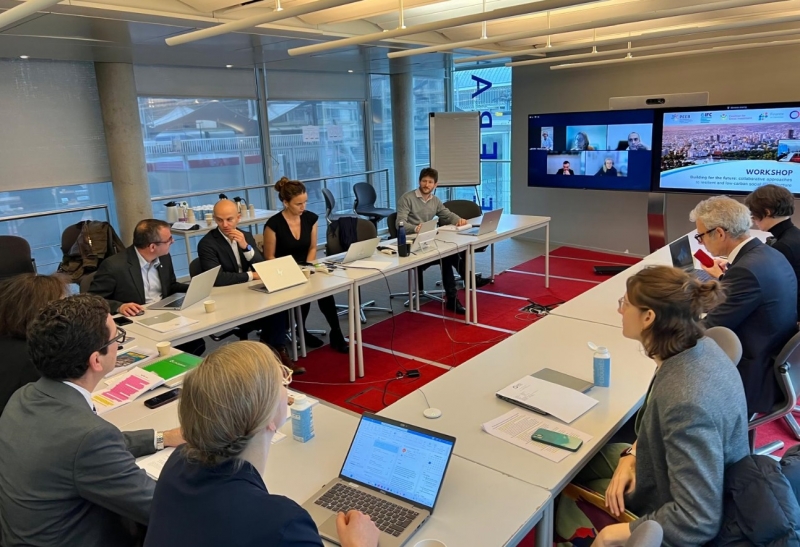
 more
more
